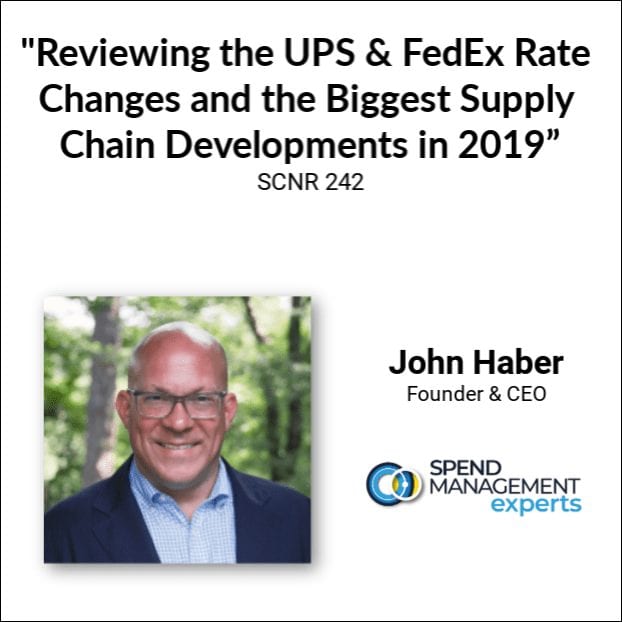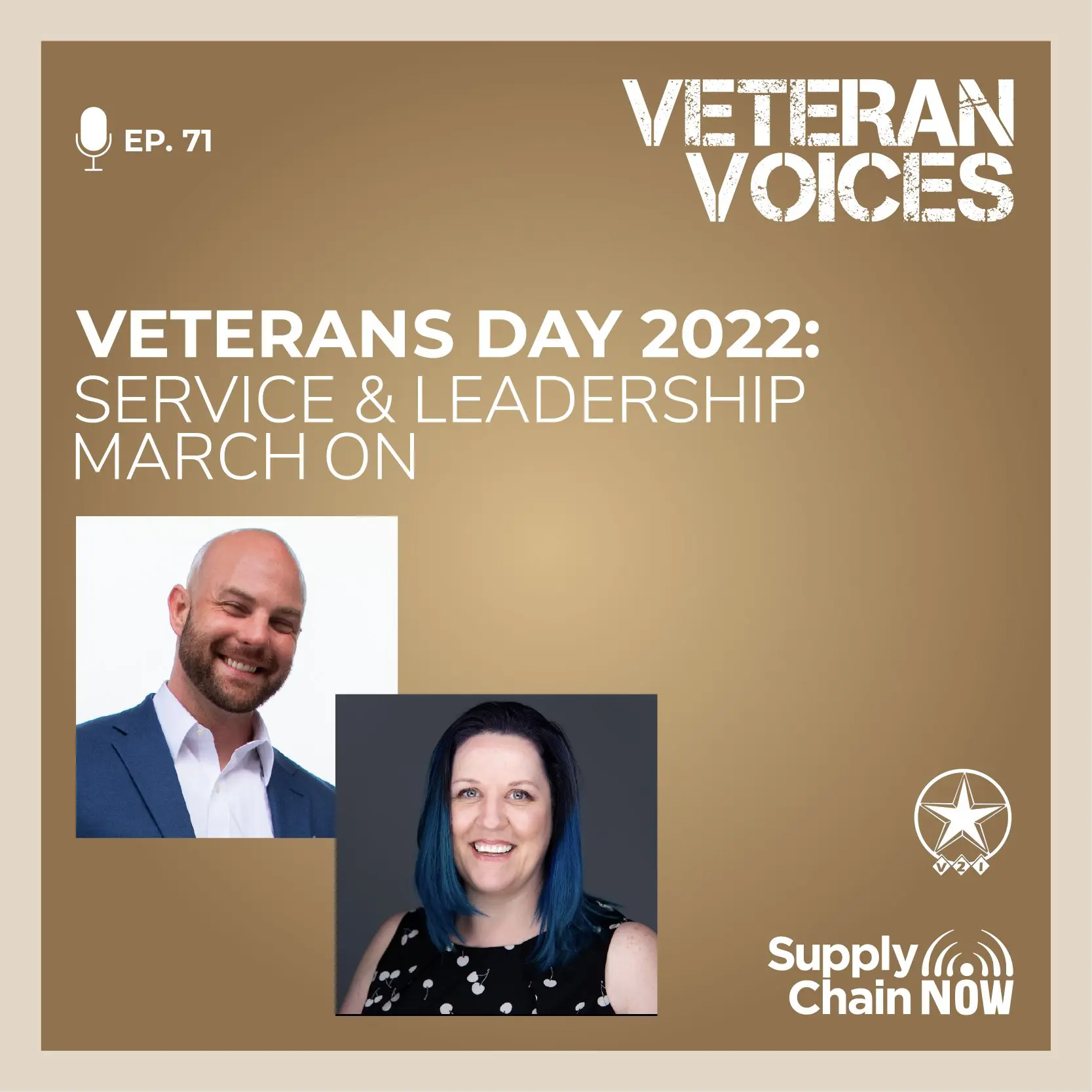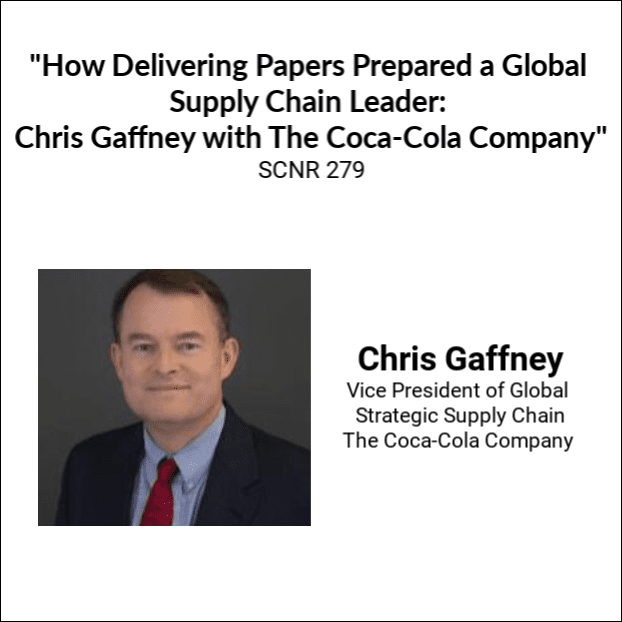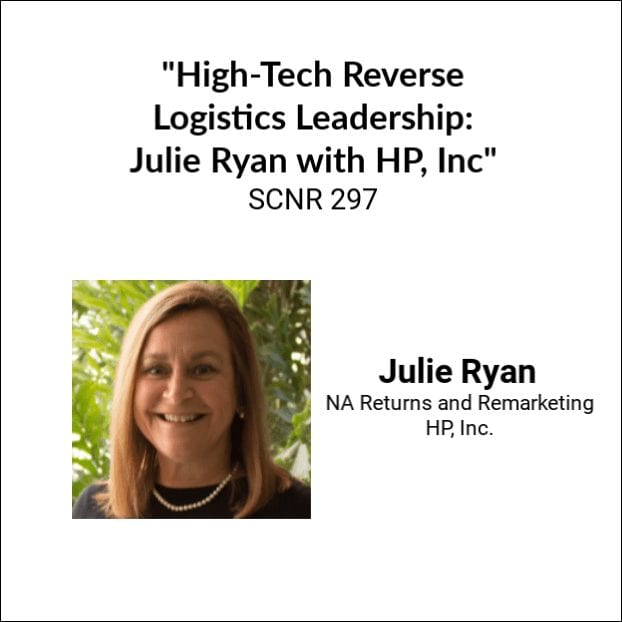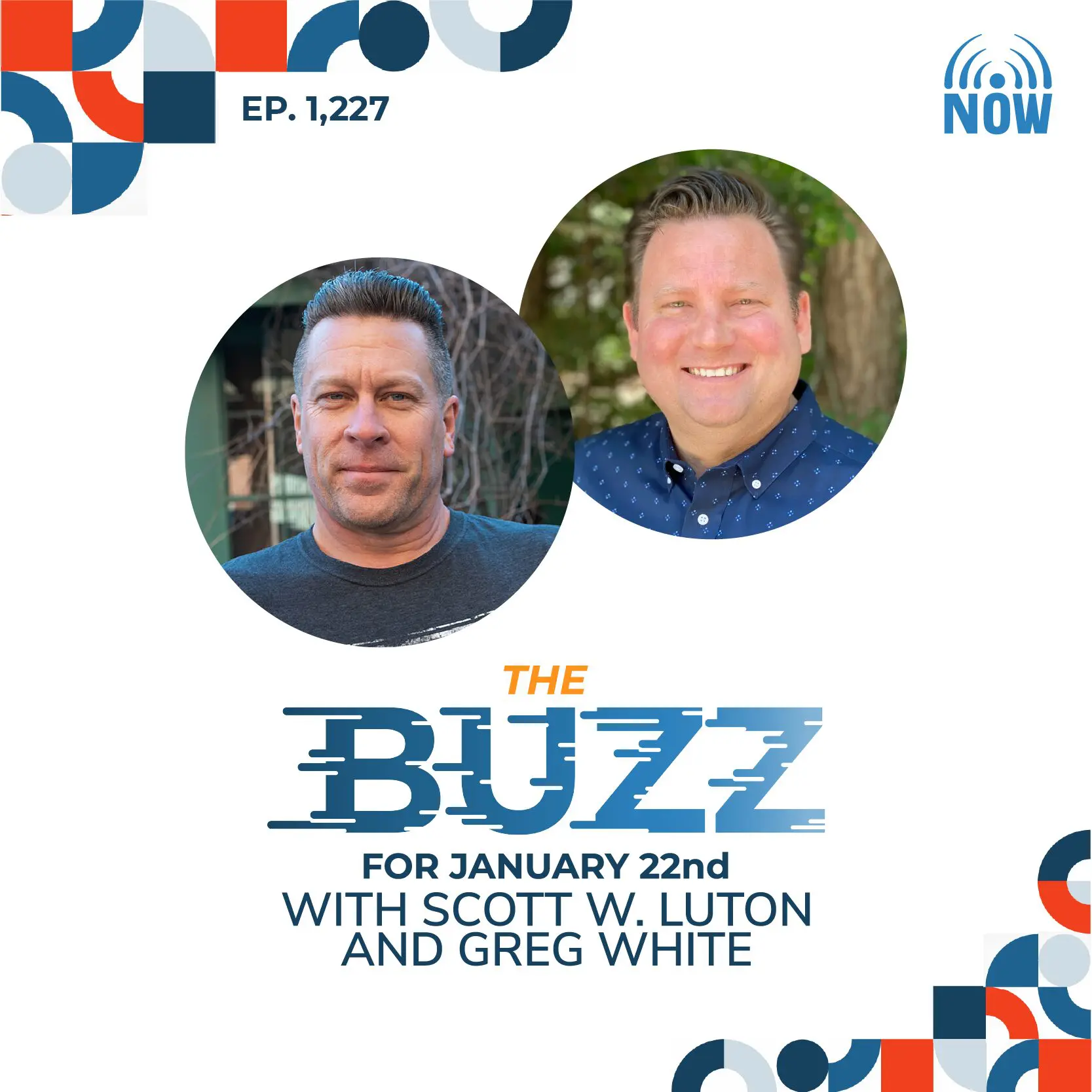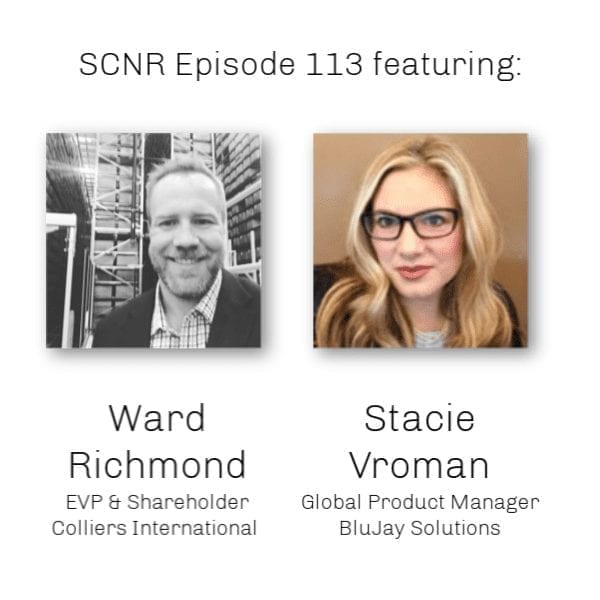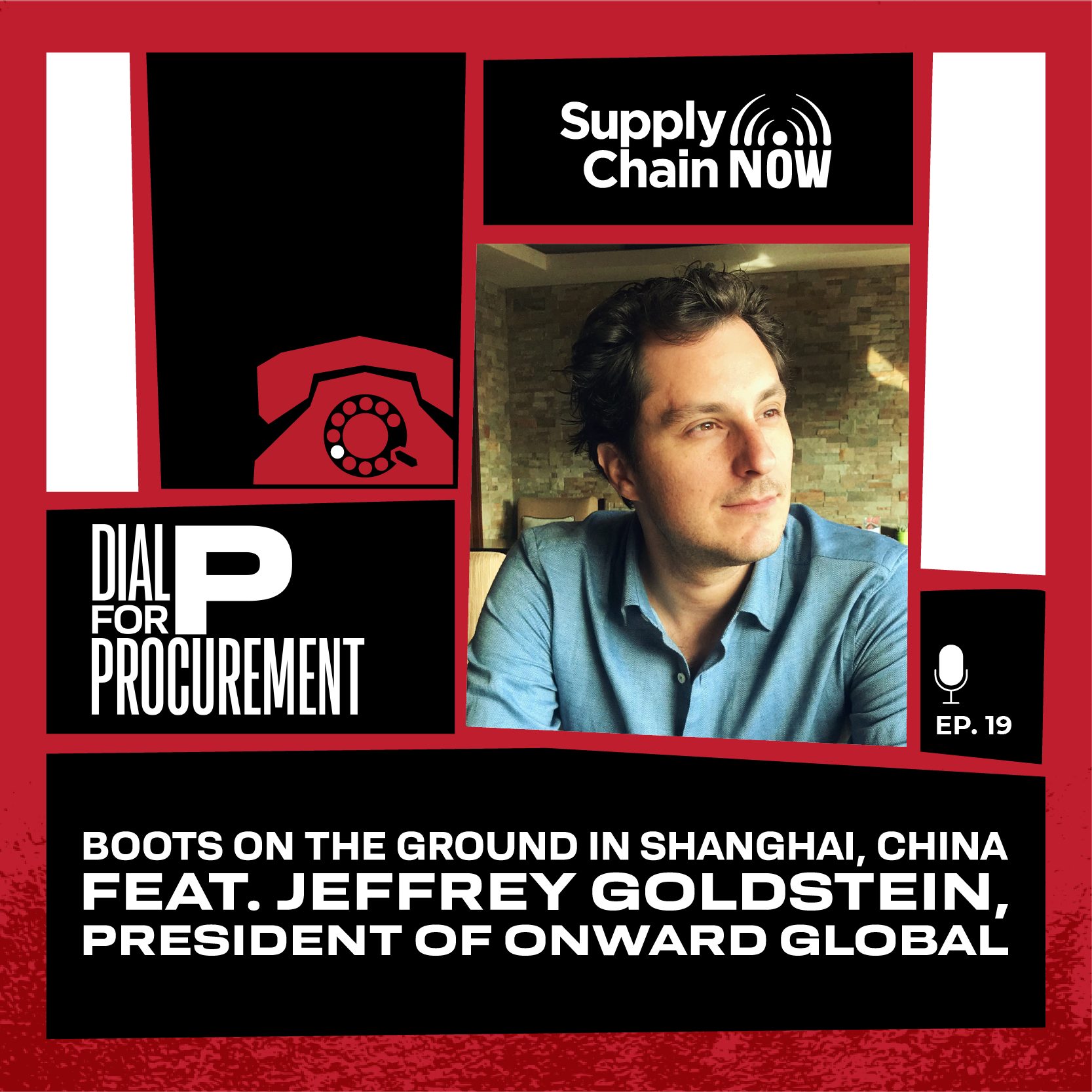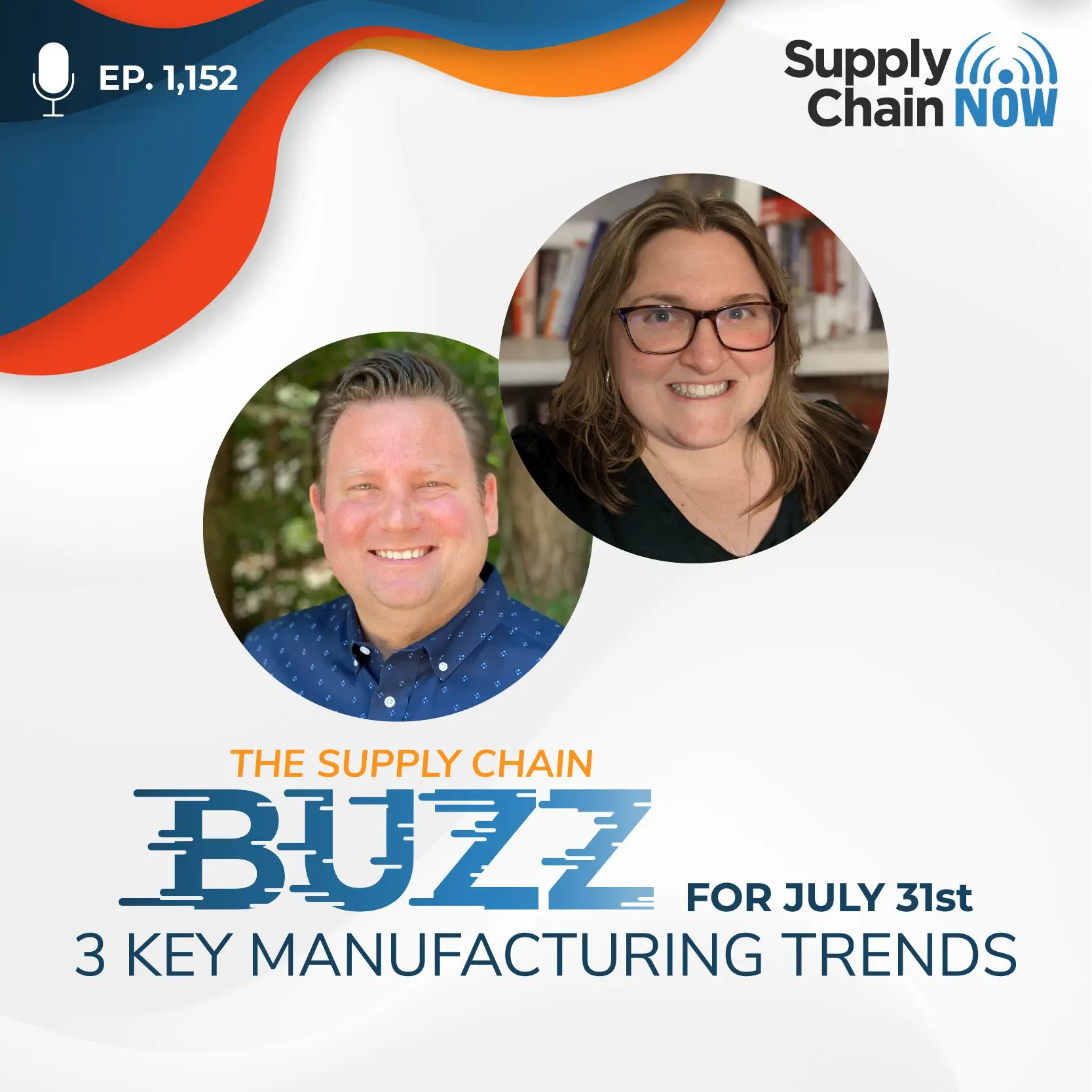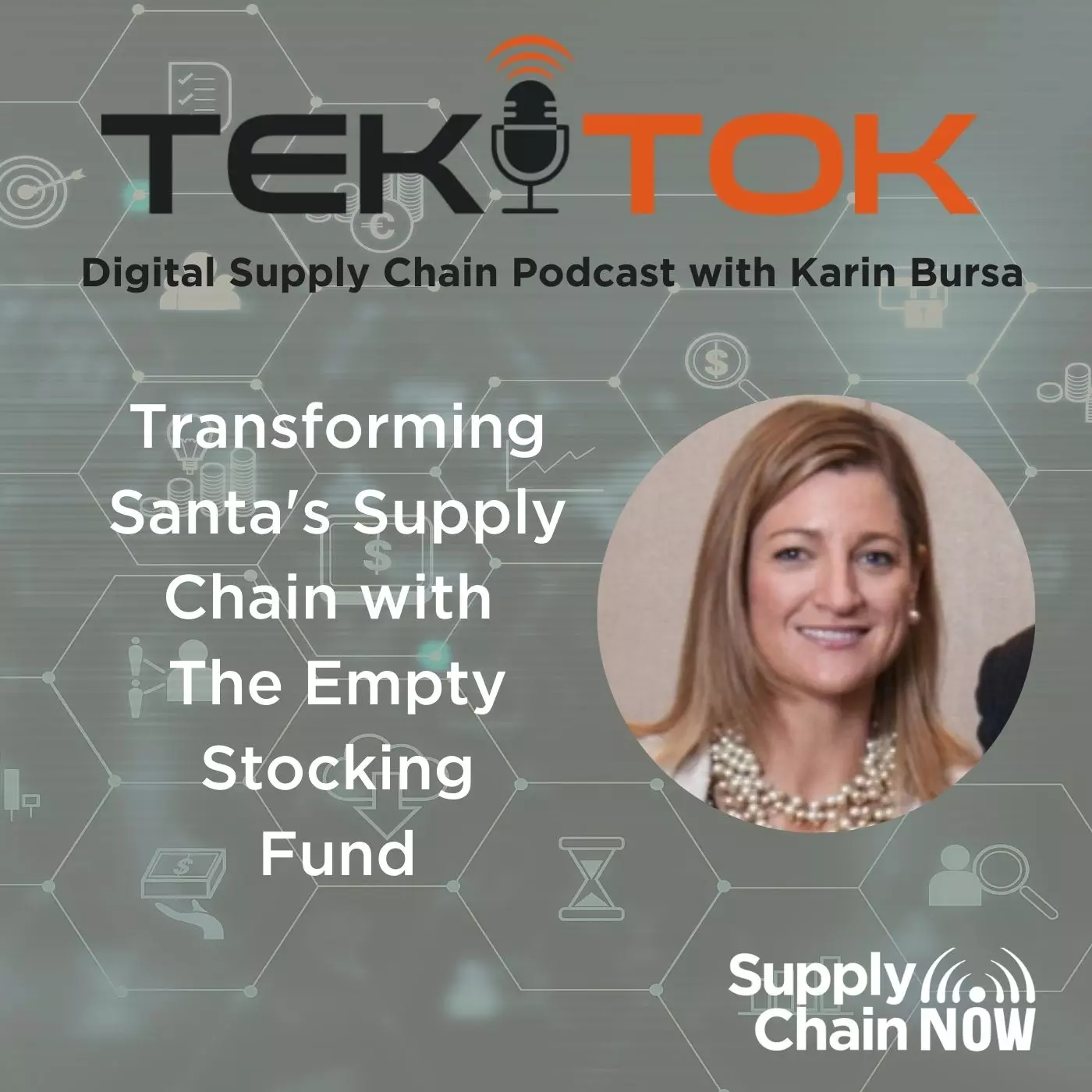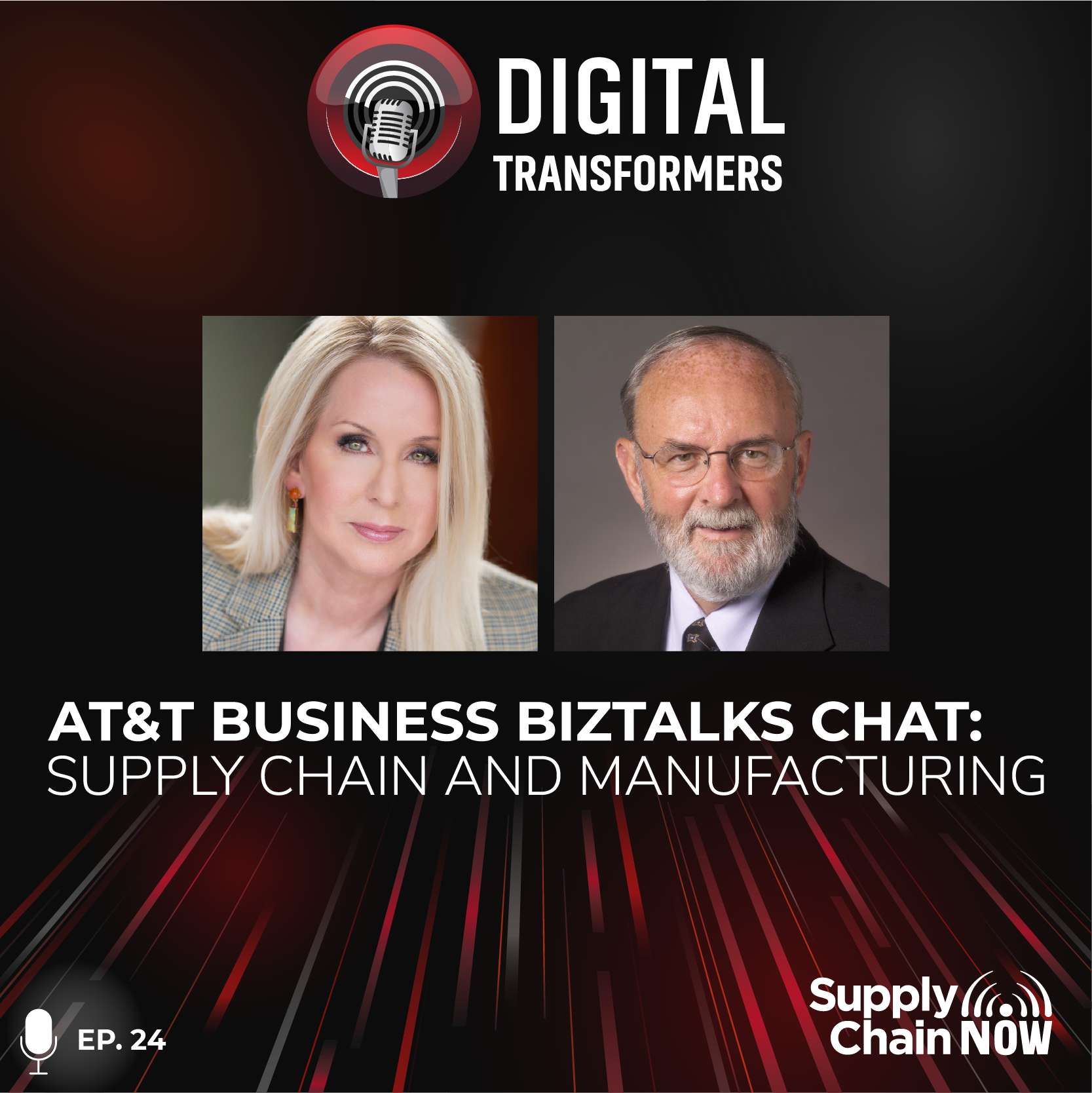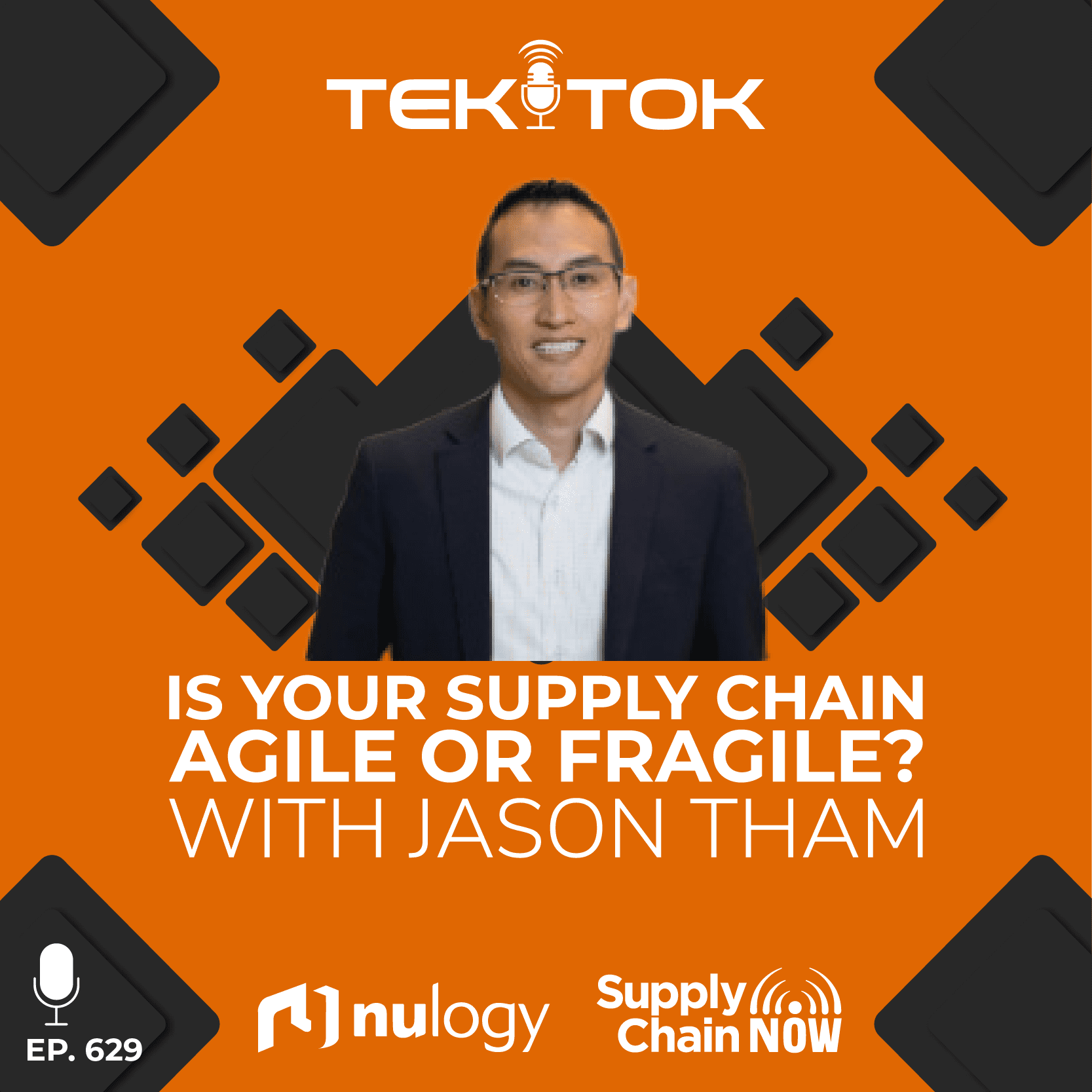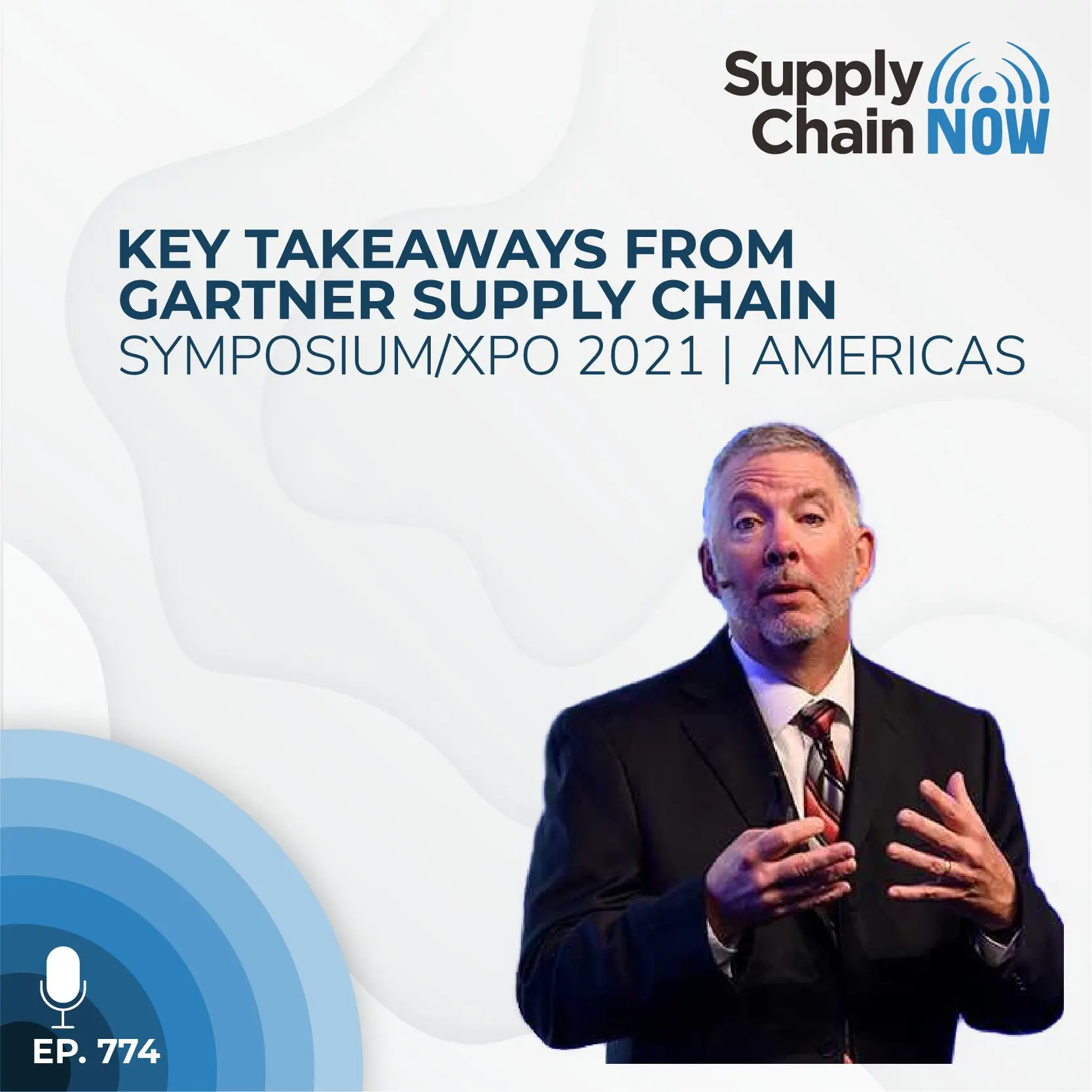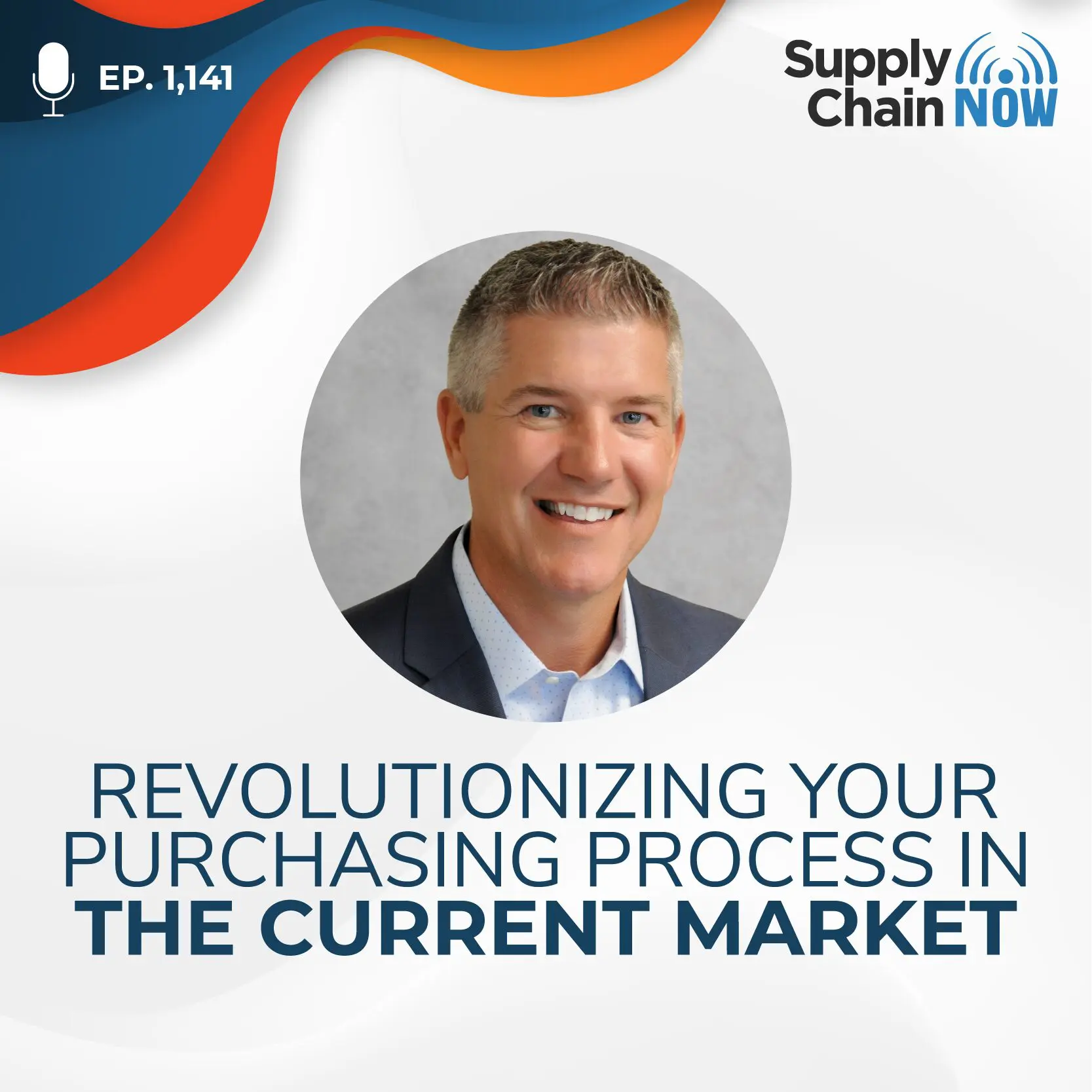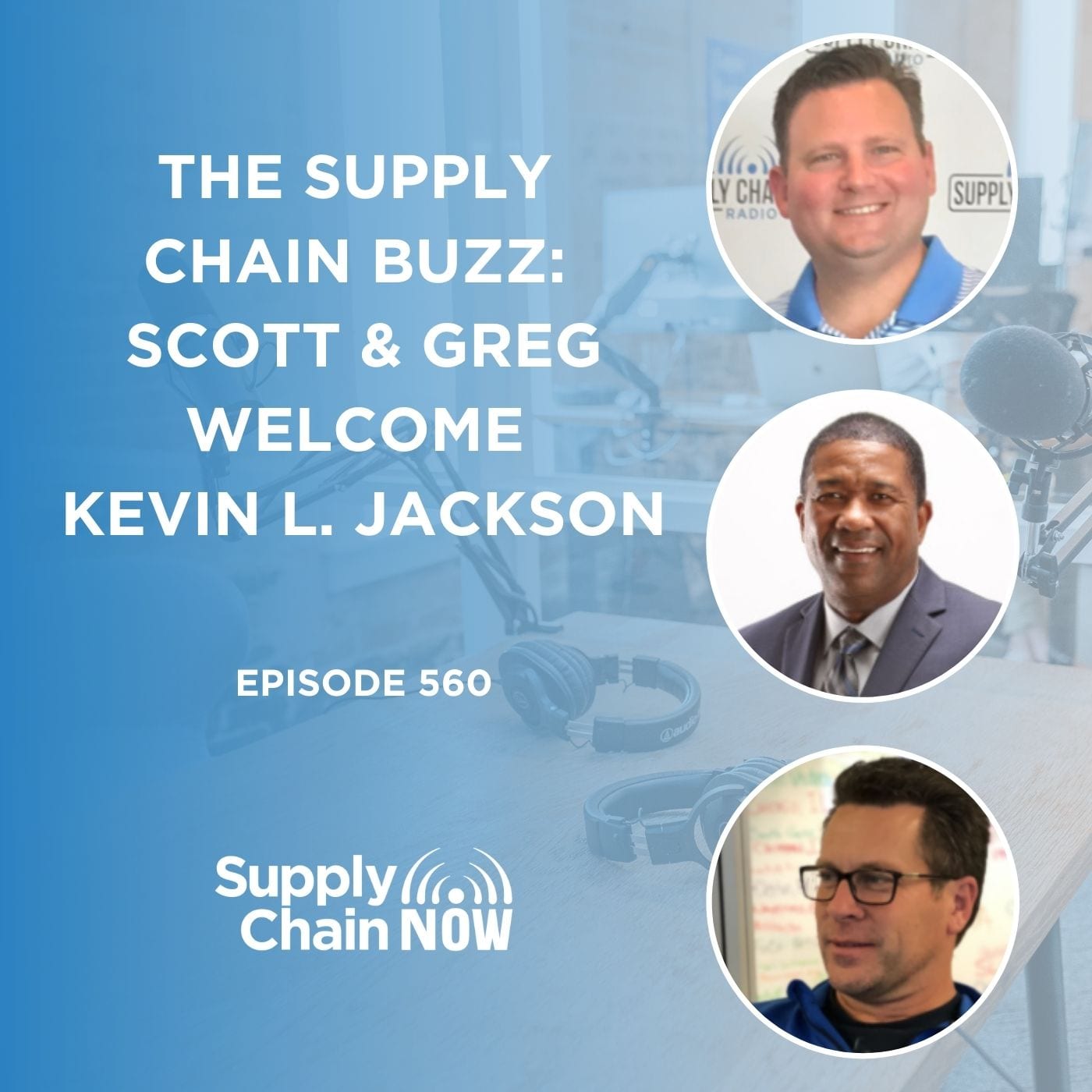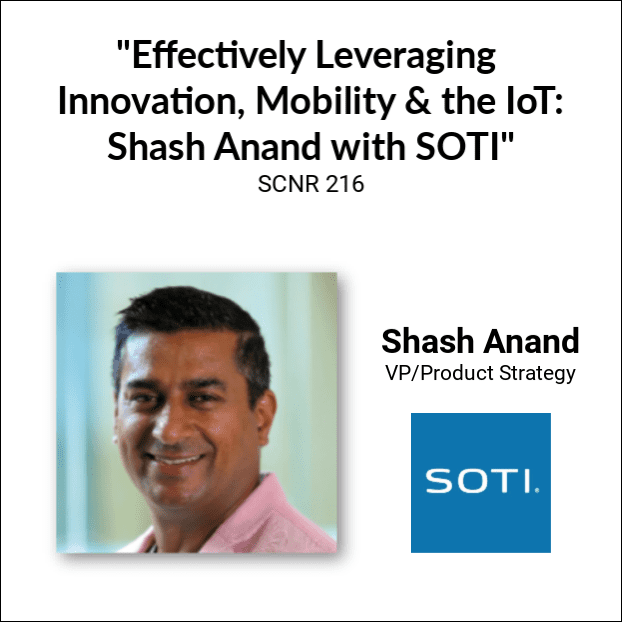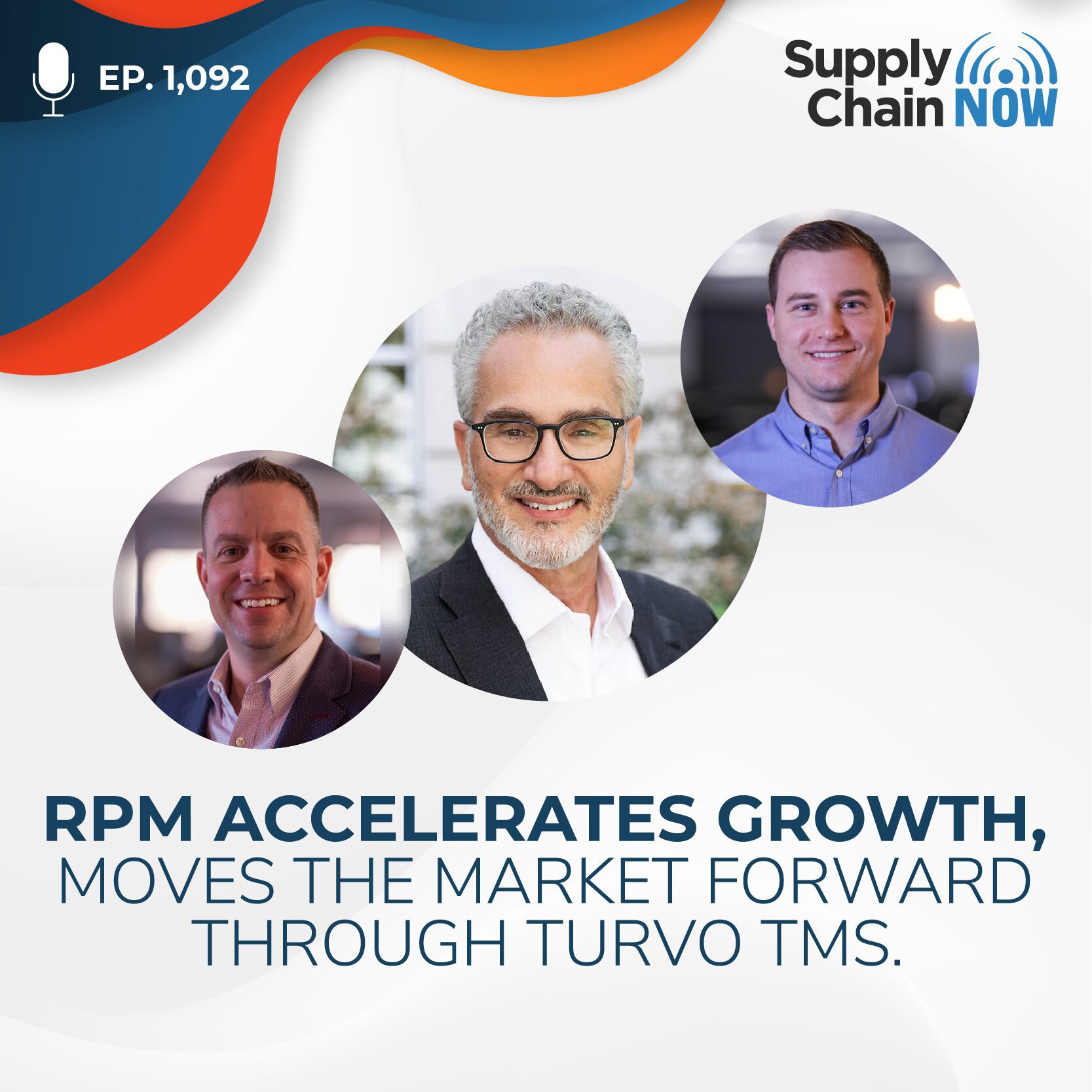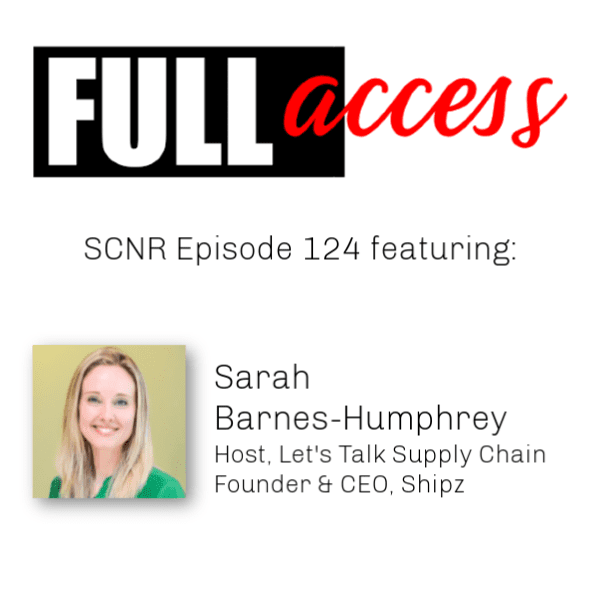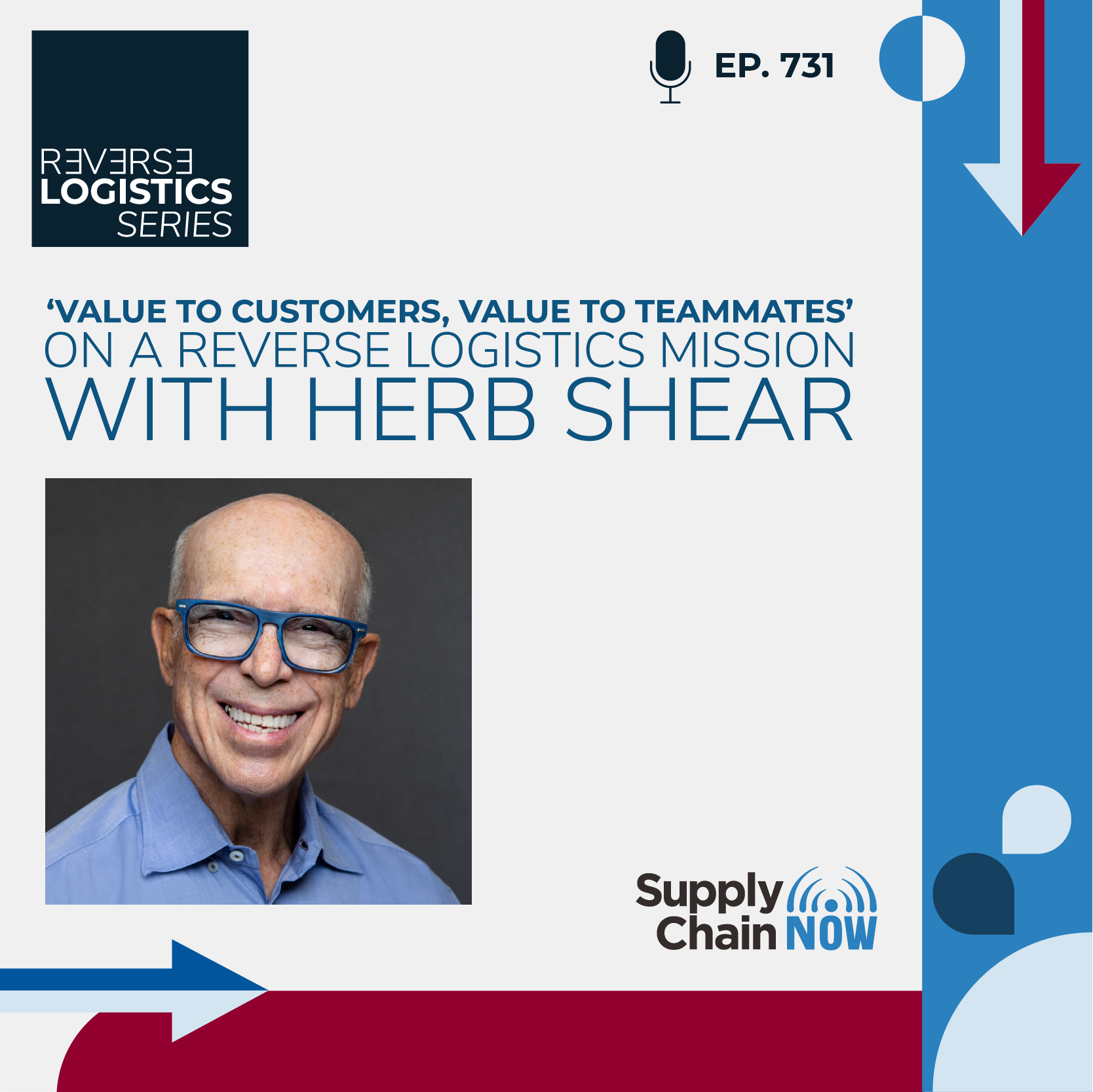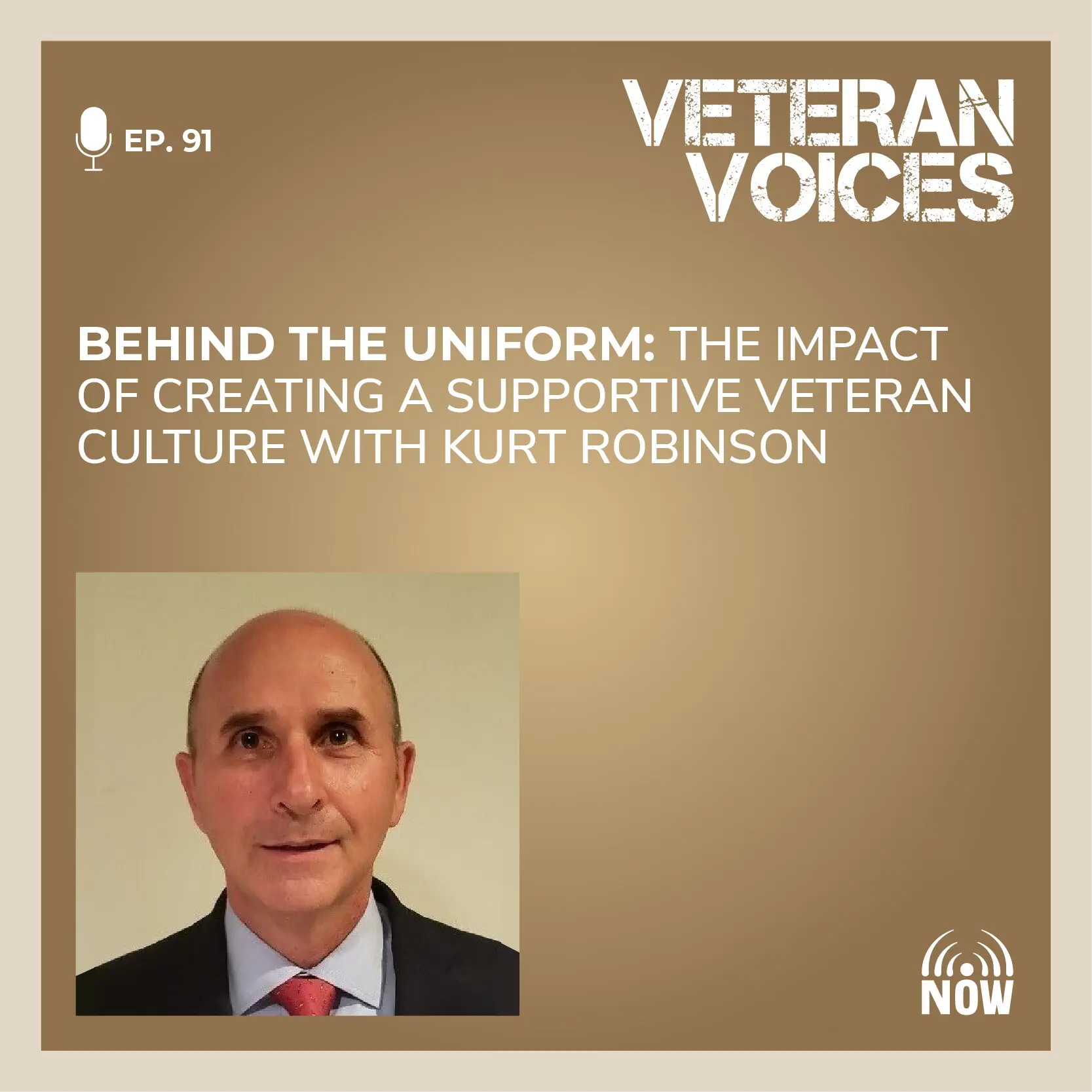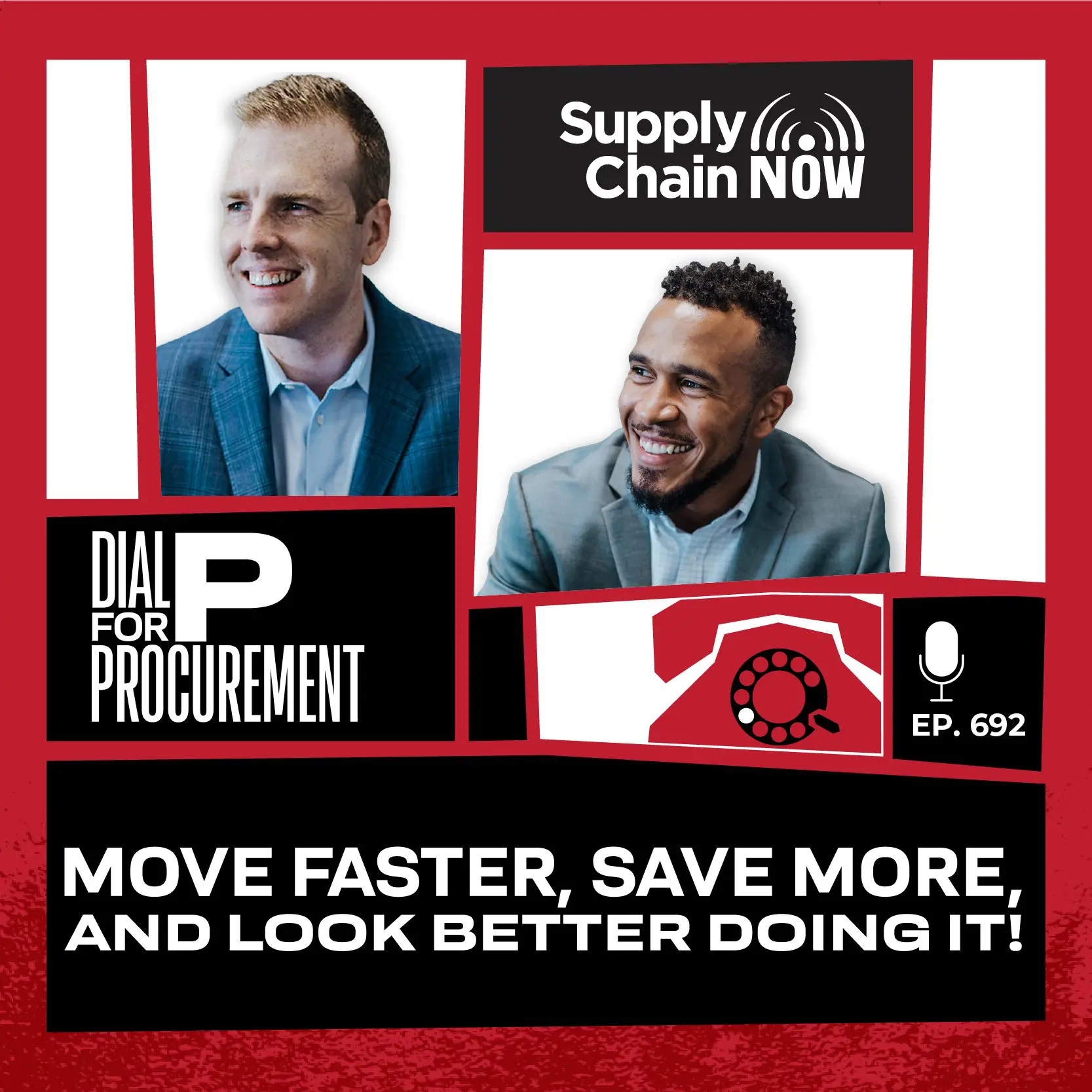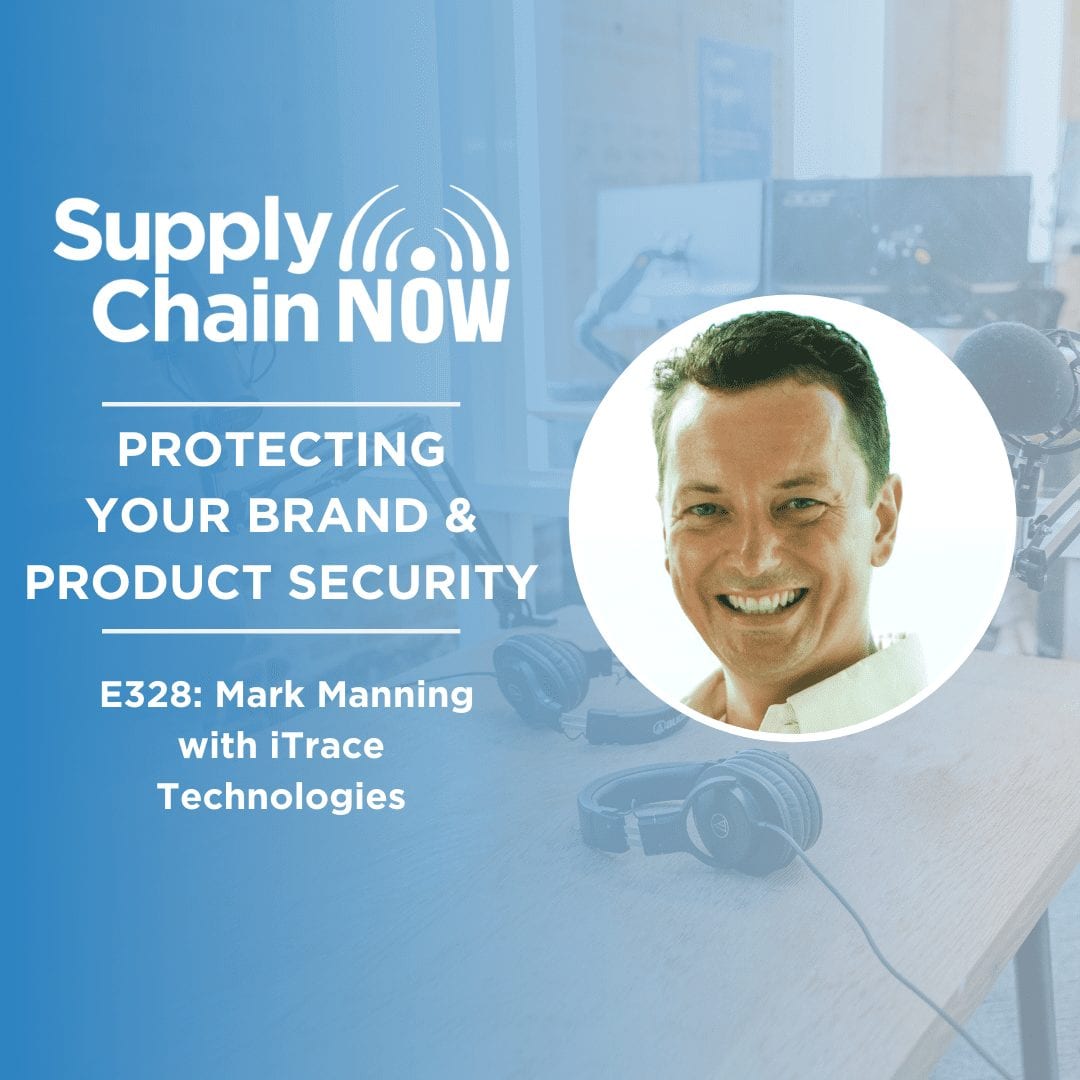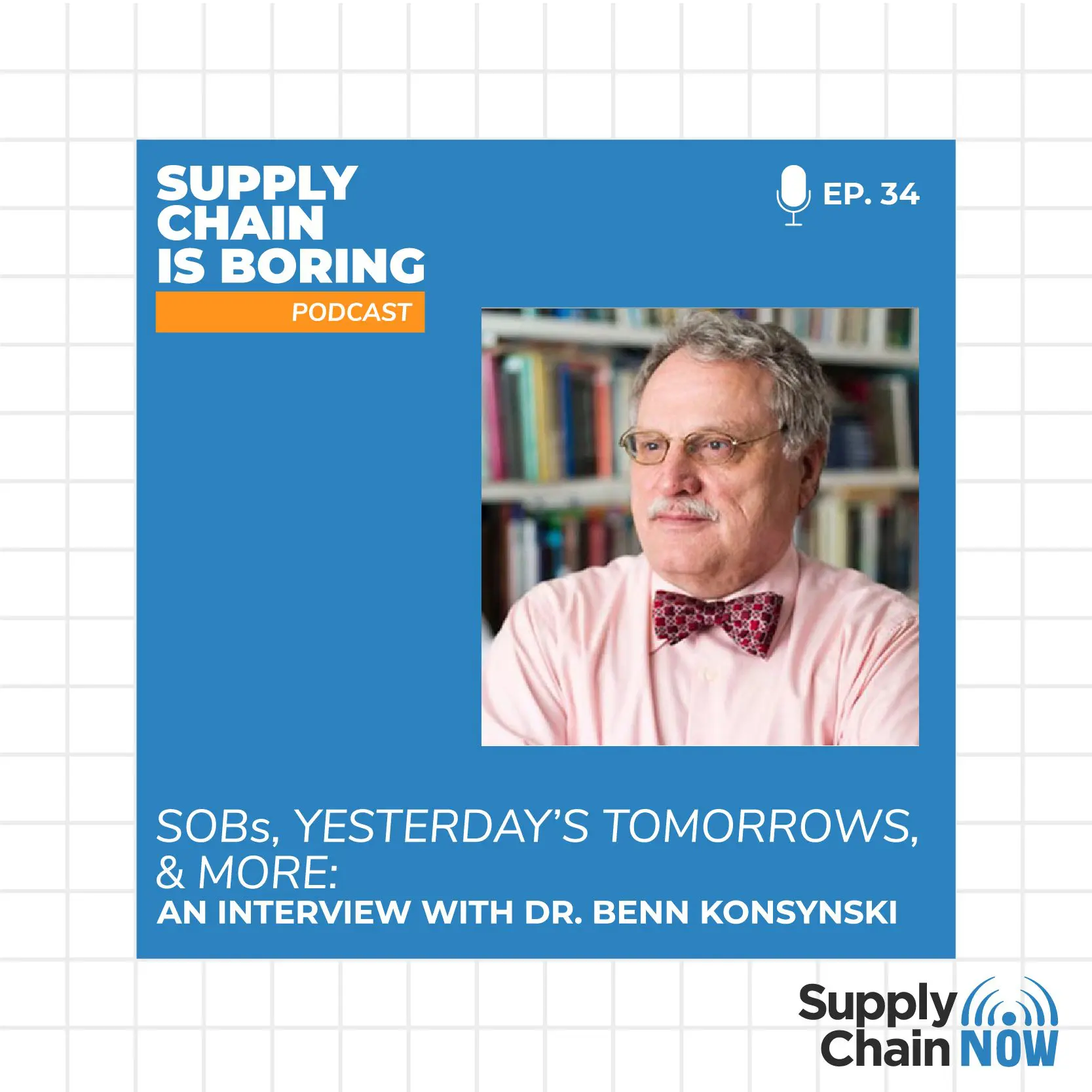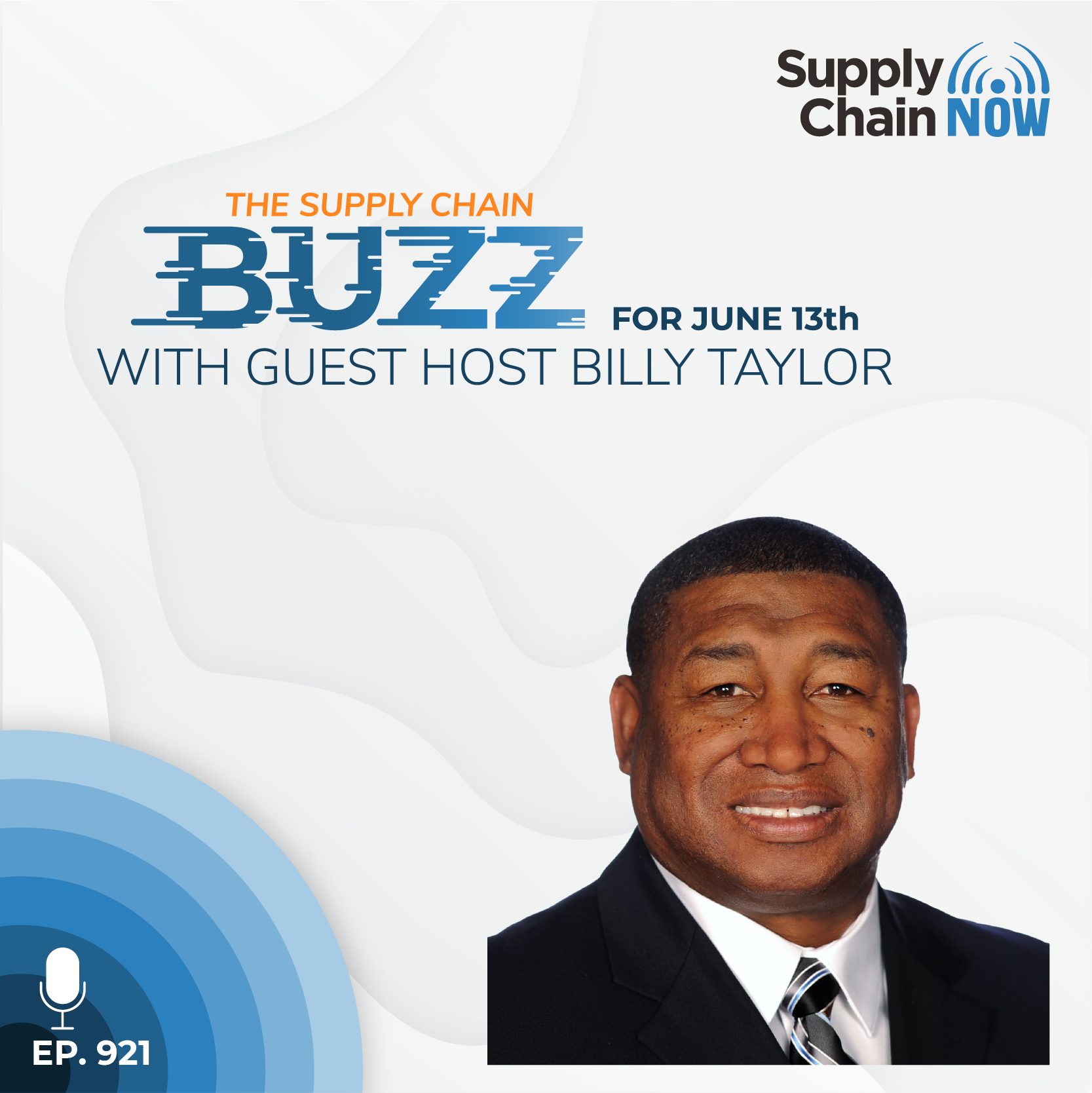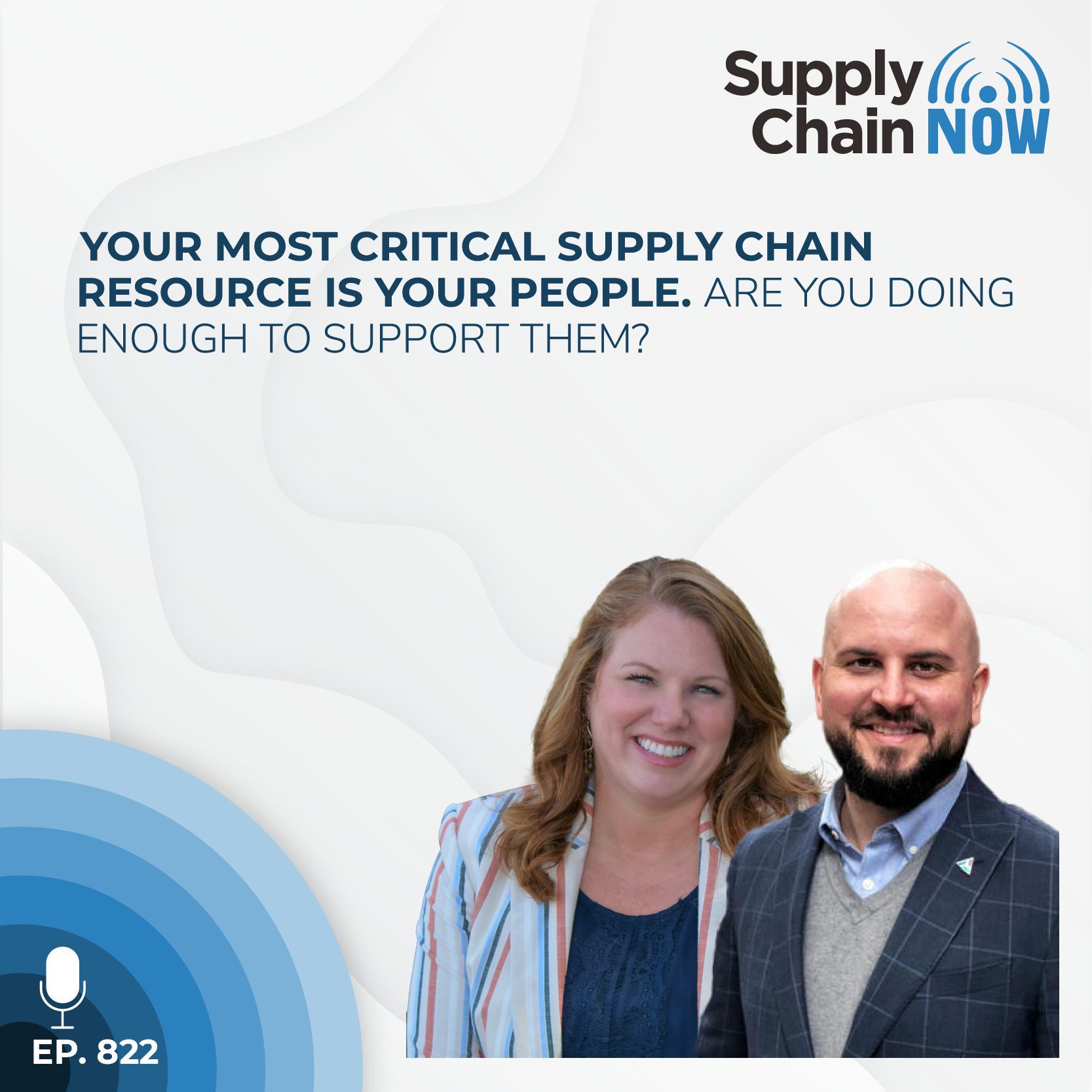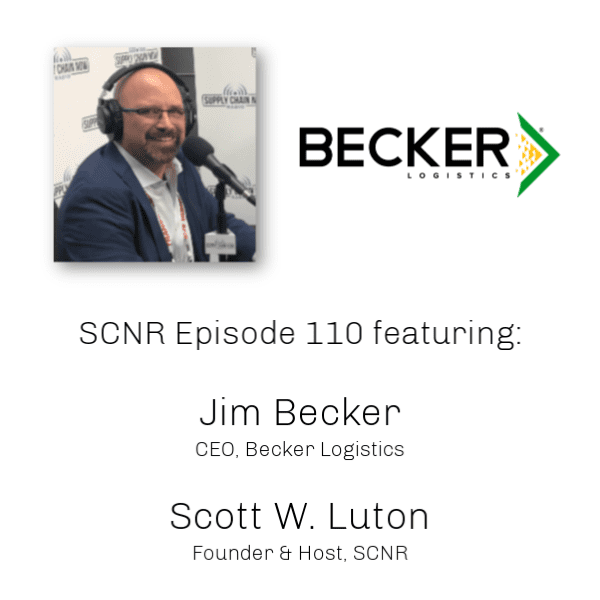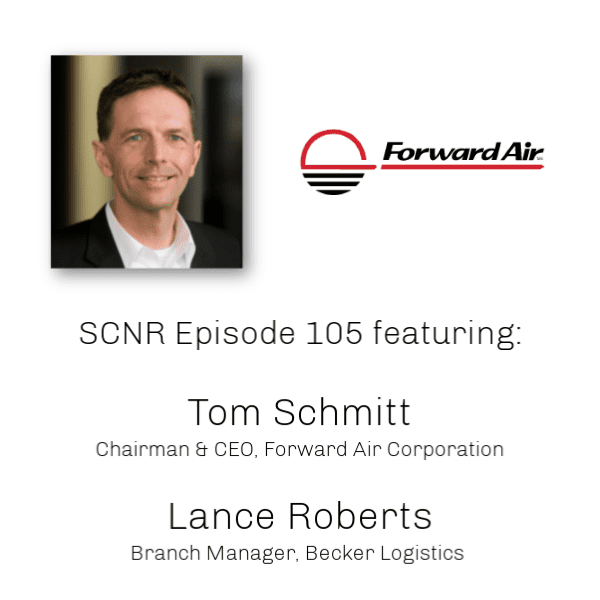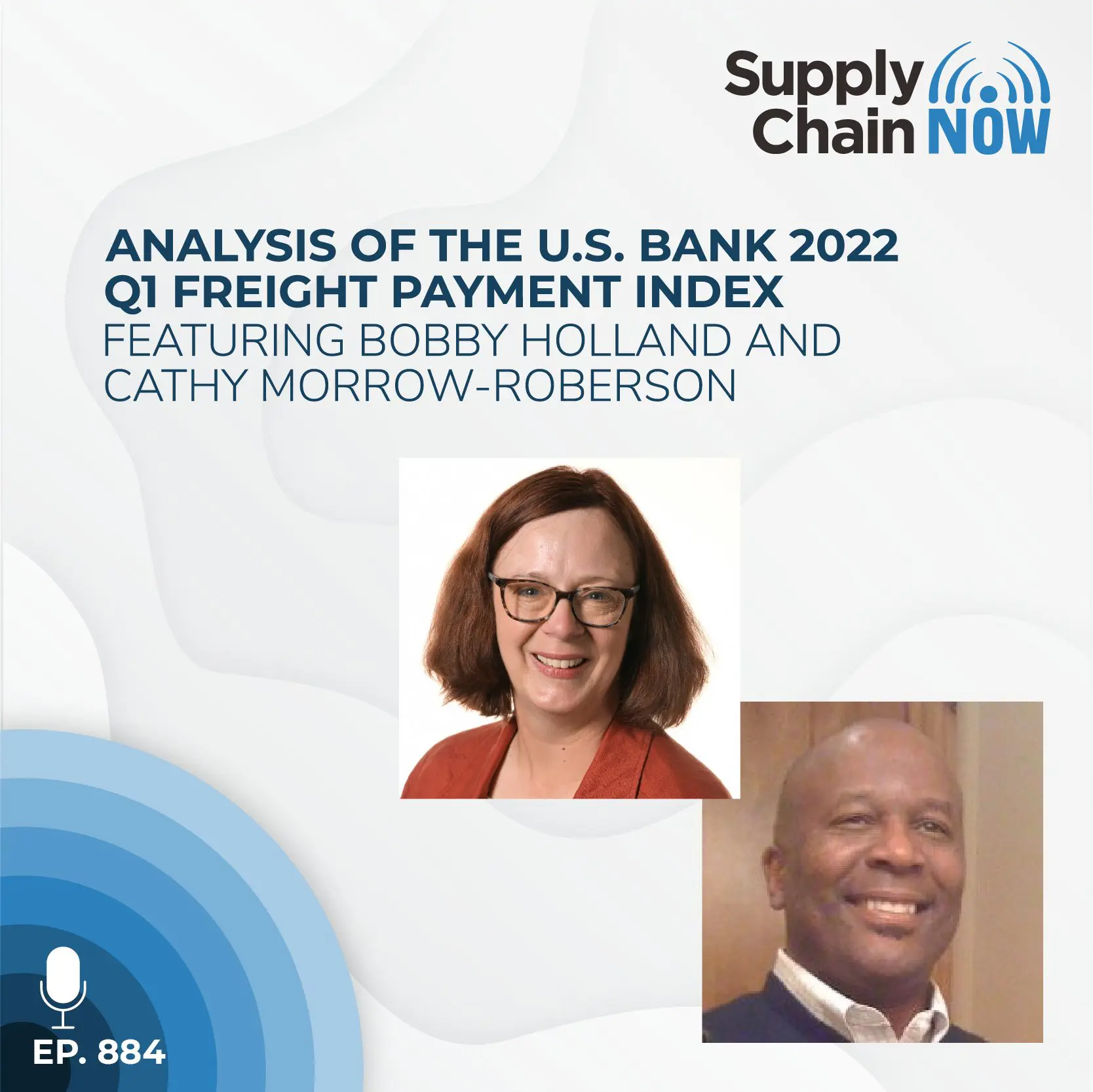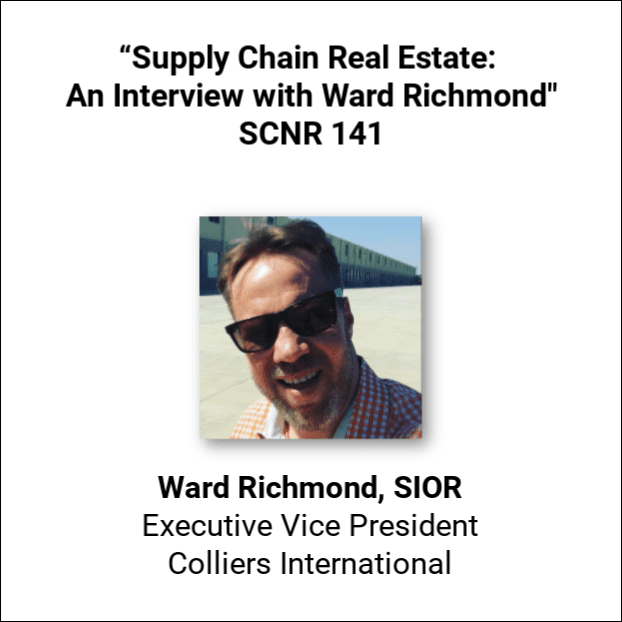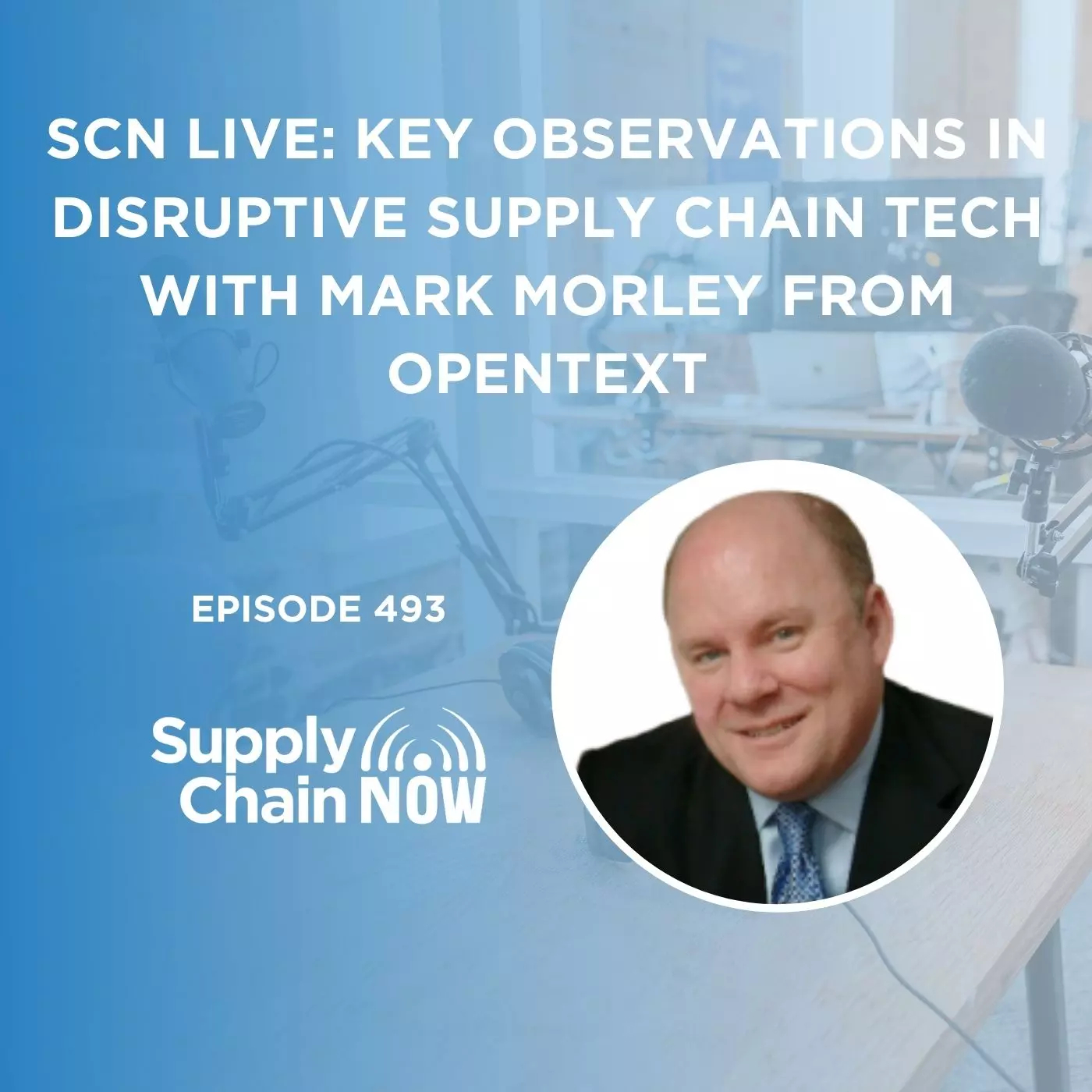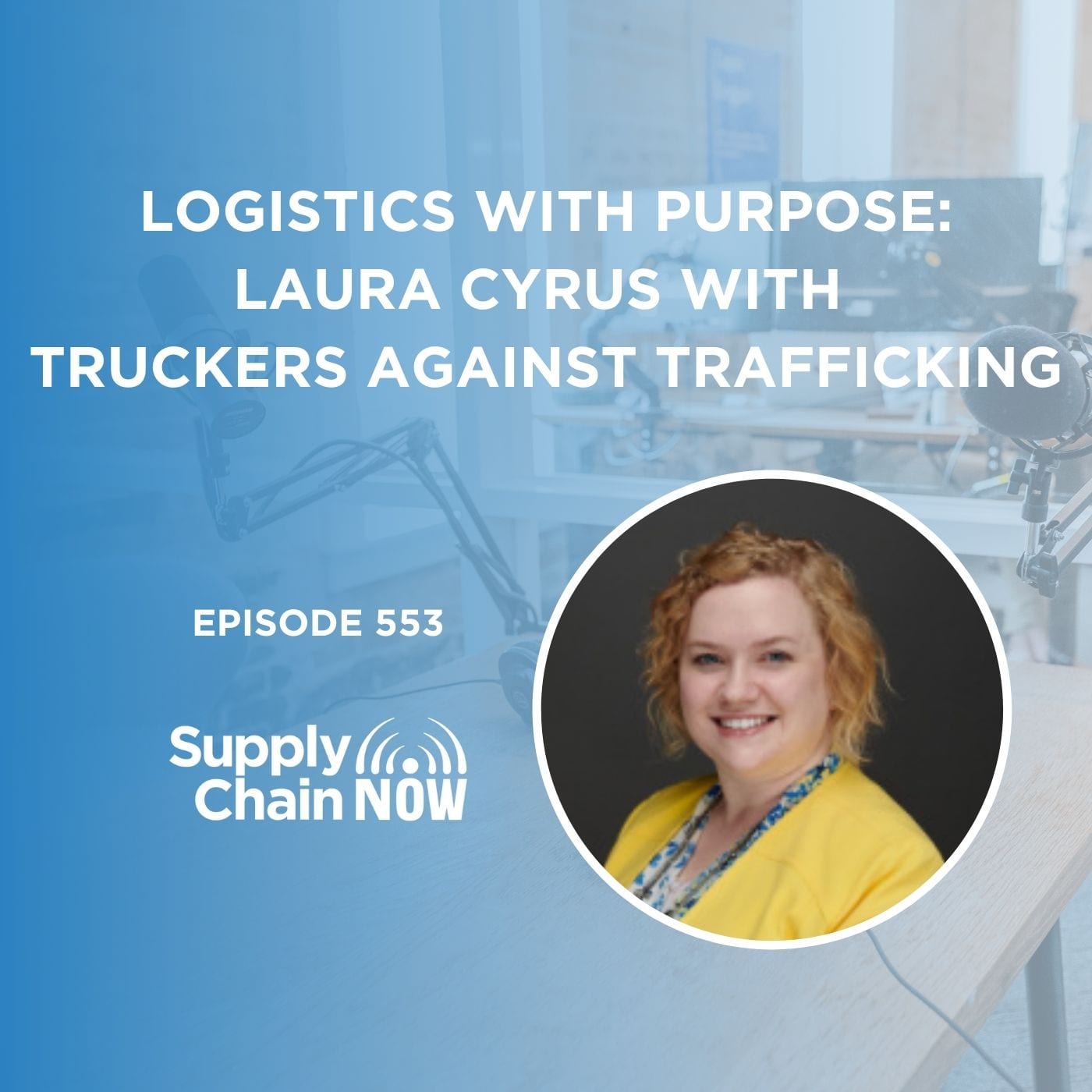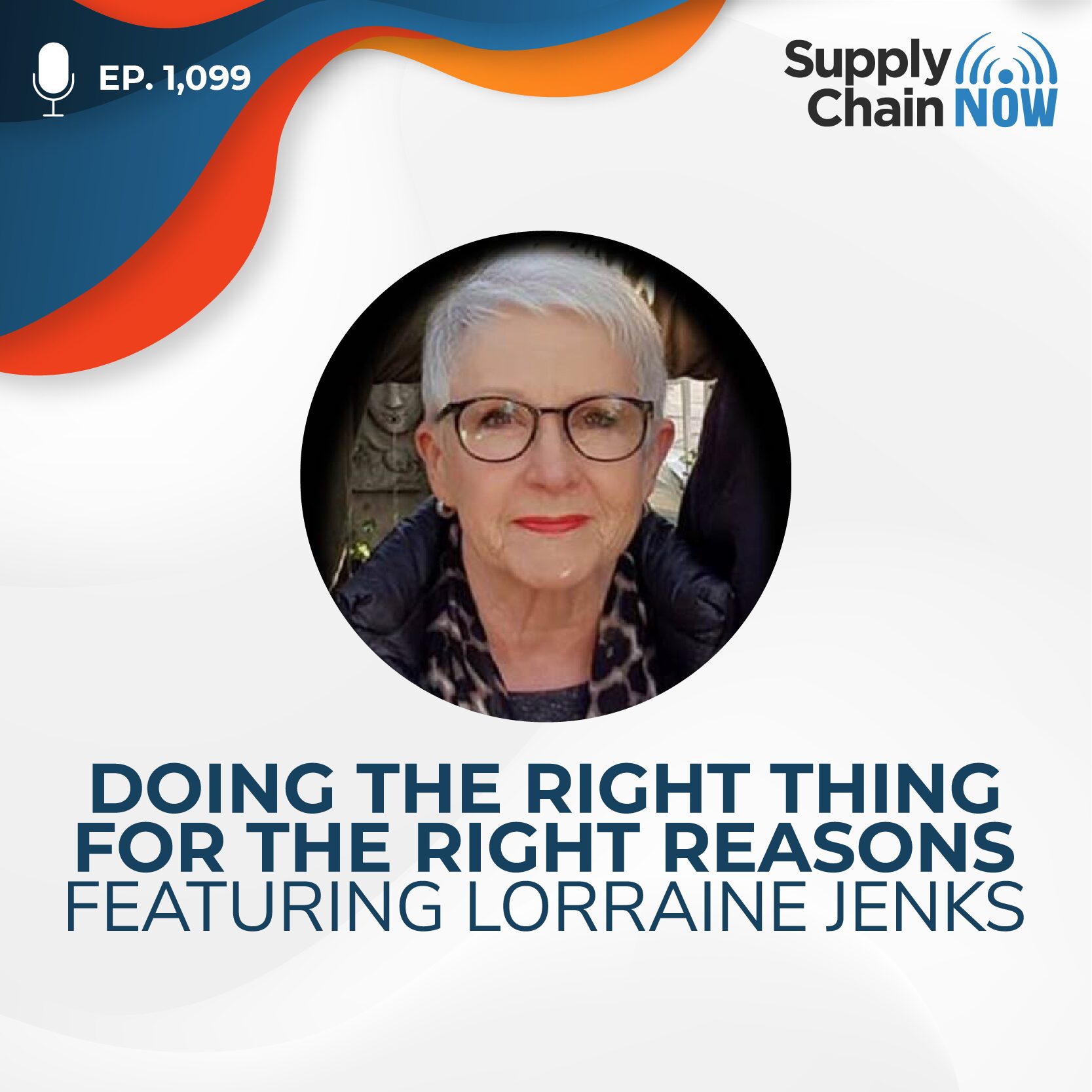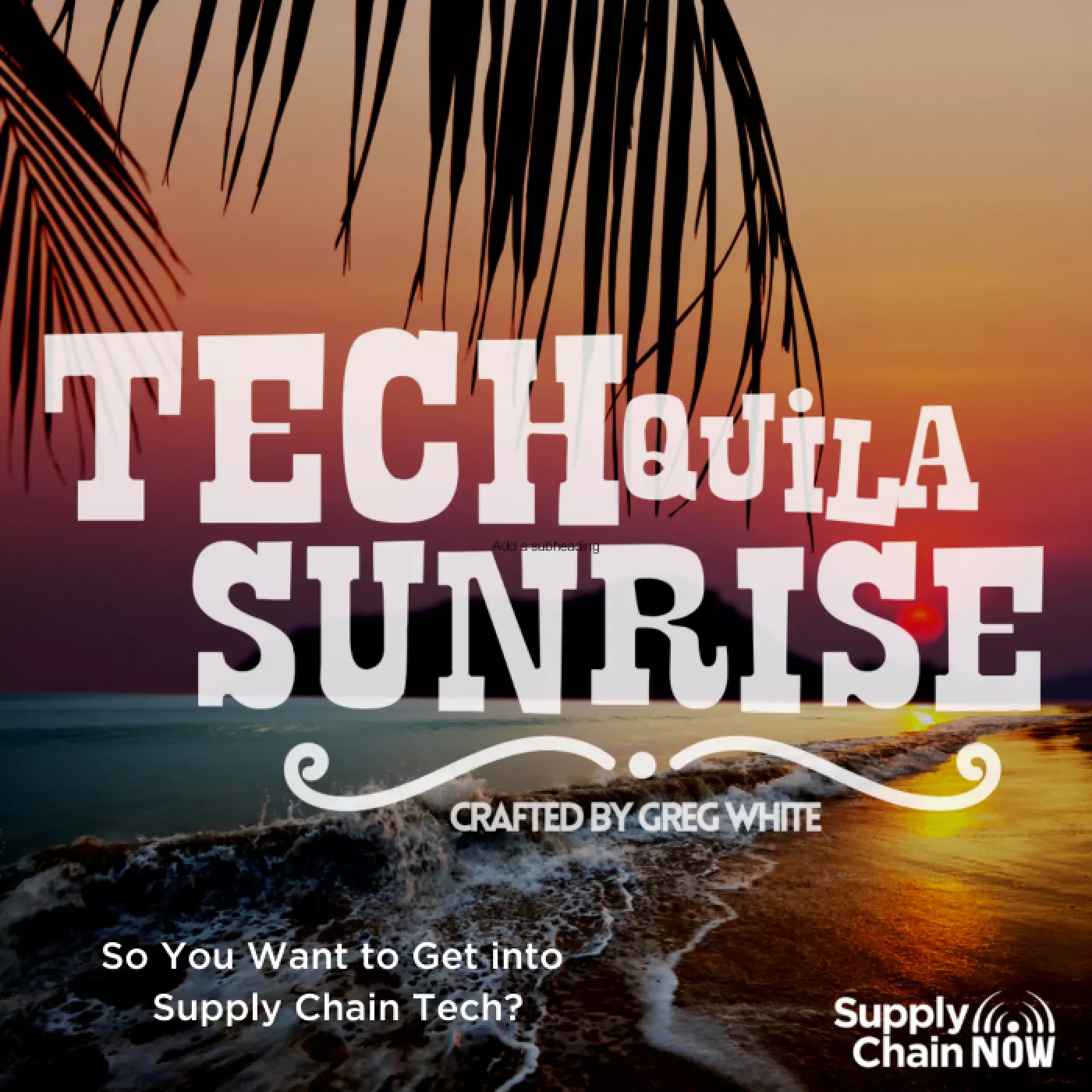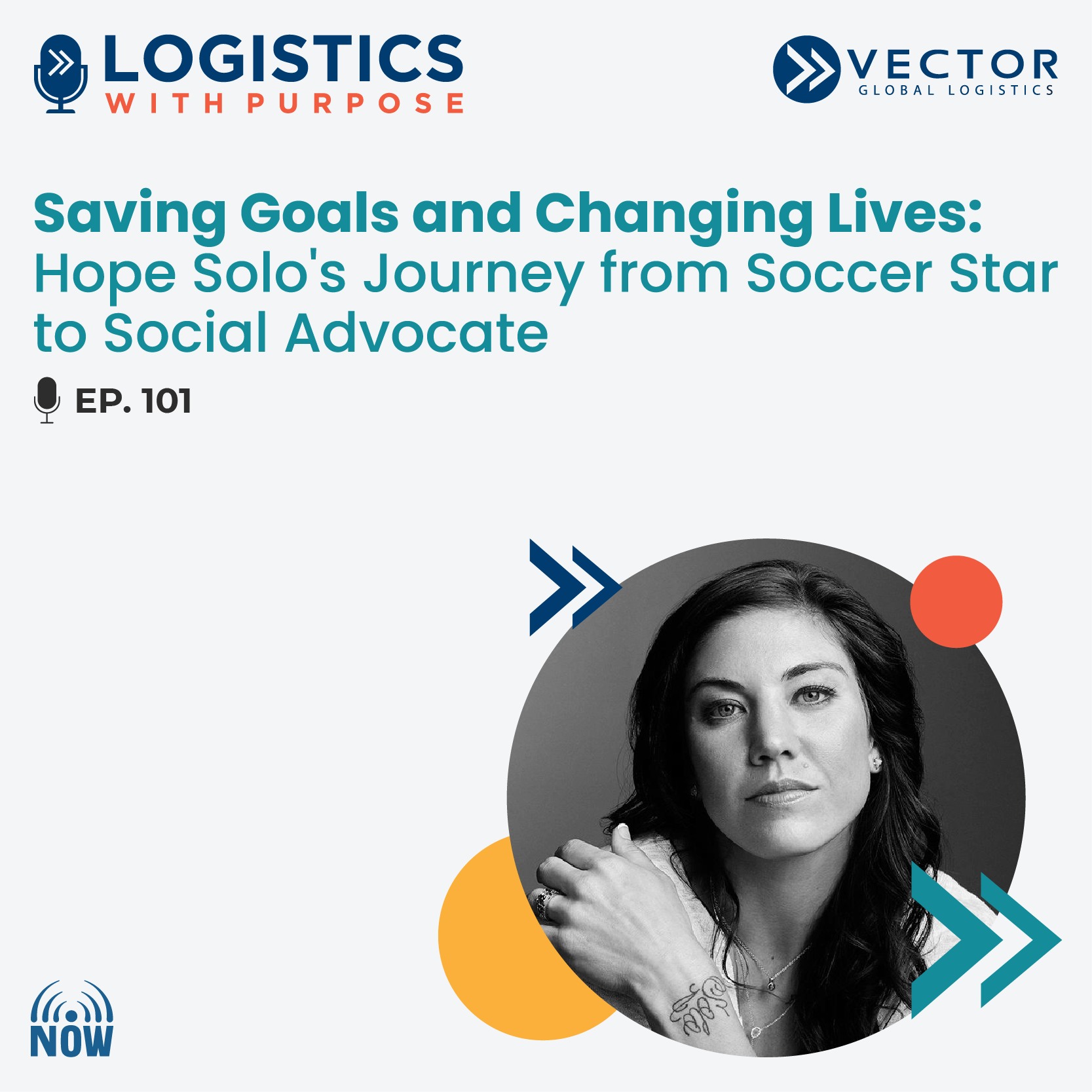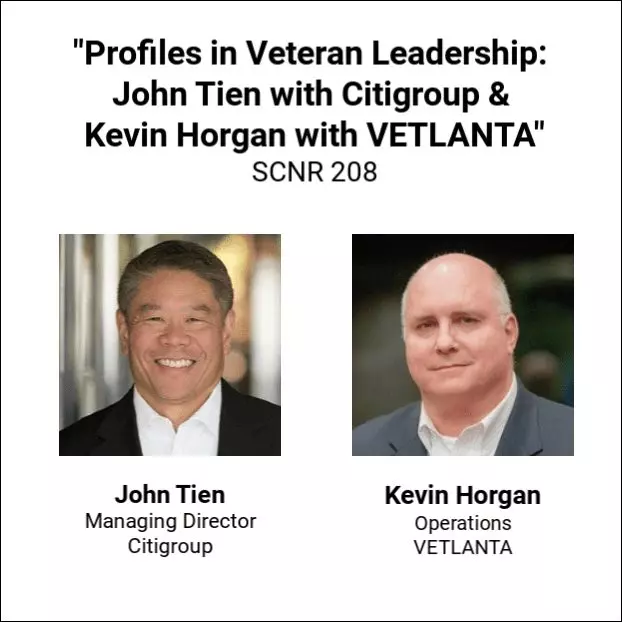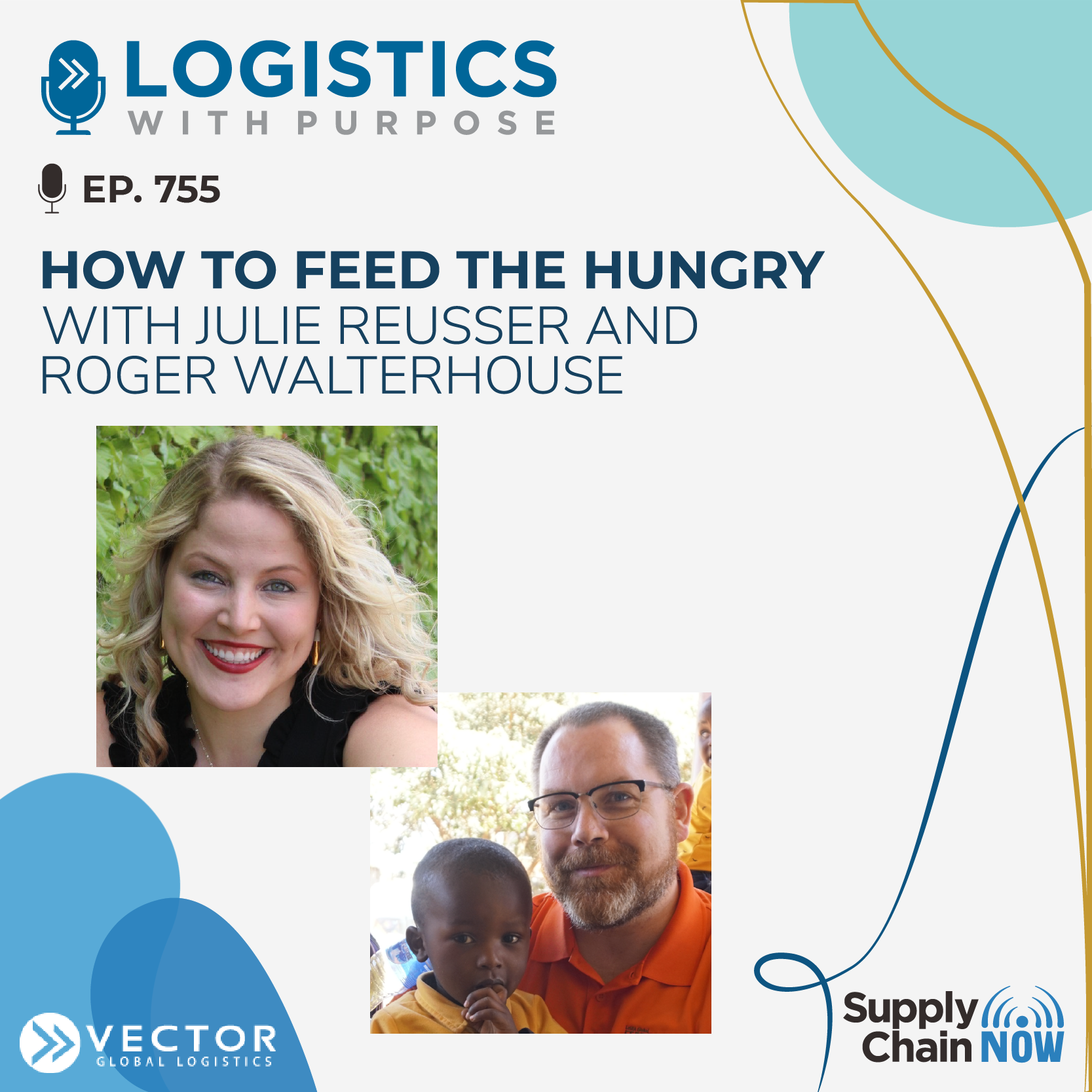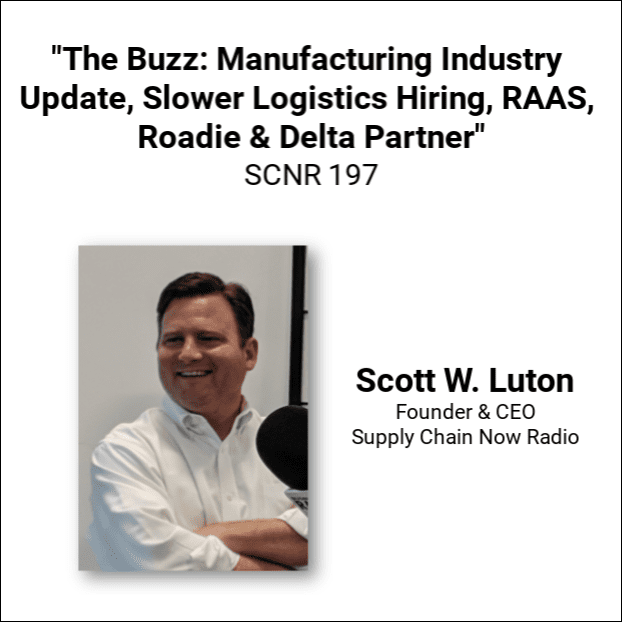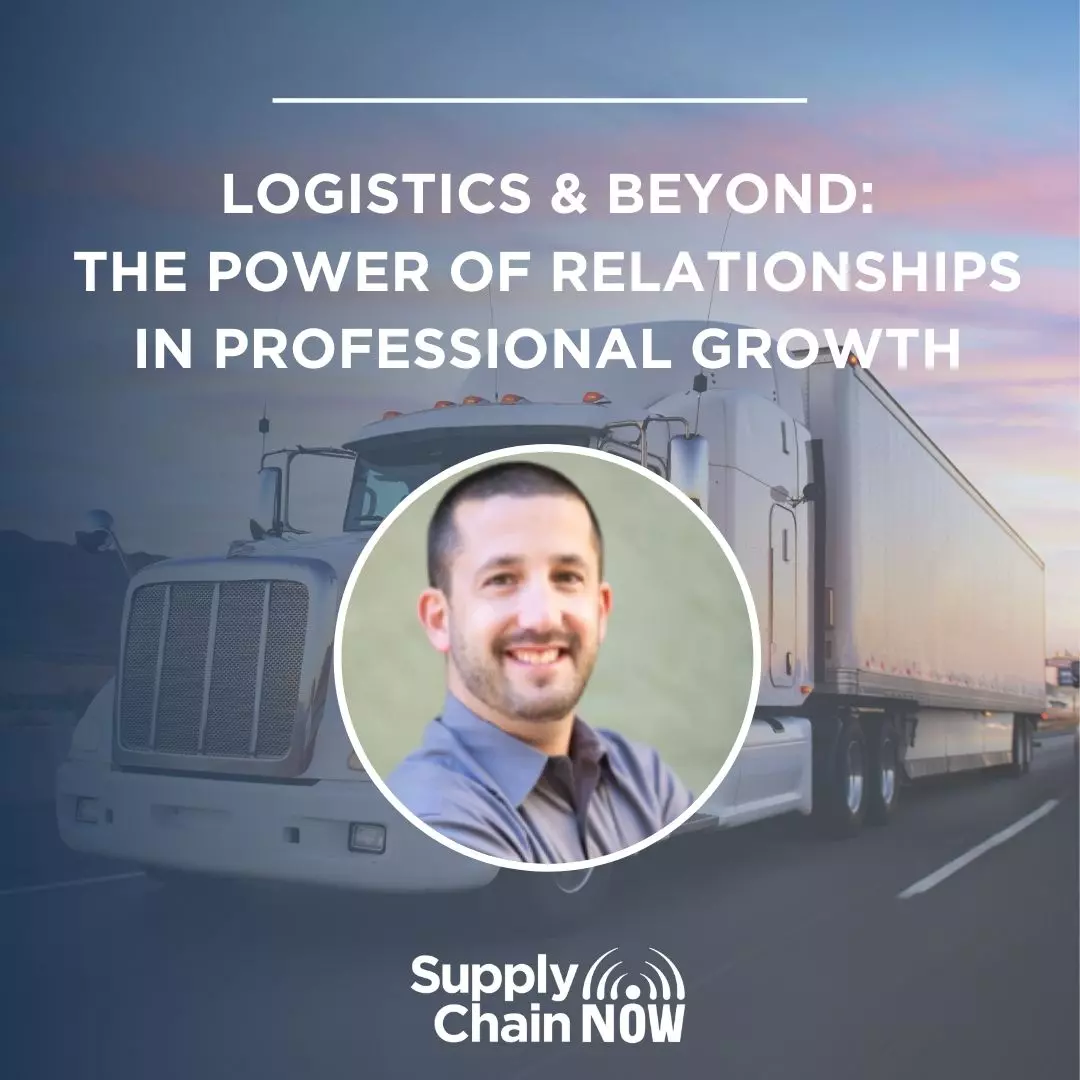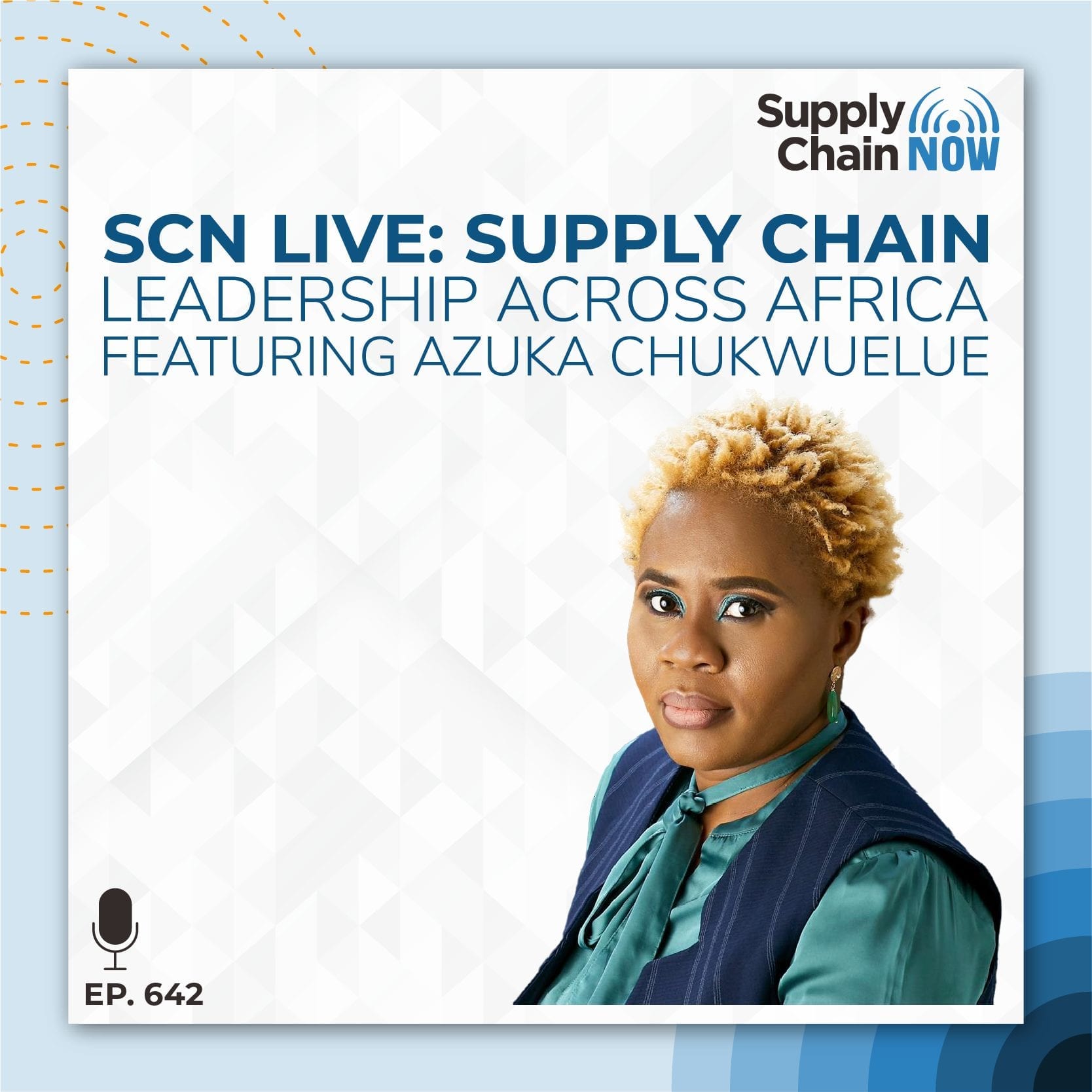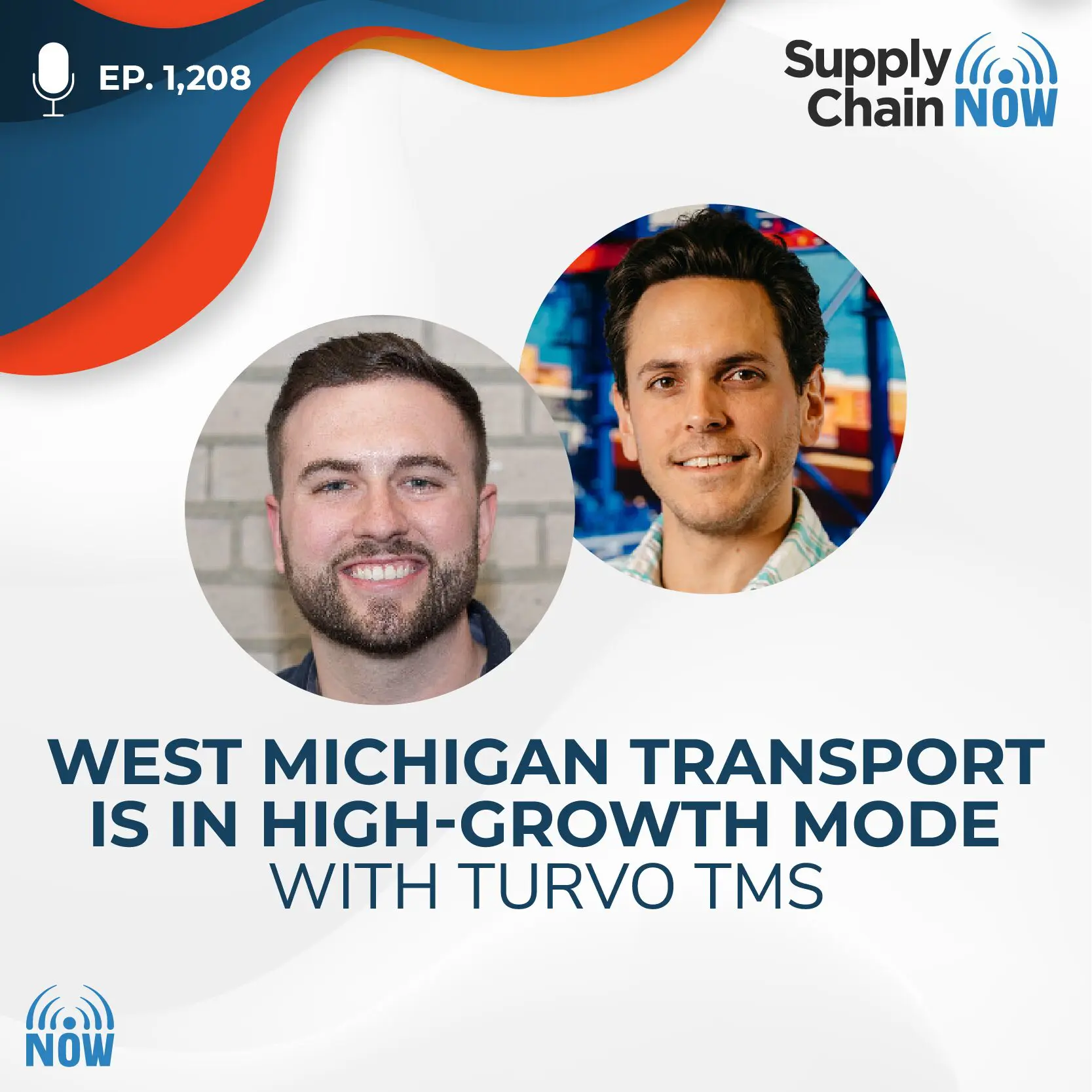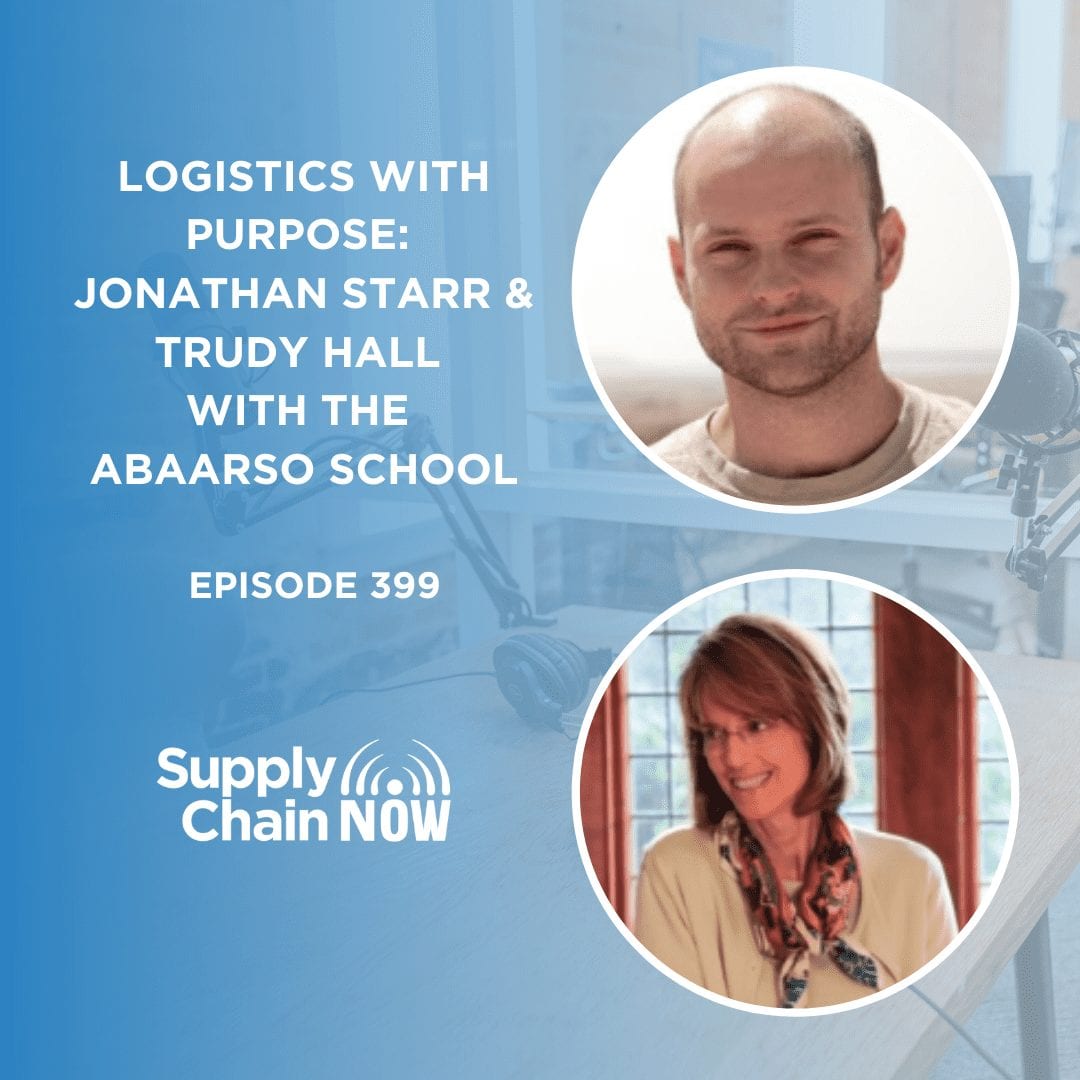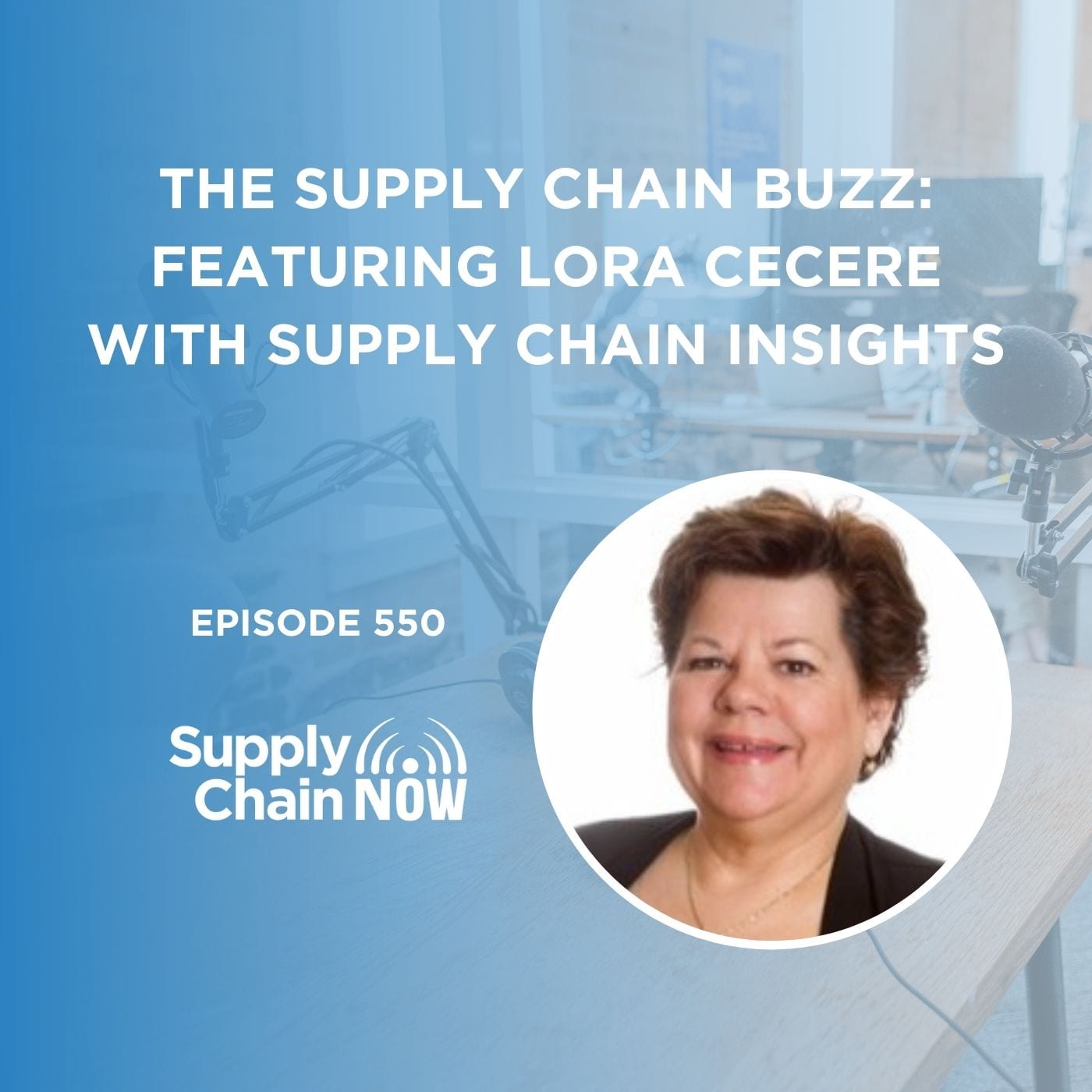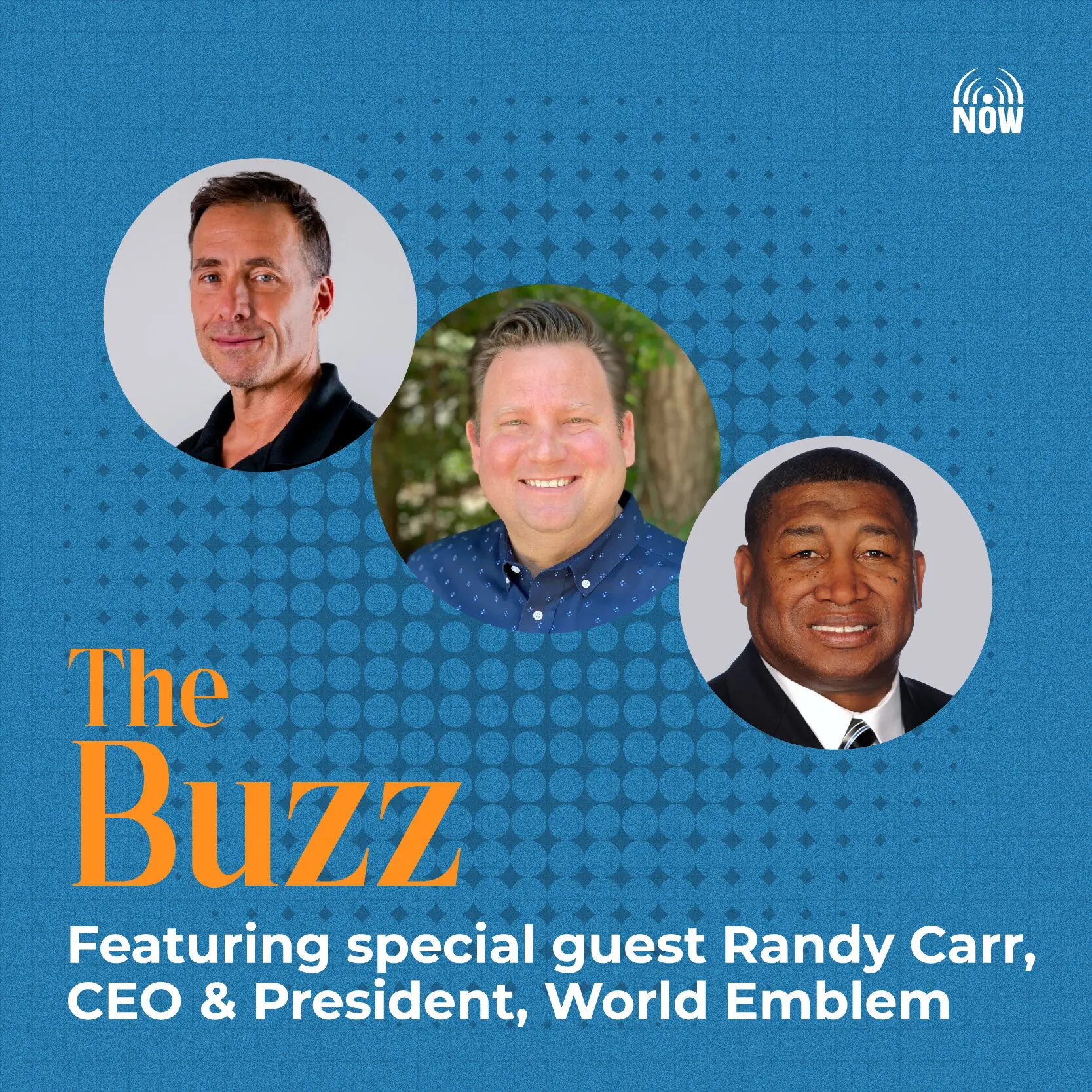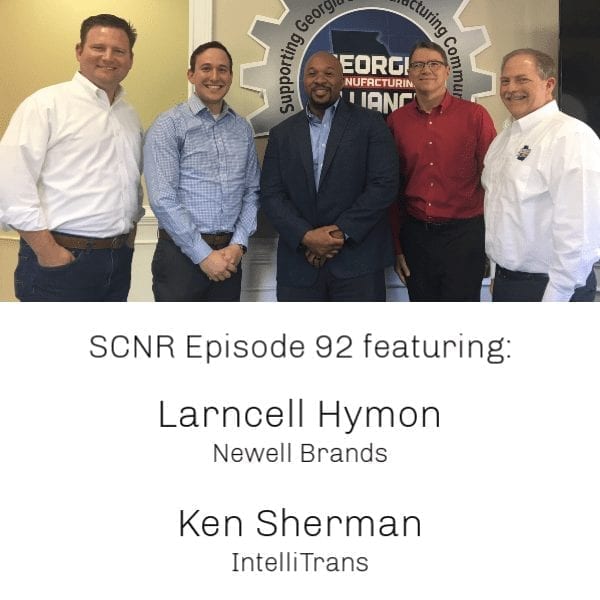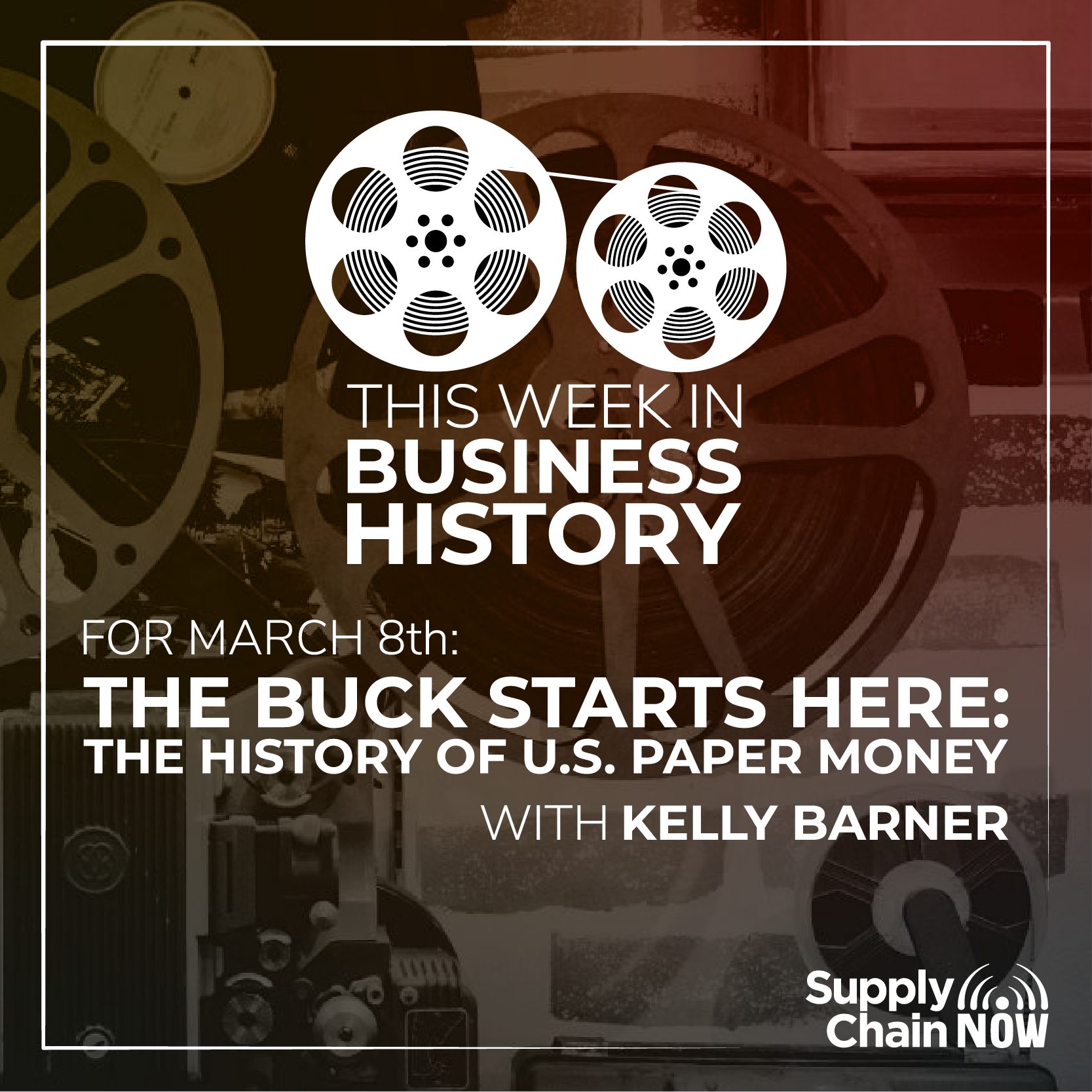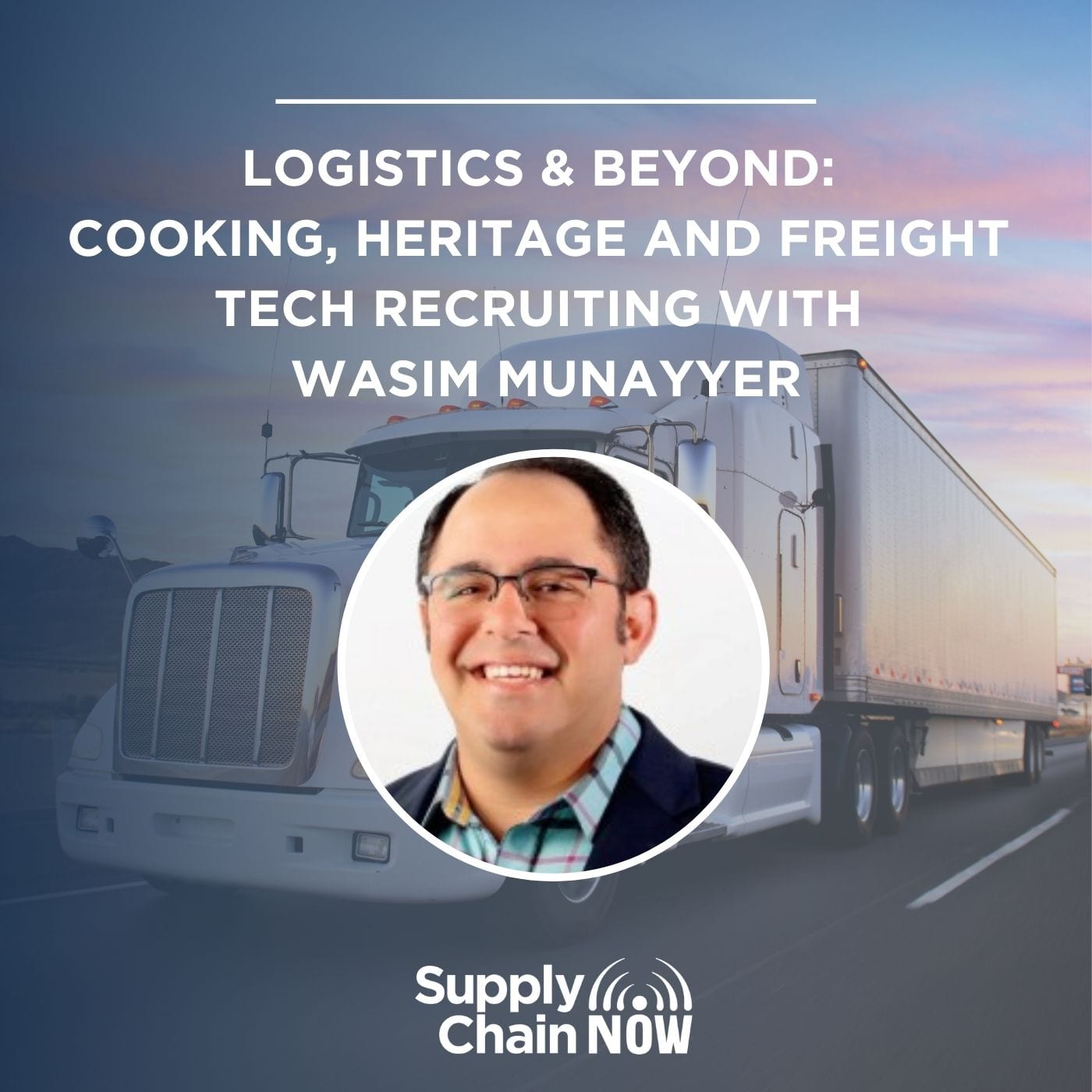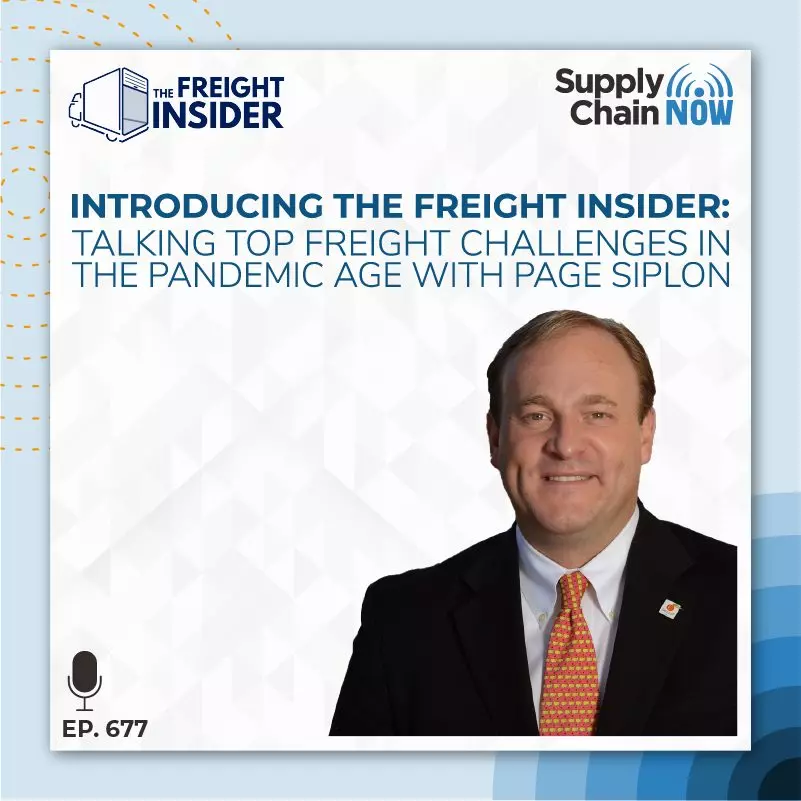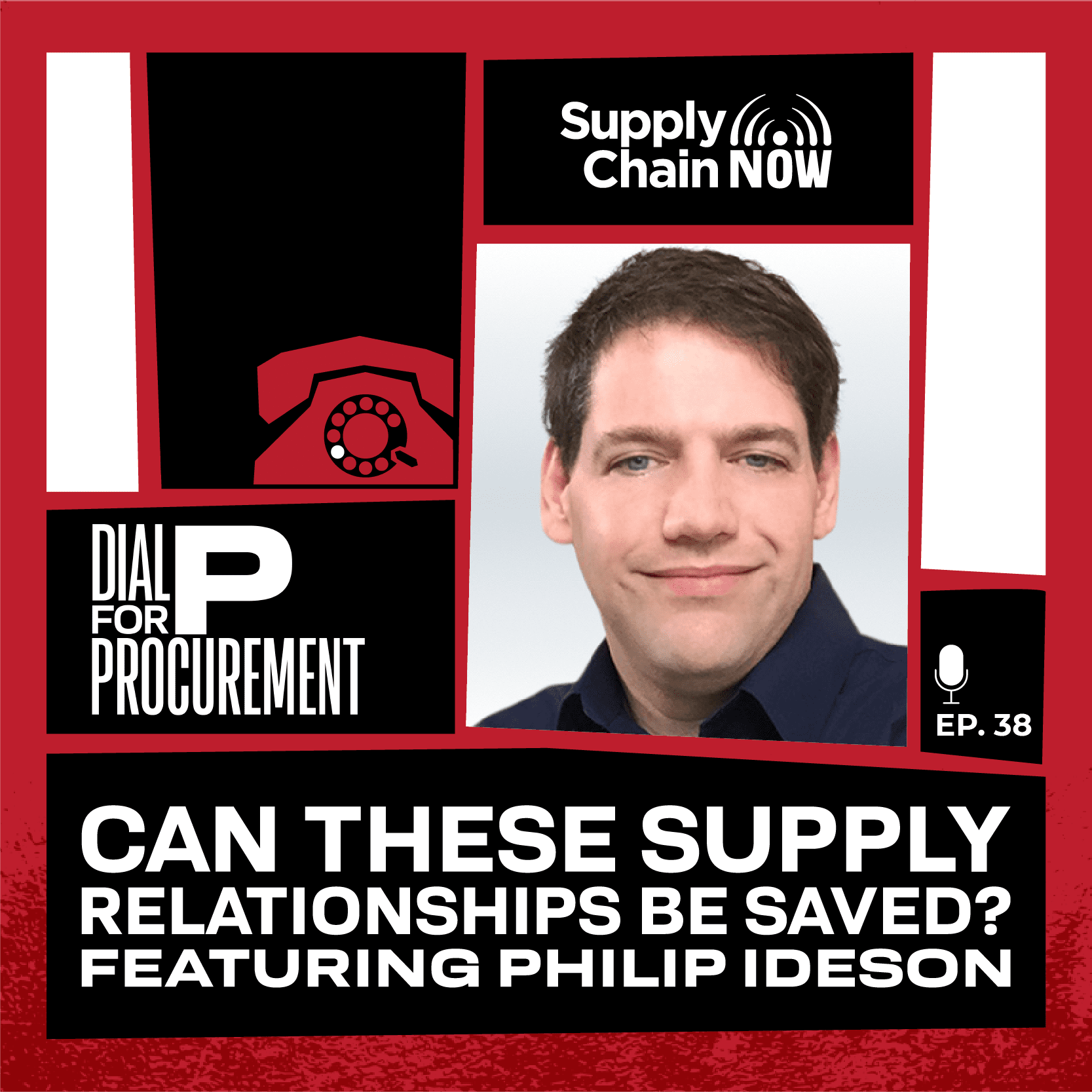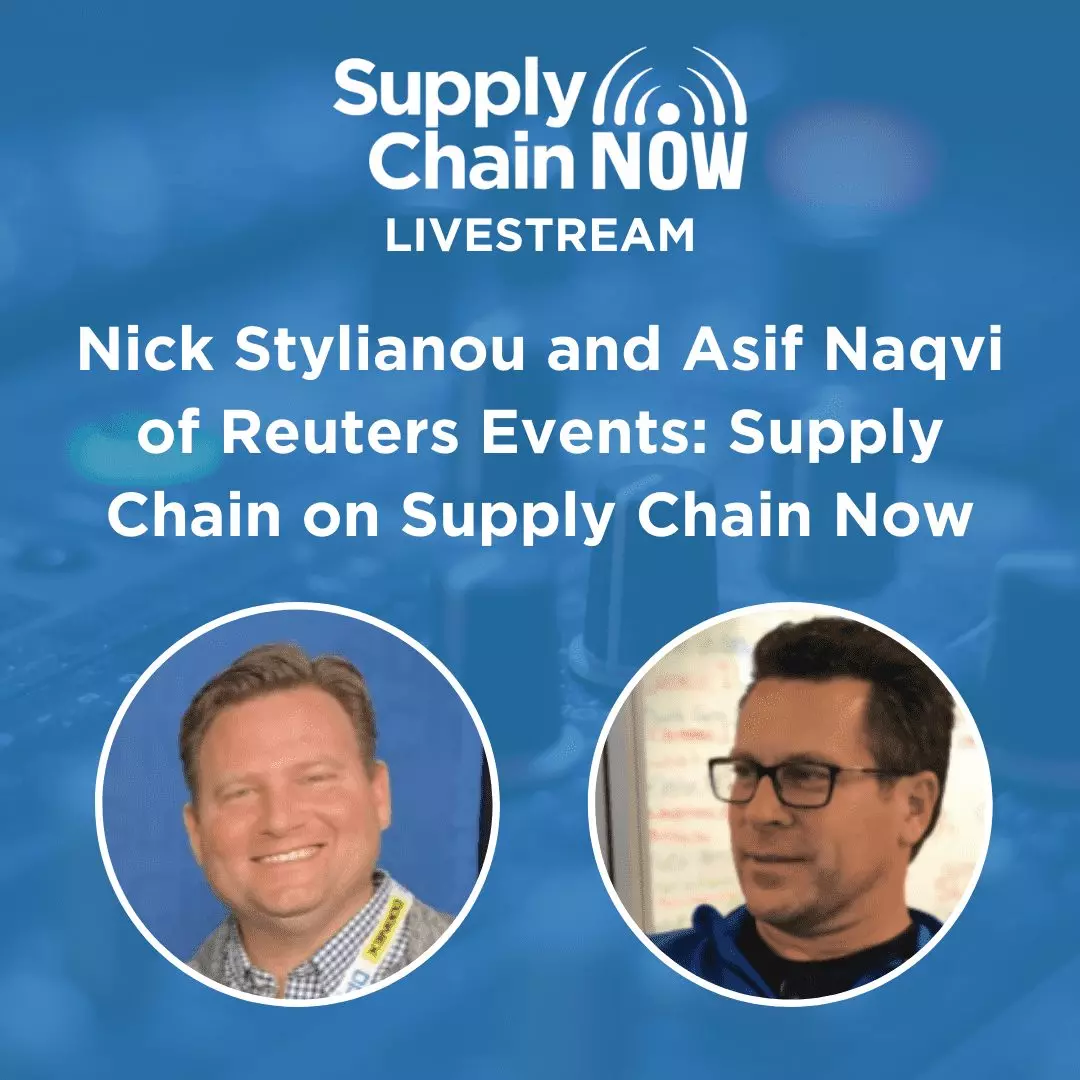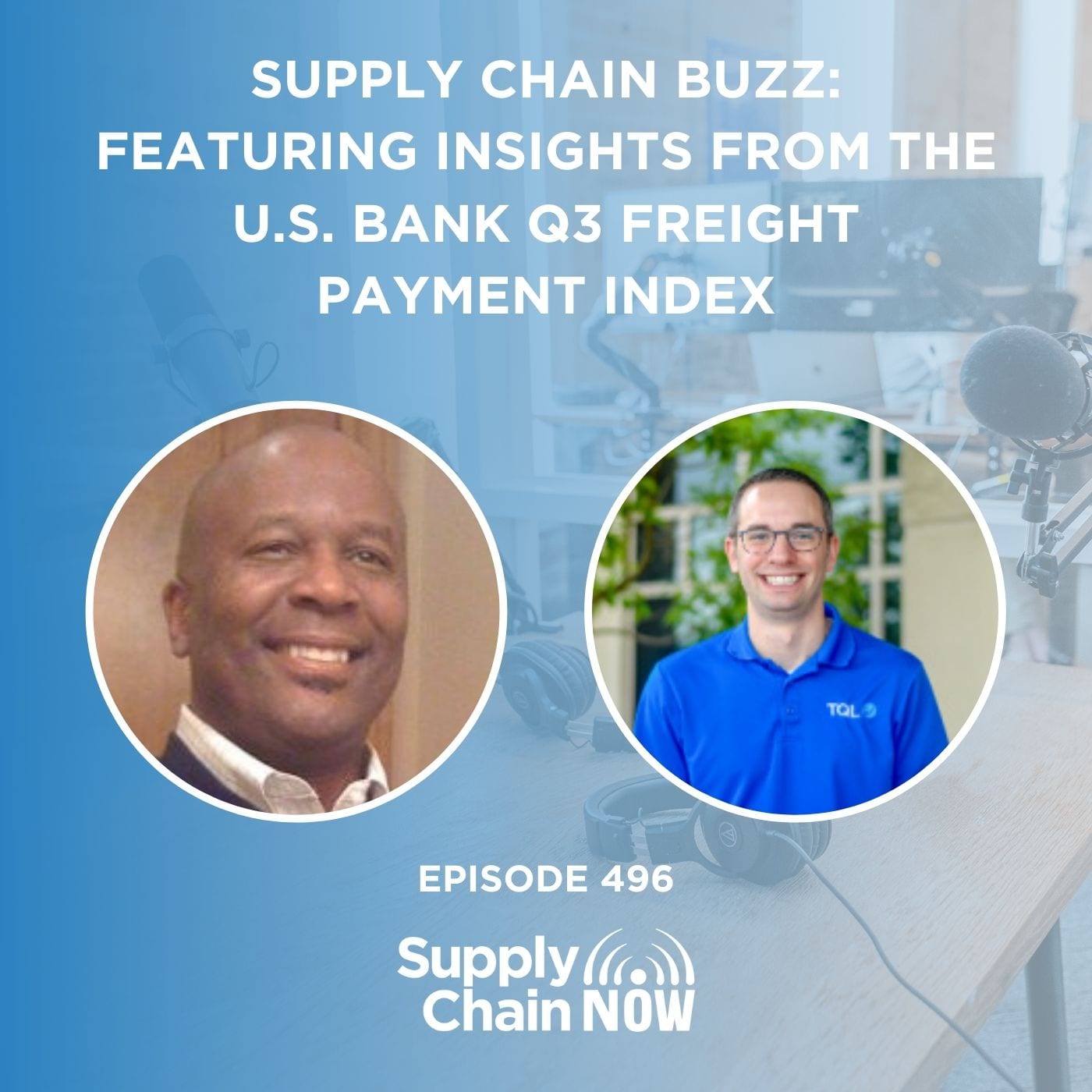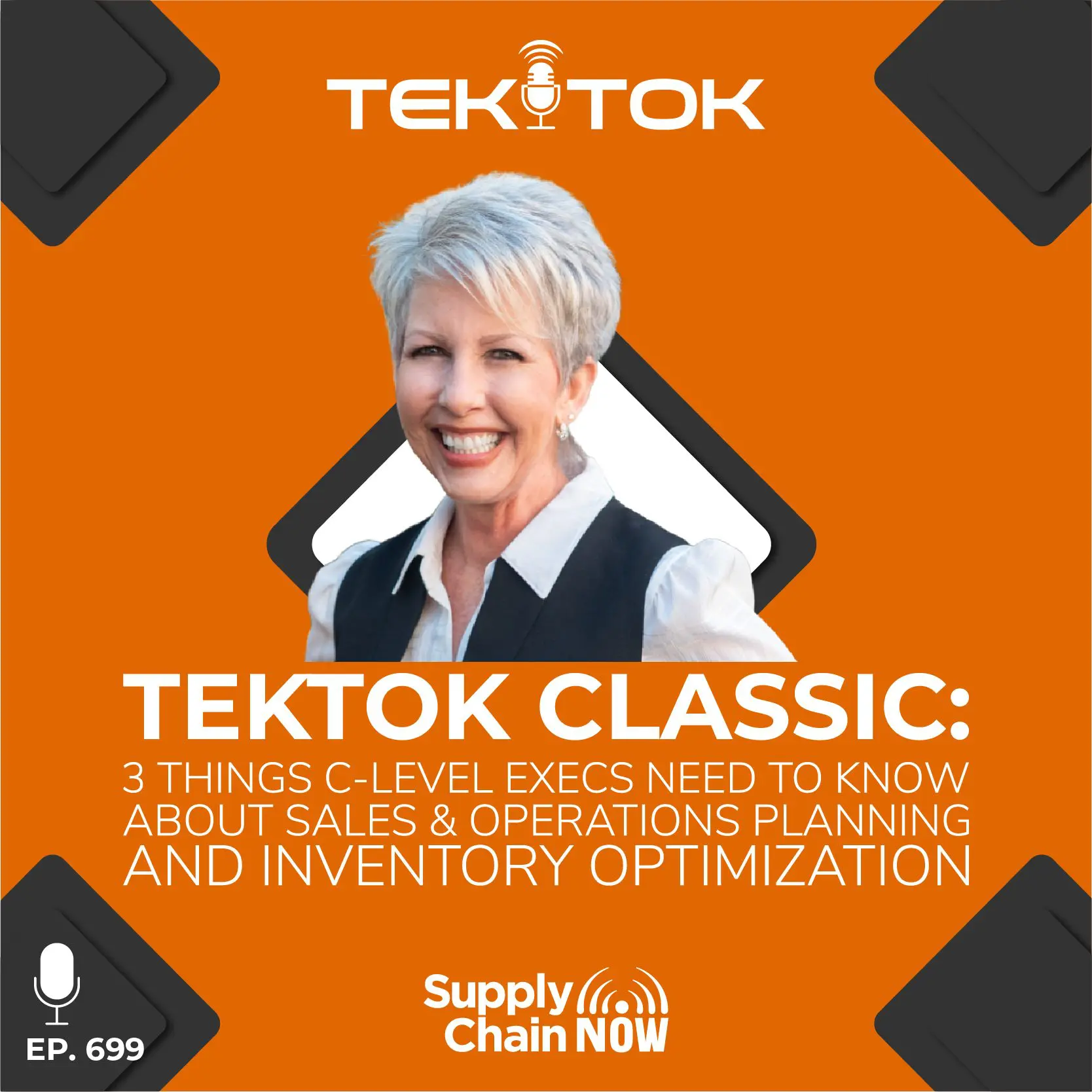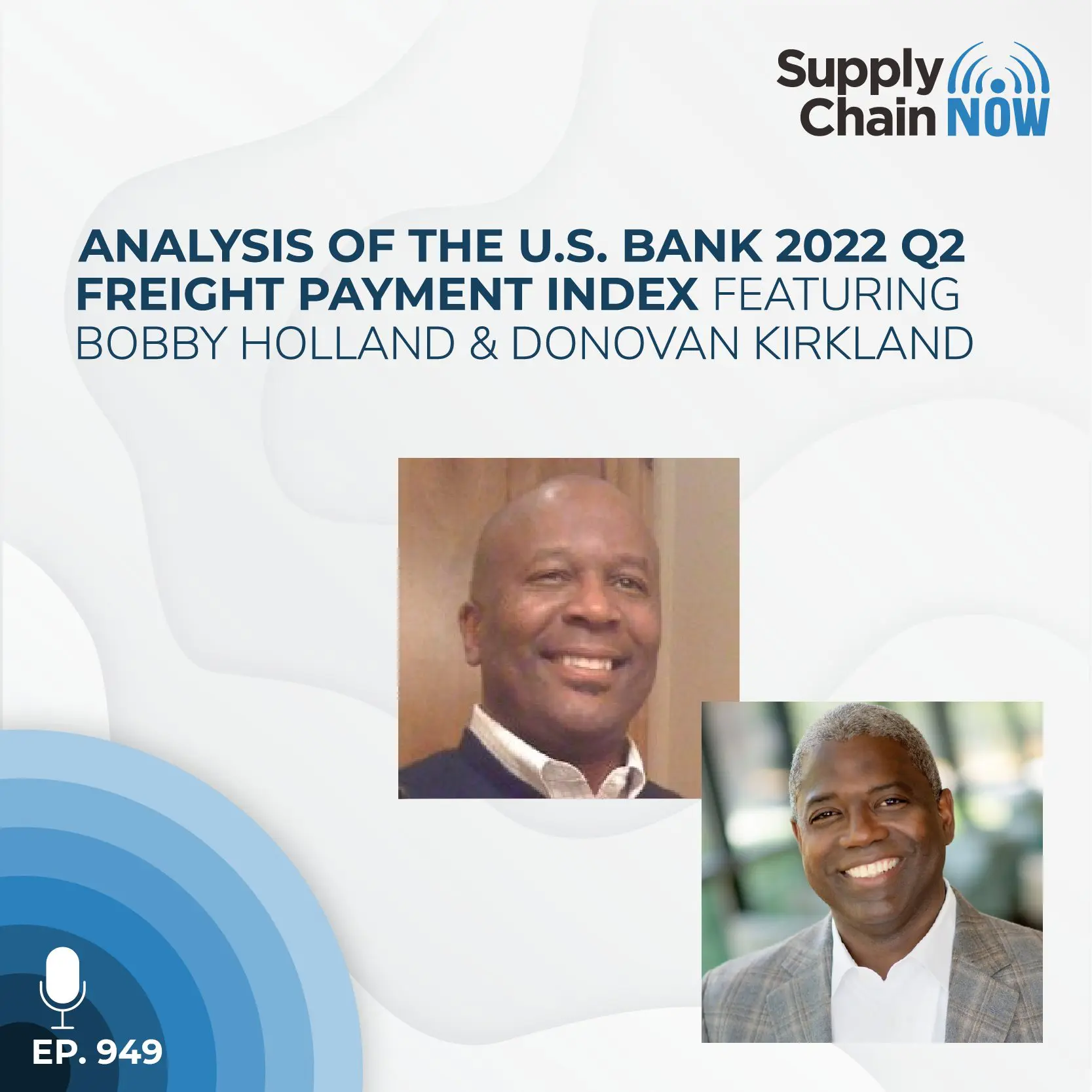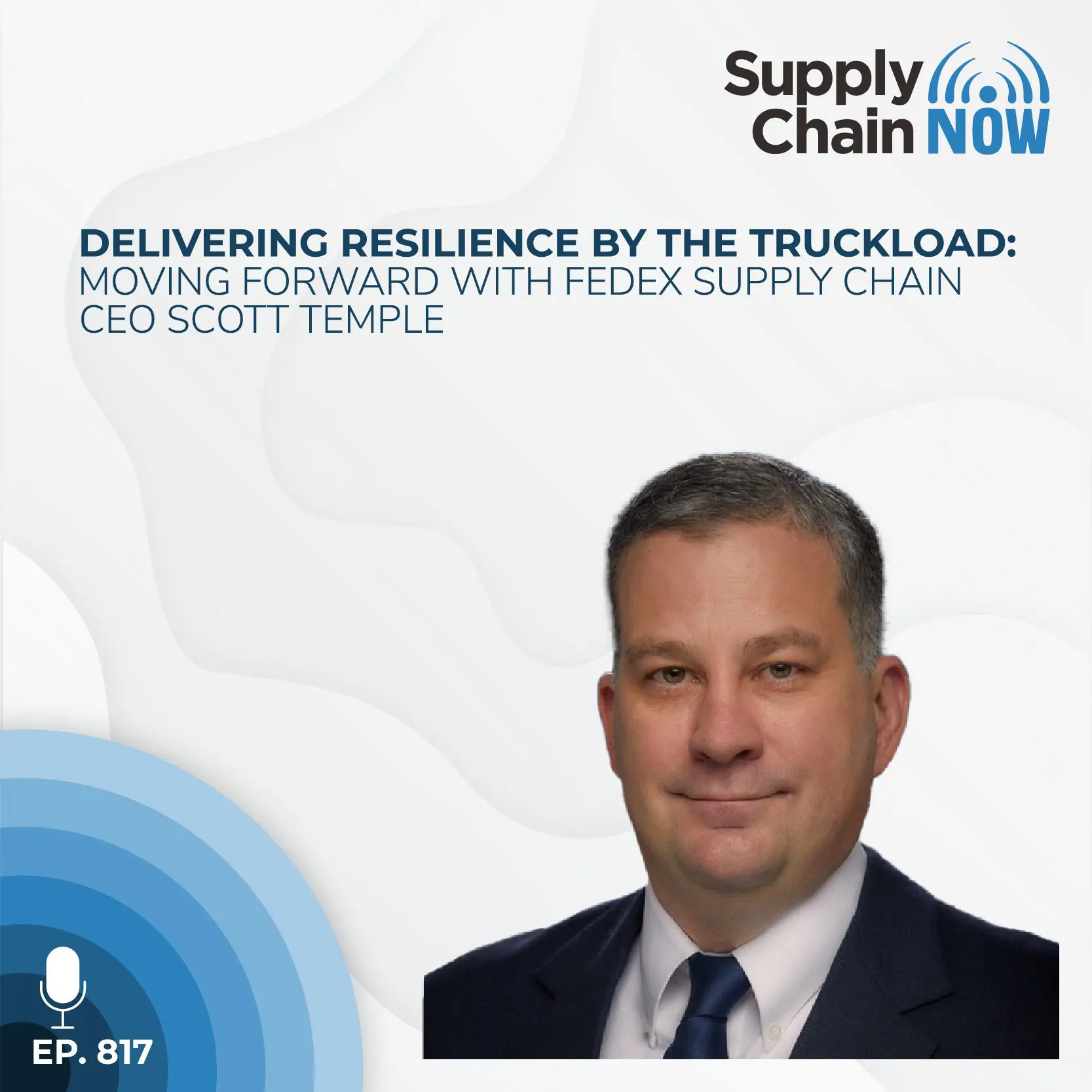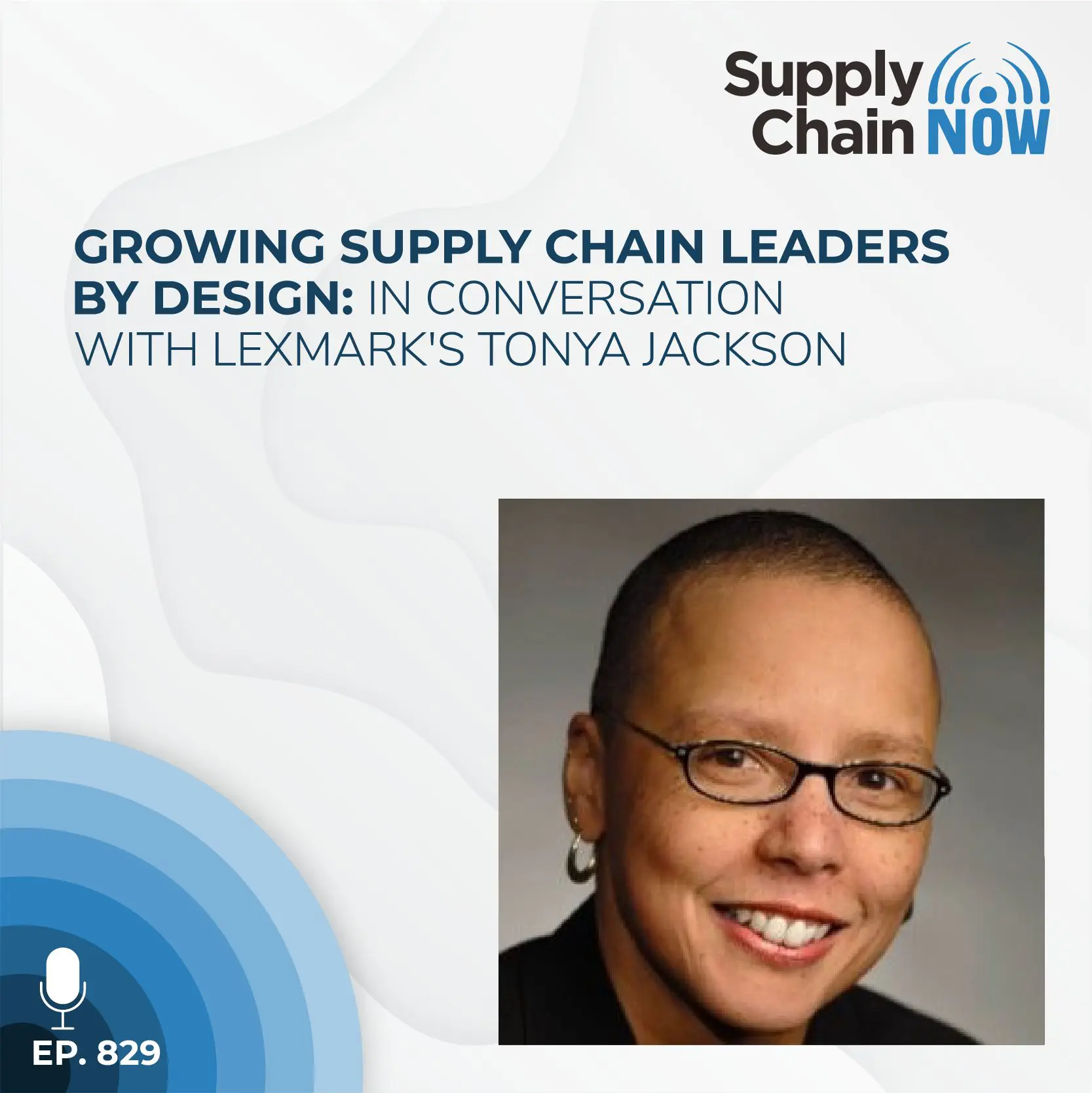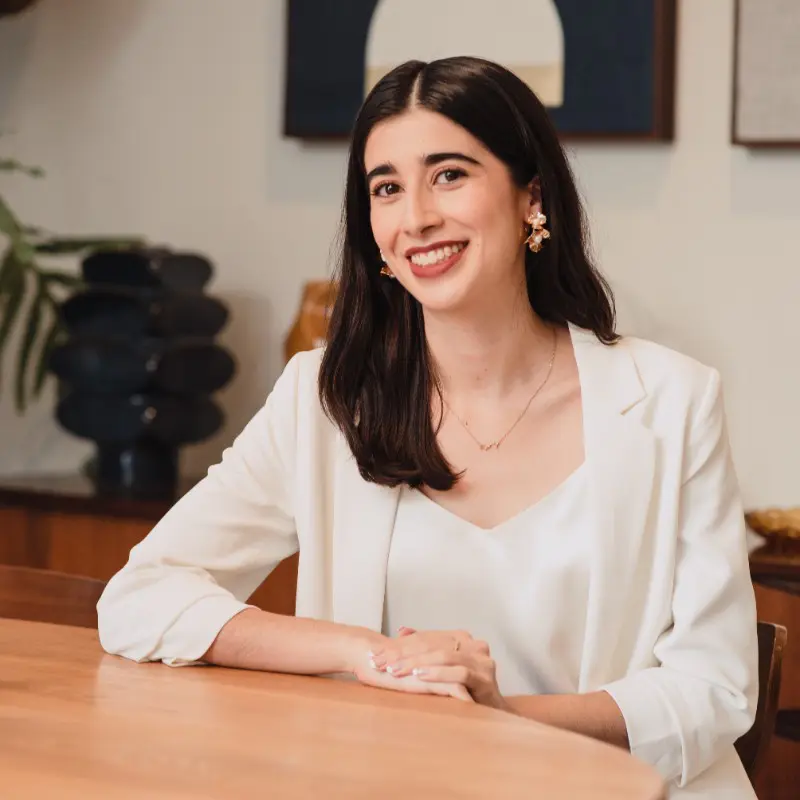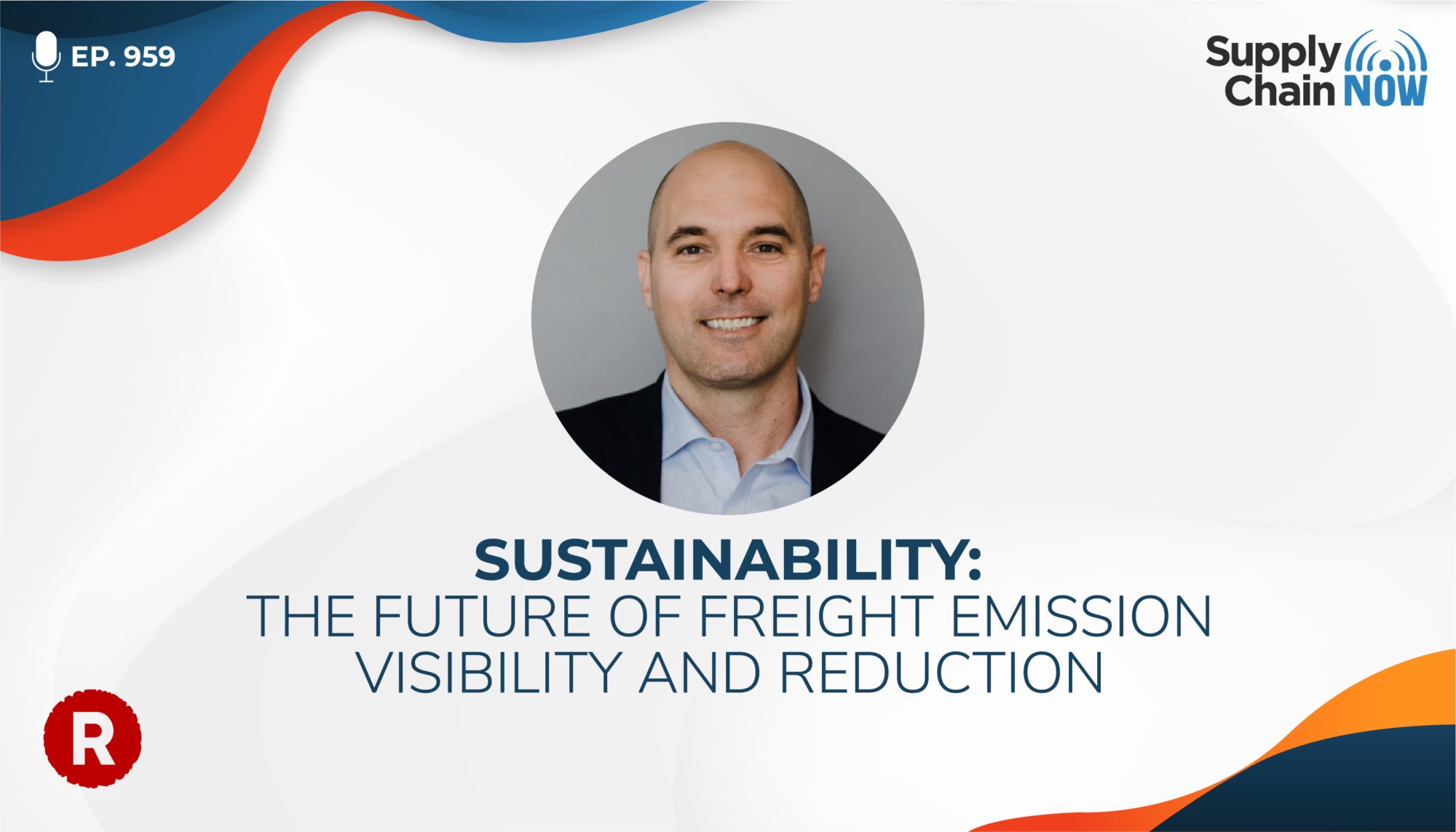
As people start to break down their sustainability goals, they think, ‘Oh my goodness, this is really complex. Where do I even start?’ What we're doing is bringing together data that has to do with all the logistics movements and integrating that whole cycle of opportunity to increase visibility and then look for options to reduce emissions.
- John Rattay, Chief Commercial Officer, Redwood Logistics
Episode Summary
Everyone in the supply chain wants to be more sustainable, but it can be hard to know where to start and which actions will really move the needle.
Redwood Logistics recently announced a sustainability partnership with Cloverly that will bring together flexible access to data powered by the logistics integration platform RedwoodConnect and instant access to action through verified carbon credits via Cloverly.
Shippers can’t act on what they can’t measure. Redwood brings together the power of logistics + technology + sustainability, all in one integrated solution that helps them measure and act.
In this Supply Chain Now livestream episode, Scott Luton and Greg White were joined by Redwood Chief Commercial Officer John Rattay who explained how partners throughout the supply chain can benefit from this collaboration:
• The importance of visibility to achieving sustainability targets
• Improving decision making to strategically allocate the time, effort, energy, and resources invested to achieve a specific impact
• And then once that visibility is achieved, finding the right way to offset carbon emissions
Episode Transcript
Scott Luton (01:20):
Hey, good morning. Good afternoon. Good evening. Wherever you are. Scott Luton and Greg White with you here on supply chain. Now. Welcome to today’s live stream, Gregory. How are we doing?
Greg White (01:30):
We’re doing okay. I can see that using a different camera did not help. So <laugh> we might be little, I might be a little bit Terminator ish today. So <laugh> yeah, island, miss bit towards strikes again. <laugh>
Scott Luton (01:44):
Murphy’s law. I’ll tell you is live and well, uh, especially with live programming, live remote program, but Hey, there’s blue skies ahead. Cause we’re, we’re gonna get it fixed and we’re gonna have Greg in four and full 4d fived metaverse whatever. Very, very soon. And Greg, I see you’ve got your Kansas city. Chief’s uh, apparel ready for the season.
Greg White (02:05):
It’s ready for the season. Yeah, actually first, uh, golly, what is it? The 13th, the, our first, uh, pre-season game against the Chicago bears right in Chicago,
Scott Luton (02:16):
Chicago. All right. No bears, wait. <laugh> one of the best SNL acts skits of all time. Uh, Hey, football is a punish, but today, today, Greg speaking of subjects and important subjects to punish we’re talking sustainability, especially when it comes to moving freight, where are we today? Where are we headed? We’ll be PO all these questions and more to an industry leader that is on the move and is doing a lot of, uh, innovative work in global supply chain. Greg, you ready for this?
Greg White (02:46):
I am ready that we’ve got some interesting connections here.
Scott Luton (02:49):
There is, right. Let’s be the ties up bond.
Greg White (02:52):
Yeah.
Scott Luton (02:54):
Uh, but folks, we’re gonna say hello to a few folks in just a minute. Hey, we want to hear from you too. So, uh, feel free to take some time over the next hour or so. Drop your comments in. We’re glad to have you here. We’re gonna try to work those comments in as we, uh, have our chat with our guest. Uh, and we’d love to hear from you. So speaking of before we bring on our guest, uh, here in just a second, let’s say hello to a few folks, Greg. Hey, one of our old time FAS is back with its Benjamin gold claim. Do you remember Benjamin Greg?
Greg White (03:21):
Wow. Yeah. Uh, yes. Traveling from Texas to New York, Connecticut
Scott Luton (03:28):
Up there. I think <laugh>, I think you’re right. I wanna say Benjamin was a proud product of the UGA supply chain program if, if I’m right Benjamin and he has since moved into supply chain roles, doing big things. So great to have you here with us today, Benjamin, uh,
Greg White (03:45):
Give us your recent history and current location.
Scott Luton (03:48):
That’s right. Uh, gosh, Jonathan, great to have you back, uh, the pride of Louisiana, uh, and doing a lot of good planning work out there in global supply chain. Great to see you, Stephanie, uh, bento via LinkedIn. Good morning. Good afternoon. Hey, let us know Stephanie, where you’re tuned in from we’d love to connect the dots. Remember Tempest Greg from Texas.
Greg White (04:10):
We got a lot of people tuning back in don’t we
Scott Luton (04:13):
That’s right. Do you remember what we asked her about her first name
Greg White (04:16):
Or sounding off? At least maybe they’re always tuned in, but <laugh> sorry. Say that again,
Scott Luton (04:21):
Tempest, uh, named after, uh, Tempest, I wanna say Bledso from the Cosby show. You remember that on an earlier livestream? Really? Yeah. Uh, or,
Greg White (04:31):
Yeah.
Scott Luton (04:32):
Great to have you, uh, back with us Tempest. That
Greg White (04:34):
Was Rudy, right? Tempest was
Scott Luton (04:36):
Rudy. Uh, no temp. Tempus was the middle child. Um, Vanessa, I can’t remember. Gosh,
Greg White (04:45):
The eighties. I bet Tempus can tell us.
Scott Luton (04:47):
<laugh> Vanessa. Amanda weighed in. Thank you, Amanda. Okay. Uh, so that is right. So great to see you Tempus, uh, Catherine of course, Amanda and clay, all part of the production team, helping to make it happen, uh, who is ready to learn about sustainability. Katherine raises her hand. Nice little emoji action there. <laugh> uh, Shelly Phillips is back with us. Good morning from colorful Colorado via LinkedIn. Shelly. Great to have you back. Uh, Mike tuned in from Lufkin, Texas ever been to Lufkin, Texas, Greg,
Greg White (05:15):
I don’t know. I don’t know where it is. <laugh>
Scott Luton (05:18):
That
Greg White (05:18):
Wasn’t, you know, a lot of those states in the Midwest and the Southwest have, you know, they have tons of tiny towns. You go through, get to the town, know if it’s ed or if it’s in <inaudible>
Scott Luton (05:30):
Yep.
Greg White (05:31):
Mike, no, if he is from <inaudible> they’ll know that
Scott Luton (05:35):
<laugh> well, one, so maybe Lufkin wasn’t one of those small towns that we drove the supply chain now van through a couple years back.
Greg White (05:43):
Uh, give us an idea where that is Mike that’s right.
Scott Luton (05:46):
Uh, Mike, great to have you here,
Greg White (05:47):
Right? Google maps. It
Scott Luton (05:49):
<laugh> Steven Bush is back with us ready for Friday. That’s for sure. Hey, your day, day early. Uh, hopefully Friday won’t be late, no late deliver
Greg White (05:58):
Space. Better to be prepared. This is supply chain right? Better to be prepared.
Scott Luton (06:03):
Uh, max rep
Greg White (06:04):
Heidelberg, both the town and the company.
Scott Luton (06:07):
That’s right. Uh, Hey, max is back with us from Mexico via LinkedIn. Great to see you max, uh, looking forward to your take here today. Uh, and finally we can’t hit everybody, but Marlow’s tuned in from Dallas, Texas, uh, and Benjamin is confirming from Georgia to now New York city. How about that Benjamin? Great to have you here today,
Greg White (06:29):
Tomorrow. Yeah.
Scott Luton (06:30):
Uh, so welcome everybody. We were looking forward to your comments about our, our conversation here today. Uh, we got a great one teed up with a great guest. We’ve enjoyed the pre-show conversation. Uh, so Greg with no further ado, uh, I’m gonna welcome in, uh, John rote, chief commercial officer with Redwood logistics, John, how you doing?
John Rattay (06:54):
I’m doing great. How you doing Scott?
Scott Luton (06:56):
Doing great to see you. Great to see you.
Greg White (06:59):
Yeah. Welcome aboard.
Scott Luton (07:00):
We enjoyed our pre-show conversation. You’re in beautiful Arizona. I believe I am, uh, enjoyed talking a little bit of sports, a little bit of supply chain. You name it, uh, in the pre-show, but as we launch this conversation, Greg and John, we’ve got a special holiday to acknowledge, uh, it’s India pale ale day across the globe today who would’ve THK had no idea. Yeah. Um, so I wanna ask you both starting with John, John, what’s your favorite beer or adult beverage as we look to celebrate, you know, do the right thing and celebrate at today’s holiday.
John Rattay (07:34):
I appreciate you giving me a little bit of a heads up in the pre precall on this one. It is it’s 9:00 AM in the morning,
Scott Luton (07:40):
Right?
John Rattay (07:40):
So, uh, it’s not the first thing on my mind, uh, which as we mentioned is a good thing, but, uh, our friend in Europe and, and other time zones might be a little bit more applicable. Um, I, I would say a couple probably come to mind and it may be more location based. Uh, I lived in Chicago for four and a half years.
Scott Luton (07:57):
Nice.
John Rattay (07:58):
Uh, goose island is, uh, is, is a pretty strong brewery. That’s out there, uh, in the, in the heart of Chicago. If you go right around the lake, uh, you have founders, founders has, uh, some pretty strong options from brewery perspective. And then obviously being from Arizona now, uh, four peaks is, is definitely one that, uh, that comes to mind. So gotta, gotta get a little shout out, probably more location based than anything
Scott Luton (08:21):
Out, man. John, I love, uh, Greg, I love how he kind of took us on like a, a brewery tour right there. Huh? All right. So, uh, we’ve got a little bit of a connection issue that happens. That’s alright. Uh, Katherine, let’s drop Greg out of the stream really quick and once we get him back, we’ll bring him back. So, so John, I love the brewery tour. You just took us on, uh, you know, we’ve got a variety of breweries here, uh, in Georgia red hair brewery comes to mind kind of on the, uh, Northwest side of town, uh, Terrapin, uh, in Athens, Georgia, if you ever heard of that one, John. Okay. Yeah. Um, and I’m gonna mess the, the biggest one here. Um, craft beer is right off the connector right off 85. Amanda, you might have to help me out <laugh> um, and, and they will, so, so, uh, I wanna say 4, 1 11, but that’s not it. So we’ll come back to that. It’s still early. It’s early for beer, isn’t it? John
John Rattay (09:17):
It’s early. It is it’s early, but, uh, it’s always good to tie in, uh, an experience in that way to, to something local.
Scott Luton (09:23):
That is right. Wait, Mike aver saves the day four 20. Yes. 4 24 20, uh, Sweetwater, uh, Sweetwater breweries, who I was trying to think of. So thank you very much, Catherine and Michael. Yes. Clay. We’re talking beer and sustainability and supply chain all today. Uh, Sandra, great to have you here from Ghana via LinkedIn, looking forward to your perspective here today. Uh, Cecil’s back, Sohi tuned in from Portsmouth, uh, UK. Great to have you here, sushi. Um, okay. So, uh, John, what I wanna do, uh, we’ve, we’ve covered some of the bases here, right? Uh, we’ve talked beer, right? It’s a big check box. So moving right along. Uh, what I wanna do is, is kind of level set a bit before we get into talking about some big news with, uh, Redwood and Cloverly before we get into, uh, more, uh, the sustainability conversation let’s level set a bit, uh, tell us for the three people that may not know, tell us about Redwood logistics and what the company does kinda in a nutshell.
John Rattay (10:18):
Yeah. I appreciate that. Um, as a look at it, so Redwood is, and I guess as I would describe it, it’s really a technology first supply chain orchestration company. Uh, as, as we look at servicing our customers, it’s really about bringing innovation, uh, into the world of logistics and helping businesses navigate. And we all know the high demand that’s we go through on a day to day basis. Uh, you know, it’s interesting at the end of 2021, Redwood actually celebrated the 20th anniversary as a company. And, uh, I
Scott Luton (10:47):
Would say 20 years in global supply chain tech it’s <laugh>, that’s, that’s something to celebrate, right?
John Rattay (10:54):
It’s a big deal. Yeah. It’s, uh, it’s been fueled by just tremendous growth. Uh, and, uh, you know, now, as we look at what Redwood does, it it’s really about a portfolio of services and solutions that offer flexibility for our customers. Uh, we look at it in a couple of different core segments, move, manage, and innovate. It’s really about digital freight brokerage, flexible freight management, and, and even a bit of logistics consulting powered by an, an entire SaaS platform. We roll all that up into, uh, delivery mechanism that we call LPA, which is logistics platform as a service. It’s been something from a, a brand perspective, uh, that, uh, has really connected with our customers and, uh, and the market that, uh, that we have so excited about where we, where we’ve come from, uh, the history that we have and, uh, and really the, the Swedish services that, uh, that we offer for, for the market today,
Scott Luton (11:41):
Well said. And I wanna go back to, to where you started with that level setting the word orchestration. That’s one of my favorites. It, it always brings an image of a conductor, right. A really experienced conductor and a big old orchestra, which is, you know, that’s a great analogy for global supply chain and just having everybody work, uh, you know, all on the same sheet of music and all playing a symphony together, you know, note for note, uh, that is just a great image for how global supply chain should work. Right, John?
John Rattay (12:12):
Yeah, it’s right. You know, what’s interesting is, uh, in the experiences and engagements that we’ve had. So it’s so critical to meet our customers and partners where they’re at. Uh, we’re gonna talk sustainability, and we’re gonna talk about that path here today and focus in on that, but across all services, uh, each shipper, each partner, each customer that we have has a different set of not only current situations that they’re really looking to move forward in advance, uh, but then also goals and where they want to go. Uh, we feel, uh, that meeting them where they are and being able to, to help in all of those different suite services and really push the technology portion of not just that individual transactional component and how we can digitize together means, uh, means a lot
Scott Luton (12:53):
Digitizing together. I love it. Okay. Lemme take a couple quick comments. Uh, conchen is tuned in via LinkedIn. Great to have you back, uh, via from India. Uh, looking forward to your perspective here today. Look at us, Steven is right on the money he’s sharing URL and he’s helping us connect and all digitized together. So Steven appreciate that. Dr. Ron is back with us three times this week. Rhonda is so good to have you with us. Uh, she, by the way, uh, John is also in Arizona. Uh, she, uh, is a great person to fall on social, always out there, hiking in that beautiful, uh, um, uh, landscape y’all have out there. Yeah. Uh, Jane, I think really appreciated the fact that, uh, clay was, uh, asking us about talking beer, Jane don’t, you know, we gotta talk beer for it. It it’s part of how we deal with global supply chain. Um, alright, so let’s keep driving here. Um, what I wanna get into next, um, is Redwood and, and by the way, congrats again, on 20 years, that’s a, uh, great, uh, accomplishment, especially all the expansion, the growth, how, how, in many ways you’re, you’re changing how business is done, which you kind of alluded to a couple times, um, recently you’ve announced a big partnership with Cloverly. Right. So tell us about this big development, how it all works and perhaps most importantly, what it means for the market, John.
John Rattay (14:09):
Yeah, we are, uh, I appreciate you bringing it up. We’re extremely excited about what this means. Um, so at, at Redwood, we offer a full suite of solutions in this category, uh, and adding this integration and, and really the extended capabilities with Cloverly, it’s just another catalyst for helping our customers to be able to measure and deliver really around their sustainability goals, um, at the highest level at Redwood, uh, and our customers may see this and know this, uh, a little bit more it’s it’s about the Hyperion solution, which is that all encompassing solution to sustainability and, uh, walking that path and really developing a program, uh, with our customers to, to deliver on sustainability goals. If we break that down, the Hyperion segment, uh, there’s really gonna four key areas. So all starts with visibility and that’s getting complete transparency into freight emissions across all modes and across all shipments. Yep. Not just the Redwood ones specifically, but giving a footprint and a platform that can drive that insight to establish visibility and then looking for options to be able to reduce, uh, the carbon footprint, uh, that they actually have.
Scott Luton (15:14):
So kinda assessing the whole, the whole enterprise there.
John Rattay (15:16):
That’s exactly right. And what’s interesting is, uh, and, and we’ll get into this I’m sure a little bit is, is folks get visibility. There’s so many options at their disposal when they work with the right partners. There’s not only about what we’ll talk about from the offset component of it, but there’s also creativity around working with partners, selecting the right carriers, looking for consolidation opportunities, uh, model selection and understanding goals and how they actually align both sustainability to the overall OKRs for a company, all that option. When you, when you actually partner with the right folks, we believe it to be Redwood, uh, gives that plan and that playbook for folks to really execute, kind of take that forward and really in that third, sorry, go ahead.
Scott Luton (15:58):
And, and, and it’s, that’s really critical so that you can measure your progress all right. And make sure you’re, you’re, uh, actually making progress, right, John. Sure.
John Rattay (16:07):
It is, uh, you know, it’s, uh, it’s really about planning the work and working the plan. Mm. Uh, if you don’t know what you’re measured, you don’t know where you wanna go. Uh, it’s difficult to know is the impact that we’re spending time, effort, energy, and resources on actually making the impact. And is it the right impact? Cause it’s a lot of activities that you can actually choose, uh, and being able to get that visibility and then align on what path makes the most sense, short term, medium term and long term becomes part of that, uh, that overall established goal set and, uh, the ability to kind of take those right. Those right next steps.
Scott Luton (16:39):
My seventh grade social studies teacher just made an appearance with that, that cliche you shared, uh, making the plan and, and working the plan. <laugh> yeah. So, uh, alright. So visibility, uh, what was the second one, again, John, as we laid out the four point plan,
John Rattay (16:54):
It’s really about targeting reduction. Okay. Identifying path and, and, uh, different options and solutions to plan reduction. Okay. That third one’s about offset. And this is really where the partnership with Clover league comes in is not only about providing access and driving acceleration to how to measure, create visibility, but then say, what do I do with it? Uh, one of the, the biggest components to being able to take that next step is how do I actually offset it? How do I partner with folks that have a marketplace that can really drive sustainable projects for us to create offset? And the partnership with Cloverly is really that acceleration. It gives access to a marketplace it’s verified projects where shippers can really access direct carbon credits and, uh, and make that exchange. Ultimately <inaudible> API. It calculates in real time, uh, the quality of the carbon emissions that a shipment creates and then takes that next step next step, to be able to, to, uh, uh, deliver a mechanism, be to, to offset it as well.
Scott Luton (17:51):
Okay.
John Rattay (17:52):
That last part, uh, from a program perspective is really about reporting an integration. The interesting piece, uh, about sustainability is the segmentation that can be created, uh, and how folks look to execute, uh, that larger goal and that larger plan. And then the, the myriad of options and solutions that we talked about, but really bringing in. And as we mentioned, how do you measure it? Yep. How do you actually bring that all together, having access to be able to view it, share those successes internally with the, the teams that, uh, are now created around sustainability becomes just as paramount to the actual activity that’s being done when you combine the approach that Redwood is using in the overall Hyperion, integrate that with platforms like Redwood connect, right. To be able to integrate the information between all those parties. It really becomes a, a powerful tool,
Scott Luton (18:38):
You know, on that last one, uh, uh, reporting and integration, two of, uh, when it comes to sustainability, one of the biggest challenges and weaknesses is that reporting and, and transparency and, and really are you making progress going back to a, a point John made earlier, and then secondly, with all the different technologies out there, integration just in general, it’s sustainability and beyond integration is, is an ongoing challenge. Um, just, uh, you know, for, for every supply chain practitioner, especially as you’re implementing new technologies that maybe certain numbers of the team are, are a bit unfamiliar with. Uh, so I love that four step plan. Um, lemme take a couple quick comments, uh, John and folks wanna hear from you, uh, let us know what you’re hearing, you know, your take on, uh, what John is sharing or your thoughts in general when it comes to sustainability, uh, in, uh, supply chain, uh, backing up a little bit here, we have got, uh, uh, Alexander is tuned in via LinkedIn. Hey, let us know where you’re tuned in from sometimes the flag that it, um, the flag via LinkedIn, the emojis don’t always translate via comments. So let us know where you’re tuned in from great to have you here, Russ, uh, Russ. Great to have you back, uh, and enjoyed your comments on our previous, um, live streams tuned in via LinkedIn from London, John ever been to London.
John Rattay (19:52):
I have actually, uh, I took a, uh, an expat assignment for two years and lived in Glasgow, Scotland. So nice was a frequent, I didn’t wanna get into that in terms of our, our earlier conversation, but, uh, there’s plenty of options out there as well.
Scott Luton (20:07):
Well, uh, you know, I gotta you say Scotland. I gotta you’re, you’re quite the athlete. I bet you got in a couple nice rounds of golf while you were there.
John Rattay (20:15):
Uh, I got, I got a few and, uh, and also in the midst of those rounds, frustrated a few caddies as well. <laugh> so apparently my game and, uh, the courses, uh, don’t don’t don’t, uh, exactly mix
Scott Luton (20:27):
Out there. Hey, spirits, John kindred spirits. Uh, alright. Uh, Melanie, great to have you here, uh, with us via LinkedIn, uh, weighing in on a couple different things, uh, focusing on scope three in our new role problem with calculating, uh, CO2 is the internal data of shipping terms, modes, country awards, and all that good stuff. Little visibility on that excellent point, Melanie, we were just talking about that a second ago. It’s great to have you here looking forward to your perspective, Dr. Rhonda, thank you. I thought yesterday’s, uh, session with Mike Griswold and Gartner was a great one. Uh, Murphy’s law was with us again, but, uh, eight, if it’s great to have Mike, at least in, in, uh, with ya audibly, even if you can’t always have 3d 40, uh, John, sometimes that happens Muhammad tuned in from Oman via LinkedIn. Great to see you here, Moham, let us know what you’re, uh, thinking as we tackle sustainability and supply chain visibility and how the two, uh, mesh together so critically and Hugh, great to have you back. Um, great. You know, I bet your work has taken you everywhere, but some of our live streams, so great to have you here. Always an interesting broadcast. Okay. Y’all keep weighing in. We’re gonna try to get to as many of these as we can. I think John, I think we might just have the one and only Greg EB white back with us. Let’s swoosh Greg in if we can. All
Scott Luton (21:46):
Right.
Scott Luton (21:50):
Hey, Hey Greg.
Greg White (21:52):
I don’t know what to do with my hands <laugh>
Scott Luton (21:57):
Oh man, you were wild ride
Greg White (22:00):
Courtesy of your local, uh, cable company. So we, we asked for an upgrade to gig speed. I think they just sent it so
Scott Luton (22:11):
<laugh>
Greg White (22:13):
Don’t schedule it. That’s right. It just comes. So we’ll see any faster
Scott Luton (22:19):
<laugh> I think you’re better. You’re better. And it’s great to have you back. I’ll tell you we’ve tackled a lot on the front end thus far with John. Uh, he’s been, but I missed
Greg White (22:26):
John.
Scott Luton (22:27):
John, give us the whole thing in, in 30 seconds. Yeah. 30 seconds. 32nd run ball. <laugh> yeah, a good old Chris Berman, uh, throwback. Uh, he had just, we just dove into Greg, uh, Redwood’s fascinating partnership with Cloverly and what it means for the market. Uh, John kind of took us through a, a forced for, uh, item framework there. Um, and you know, John really quick, I wanna get back to talking sustainability with you in just a second, but Greg, you’re familiar with Cloverly mm-hmm <affirmative> weigh in on, on, you know, what the company’s doing and maybe what you see between Redwood and Cloverly here.
Greg White (23:03):
Yeah. I mean, I think what’s great about what Redwood is doing with Cloverly is it’s a third party validation of the goodness that you’re doing, John, you mentioned in the pre-show that a lot of companies are building their own reporting mechanism. Right. There’s a lot of potential for self interest there. I think long term you’ve done the right thing because I think long term, the industry won’t accept self certification, right? Yeah. PhD, by the way, uh, just to turn that myself. Yeah. Um, so I, I think that’s the important thing to do and what Cloverly is doing, John probably shared some of this is, is finding carbon offsets and that is the most difficult part of the entire process is to find them. So they’re consolidating all the people that are creating these carbon offsets by planting trees and eliminating waste and all of these other things, and then giving people a central place to go to, to be able to offer these I’ve actually, I, I don’t know exactly what e-commerce site, but I was talking to Jason Reba, the CEO of Cloverly the other day. And he said, yeah, when you bought that 16 cent or whatever, it was 25 cent for a consumer carbon offset that went through us. So I think that’s, you know, that enablement so that we can all contribute, we all want to is, uh, is really powerful.
Scott Luton (24:27):
Uh, coincidental. I’ll tell you, it’s amazing how things works. The world gets a lot smaller, John. Uh, the offsetting was number three in terms of the four point framework, uh, comment on that really quick, and then we’re gonna move into, um, you know, sustainability programs.
John Rattay (24:46):
Yeah. I mean,
Scott Luton (24:47):
It’s difficult to find the different ways offset, which is, you know, what Greg was just sharing, right, John.
John Rattay (24:51):
Yeah, it is. And, and uh, I think one of the, the key parts is, is the visibility aspect of it. You think about sustainability programs. Uh, the first thing that folks think about is here’s my goals. And then as they start to break down how to get to those goals, they just think, oh my goodness, this is really complex. Where do I even start? What do I do first? Ah, really what we’re looking at doing is bringing together this information and data that has to do with all the logistics movements across and integrating that whole cycle of opportunity to not only get visibility to it, then look for options to be able to reduce it. And then, and then also offset it. And that really completes that cycle and provides a plan for folks to say, I have the goal. Here’s how I can actually take a first step to be able to get there partnerships like this become so critical in being able to round that out. Cuz as folks look at a program, they say, if I can only get to here, then where do I go next? And how do I invest in that next? And Greg, to your point is what I’m doing, gonna be validated by external parties and, and other components. Cause I don’t wanna take those steps without actually having that, that right understanding. And what does that investment mean? This really creates that circle and uh, of influence and, and really closes the, the chapter and helps to really accelerate the programs and where they go. Hmm.
Greg White (26:04):
Yeah, I agree. And your team, as it turns out, John I’m guessing have day jobs. So also finding offsets right. And consolidating all of those into usable, uh, information is, you know, a usable network is that’s an additional part of your job or business that you don’t really wanna have a division for
Scott Luton (26:23):
Sure.
Greg White (26:23):
That’s right. So it provides a lot of leverage from that standpoint. Mm-hmm
Scott Luton (26:27):
<affirmative> um, really quick, uh, hu is tuned in now from North Carolina, you re relocated from Vermont hu getting closer, getting closer to, uh, Atlanta, our home base. Uh, and yes, swoosh is a technical term, uh, highly technical term here in industry. Um, alright, so John, you just touched on, uh, those initial steps of getting started, you know, how can, you know, the easiest way to get started for a shipper, uh, adopting a sustainability program? Um, anything else you want to add there to folks maybe listening and kind of, kind of asking themselves, where do I get started? You know, how can we, how can we do this the easy way John, anything else to add?
John Rattay (27:05):
Yeah, look, it’s a big focus for, for what we’re doing here at Redwood and, and also, uh, in the partnerships and, and that’s really, um, apparent in terms of, uh, the, the attention and investment that, that we’re making here. We, we want it to be something that, um, creates that path, uh, for our customers to be able to really drive change. Uh, we talked a lot about this and it’s, it’s probably the, uh, it’ll be the, the quote unquote easy button for folks as they come out of this. But it all starts with visibility, getting data that’s actionable understanding what that data actually means. So you can actually have a starting point is so critical and then being able to integrate that into whatever program plan that is critical, having that footprint and understanding that it’s the most digestible way to really get buy in for whatever program and options that you want. And then partnering with folks like Redwood that have that optionality that can actually establish different ways, leveraging that data, not only about the offset, but then actually in the, in your logistics and supply chain. I think there’s a, a really unique mix there.
Scott Luton (28:03):
So you mentioned the word buy in. Let’s talk about that for a second. Cause you know, yeah. Talk about, uh, the importance of really clear transparency, sustainability goals from all parties that may you know, that that’s part of the supply chain ecosystem. Yeah.
John Rattay (28:17):
There’s nothing more important and there’s absolutely nothing more important, right? Having clarity around goals, uh, for, for not only the internal organization, but how partners have an influence into that, uh, how far you can actually go and where that data actually looks. We talked about a little bit earlier if we don’t know what good looks like, we don’t know where we want to go. How do we know when we get there? Right? And if we are ahead of our, our goal or, or, or if we even even surpassed it and where do we go next? Um, if we claim to be making progress as a partnership, how do you measure it? Uh, and what are the participants, uh, what can they bring to the table to be a part of that? Uh, and what’s interesting is if you think about in supply chain, we’re constantly balancing the day to day demands with this overarching, many of OKRs, uh, and goals that, that are associated to it.
John Rattay (29:05):
Uh, I remember having a conversation with a supply chain director. This was not about sustainability, but it was just asking, Hey, how did you build your supply chain? How did you locate things? And he goes, frankly, uh, it was a series of continued asks and demands that just kept piling on it to my team’s credit. We just kept delivering. And that’s what you see today. But now that we have the data, now we want to go back and actually take the right steps to create resilience and, and actually apply it. Same thing as in sustainability, you gotta get a footprint for where you actually stand and then have a goal to be able to say, here’s where we want to go. Those two things come hand in hand, right. Just having the goal without that information or having all the information, understanding those goals, those two things, uh, really need to, to, to pull together to be, to be effective.
Scott Luton (29:50):
All right. So Greg, I’m gonna get you to weigh in, uh, uh, John covered a lot, uh, there and offered a lot of, uh, I think, uh, interesting insights into some of the back, uh, behind the scenes conversations, Greg, your take.
Greg White (30:02):
Yeah. I think, you know, John, you speak to a common conflict that people have. They’ve got all this data and they had no idea to do what to do with it. Right. Um, we talk about big data. Uh, sometimes it’s really just medium data. It’s not that big. Um, but whatever, you know, nonetheless, it’s more data than most people have had in their history. And they’re trying to find a job for it. I think working back from the goals, what do we wanna accomplish? How does, what segment of data that we have fit into that this is useful, doesn’t useful for maybe for another goal. So think starting with those goals and working back into how to apply the data is the absolute right way to go.
Scott Luton (30:46):
Well said. Um, alright, lemme share a couple quick comments and, and John, we’re gonna, we’re gonna dive a little bit deeper into what Redwood offers kinds of competitive advantage, uh, clay I’m with you. Thanks for being here. Old diesel. Cause the engine always, uh, is never stops. Uh, John, it’s a great see our body’s, uh, viewership numbers here today. Folks could do care about sustainability and we’ve got to right. We have a responsibility as an industry, um, or they all came to see John rote clay that, that factors in as well, I believe, uh, Byron, great to see you here via Texas. Uh, enjoyed your comments yesterday. The one only Kim winner from Dubai is here with us sustainability. He says to the four here as he’s MCing, uh, the first, uh, G C C U. That’s a, that’s a big old acronym, the ESG event, uh, October, October 20th. So Kim, great to see you here. Uh, and finally, one last comment and James, I’ll see your question. We’ll try to get to that question, uh, a little later on, but uh, cm says true. What does good look like that? The simple questions are the best questions so well said, uh, cm. Okay. So John, and by the way, Greg, I wrote down that medium, uh, data, I’m gonna completely steal that from you soon. <laugh> um,
Greg White (31:57):
Well, okay then if you’re gonna do that, then I have to confess that I stole it from the CEO of a company that I worked with. I talked to yesterday, so
Scott Luton (32:07):
I love it. Um, alright. So John Redwood is a unique company. Yep. Uh, especially to have carbon emission software and serve as a logistics service provider. Talk about that competitive edge, uh, that everyone’s looking for. New competitive edge, old competitive edge. You name it. Talk about what Redwood offers there.
John Rattay (32:25):
Yeah. We believe it’s a, it’s a strong, competitive advantage, uh, when, and, and it’s really backed up by the interactions that we’ve had with, uh, both new prospects and, and current customers in terms of where they want to go. Uh, you know, as, as the, the macro environment really thinks about being greener, uh, there’s a lot of folks that from a supply chain perspective, firmly believe we have an opportunity to lead the way. Uh, it seems complex and, you know, we’re, we’re really looking to change that. And a lot of what we talked about today builds the foundation for, uh, for those, those partnerships to take those right steps. And, and really, if you look at the overall perspective of Redwood in that LPA, it’s about tying together the digital and the physical footprint and the aspects of what supply chain actually means and all sorts of elements, including sustainability and allow customers to have access to that information and an open ecosystem to be able to make sure that we’re delivering, uh, associated with them truly, really be an extension of, of what they’re looking to do.
John Rattay (33:22):
And addition to what we’re talking about here about data, uh, Redwood is active in formalizing and really accelerating, uh, a current managed services offering that we are coining Redwood eco advisory umbrella that will fit under this Hyperion that also will guide shippers in their supply chain goals. And look for those efficiencies that can be measurable not only in the emission side, but also look to reduce freight costs as part of it. It doesn’t need, as we look at it, it doesn’t need to be a one or the other by leveraging that information in data. And with this eco advisory, something that we believe can, can really go hand in hand. Yep.
Scott Luton (33:58):
Uh, gosh. So to dive into, and we’re about halfway through our conversation, Greg, uh, when it comes to conf uh, competitive advantage, right. And what John shared there, what really stood out, uh, to your ears.
Greg White (34:10):
Well, the, you know, the rule of the day for sustainability or supply chain transparency or visibility or whatever you wanna call it is it is transparency is being able to see into, and through your supply chain to understand who’s performing well, regardless of what the metric is, who, who isn’t right. Who’s a good actor who ain’t, um, and, you know, and understand who you do this with and to make judgment, not just with near four walls, cause now public companies, they’re responsible for the sustainability efforts of not just themselves, but also everyone that they do business with. And they have to have both visibility into it and a plan and then rate their execution, uh, against that plan to, uh, you know, as they report to the S E C to FINRA and others so that people can establish the risk that is, is, uh, apparent or, or is present in their supply chain finally. Right. We got what we asked for guys, finally, the world knows what supply chain is, knows how important it is to the business, but now we are going to have to establish the transparency that they have in sales and that they have in marketing and that they have in finance and other core aspects of the business. So, um, it’s critical to have, have initiatives like this, to be able to understand their, you stand,
John Rattay (35:39):
You know, I’d, I’d add on. And, and I, uh, it probably falls into the bucket of a competitive advantage, but just to layer onto that point, Greg is, you know, when, when we think about the approach and what we’ve put together, it’s really based on technology. Uh, we have a, a solution, a platform solution called Redwood connect. Uh, it’s, it’s an integration platform that’s built for logistics teams, and it’s really about bringing together disparate systems, carriers, solutions, applications, and helping that information streamline in between and what you think about and what you talk about there is taking this information from supply chain and integrating that into an overall company’s perspective becomes so critical. And that integration is really a competitive advantage cuz creating individual silos as you execute, all of these becomes just another operational pillar that doesn’t share in that macro and understand from the goals, how do we adjust Mo more appropriately? What’s moving first, further than we think. And, and not we believe that to be a real competitive advantage around the integration, being able to take this data complete the cycle that we talk about and really push that back and integrate that back into a company system.
Scott Luton (36:44):
Good stuff, good stuff. Um, want share a couple, uh, comments here. Mohe is with us from the air capital of the world, Wichita, Kansas. Great to see you, uh, Mohe, uh, and T-square
Greg White (36:54):
Time for him to get back to class <laugh>
Scott Luton (36:56):
Right, right. Uh, T squared who holds down Fort the Fort force, uh, on YouTube says this is good, good, good nourishment in the parlance and digging the prize T squared came up with a trivia answer not too long ago and we, we got it. Finally. Finally, yes. Our prize supply chain was letting us down a little bit. Uh, but we made that connection. Okay. So John, uh, Redwood, uh, quite an innovative 20 years to date and it sounds like the next 20 is gonna be, uh, as, uh, as innovative, uh, looking to change the game, um, and, and bolt more and more services as you expand the comp uh, competitive advantage that the company offers your customers. So break out, uh, break out your eight ball, right? The old toy that we’ve played with in the eighties or your crystal ball, if yours is still working, I don’t know. Mine, mine has really been shaky. What did the next few years look like? Uh, when it comes to freight emissions management job?
John Rattay (37:54):
Whew. Uh, that’s a great question. Um, I think there’s a couple things that come to my mind and Greg, you hit on it before. I think customer demand will increase. I think the insight and transparency, the direct discussions that folks will have, whether it’s B2B, B2C, it’s gonna increase. Uh, and that’s gonna really create, uh, an opportunity for companies to, uh, to, to really move ahead. I think, I think that one comes to, to my mind first, uh, Greg, you mentioned this before, we’re seeing more regulations that are coming up mm-hmm <affirmative> uh, so, uh, call that carrot and a stick, maybe the balance between, between those two, uh, but change is, is definitely coming. Investment is coming and, uh, and I think in that investment, it’s gonna be interesting. We saw this in supply chain earlier. Uh, we’re now seeing, uh, C level folks with, with supply chain titles because they’re now getting a seat at the table. And the strategy as sustainability, I think is very soon, if not already, part of those conversations is gonna continue to get more and more investment. You see people hired in, uh, to top level organizations. So I, I think all of those things combined is really gonna create an environment that, uh, we’re gonna see a lot of change and, you know, you’re already seeing companies come out and put out those lofty goals about being net neutral and you know, net zero and 10, 15, 20 years and, uh, and starting to move, move forward. Mm.
Scott Luton (39:11):
You know, uh, it’s certainly better to digitize together with your partners, uh, borrowing your phrase from earlier, and I’ll tell you in these days, uh, evermore, um, and it’ll be even more important movement moving forward, but that integration orchestration piece, uh, as we’re leveraging a, a wide array of technologies to make supply chain happen, absolute critical. Uh, and Greg that’s where before we, um, we offer up a resource, uh, from John and the Redwood team way in, on, uh, on what you just heard there from John and, uh, the critical elements that will be part of the next 20 years, uh, that, that the Redwood team will, will be experiencing.
Greg White (39:51):
Yeah. The whole world will be experiencing, right. I mean, I think, um, that, which is a com I would say, jump in now while all this integration, while all this transparency is a competitive advantage, because it will become table stakes in the very near future, as the regulations come in, as consumers demand it more and more, you’re either gonna have to have it or be left out. Um, so while you can still get some competitive advantage from it yeah. Do it. And, and then you’re that much farther ahead of the game in, in terms of maturity curve, when it becomes table stakes, which it inevitably will, all of these kind of developments eventually do. So, um, there, there’s a, there’s a very, uh, concise window in which you can actually take advantage and actually make profit from it. And then you’re avoiding being left out in the cold in five to 10 years, whenever this just becomes part of the game
Scott Luton (40:52):
First mover or early mover advantage, uh, in many ways mm-hmm <affirmative> Greg. Okay. Uh, Mohe is busy with research. That’s why he’s been missing here. Well, Hey, it’s great that, that you snuck in and took this conversation and he has great thoughts and POV from John and Redwood team and yes, clay, uh, although I stole that John heavily, uh, influenced my poetry certainly better to digitize together, almost flows right off the tongue. There you go. Yeah. Um, <laugh> all right. So, uh, John, we definitely want, there’s a lot of different resources as you’ve already laid out and, and a lot we can’t get to here today that Redwood team has, we definitely want to drop the sustainability kinda landing page, uh, for folks to learn more specifically about that topic and what Redwood’s doing. So, so team Catherine, Amanda, if we can drop that, uh, in the, uh, comments, that’d be great.
Scott Luton (41:40):
That’d be good. And as we start to kind of come down to homes stretch here, I wanna shift gears a little bit, uh, John, and bring something up, uh, that, uh, we’ve talked about here quite a bit, Greg, uh, and that is, uh, Redwood’s commitment to the veterans community. Yeah. Um, I was really, uh, honored to be a part of this veterans and logistics event, which I think this was a third year in a row that Redwood has, uh, invested in this, uh, critical type of programming had a blast. Uh, Steve, uh, uh, yeah, Steve rose was my kind of MC partner. Yeah. Steve, Steve is like the John Wayne of supply chain. I love it. Um, he really is no nonsense. He, he shared some great experiences from his time transitioning, uh, as a Marine, a Marine veteran into supply chain and kind of how, what, how he approached that, uh, we had, uh, a variety of great speakers. Uh, but, but from what you have been able to see or be a part of, or hear the Redwood team talk about any key takeaways from that event, uh, just a week or two ago,
John Rattay (42:39):
Yeah. Event was, uh, uh, it was meaningful for me and appreciate, uh, you being a part of it and, and working with our folks. Uh, it’s great to hear from Steve and, and Carlos and, uh, you know, one of the, one of the big things that, uh, that came out for me was just the importance of resources. They talked a lot about resources that are available to them in the short term, uh, whether it be internally at, at, at certain companies and, and where, where the position is, and then also externally how much access to data and information that’s out there. I, I, uh, I thought that was just a, an incredible message and, and one that, you know, even kind of, uh, dove into to me as well. And, you know, it’s, uh, there’s a ton of investment that’s been done by Redwood. It’s something that, uh, Redwood university, I think Steve brought up yep.
John Rattay (43:21):
On the time there and the advancement that that’s been done, not only just about product knowledge or information about these different categories, move, manage to innovate or sustainability, but really kinda looking at broadening their horizon and just educating folks. There’s so much in this industry to learn, uh, folks that, you know, dive in, uh, that don’t ever leave, right. As, as we all have, uh, have, uh, you know, really grasped that education component because it’s ever changing, it’s a lot of fun and, you know, really proud of the Redwood folks for what they’ve done and where they’ve invested and the, the materials and information they’ve had. I was just a, uh, uh, it was a great session for me.
Scott Luton (43:56):
Yeah. I, so, um, from, on, on behalf, our entire team here, right? Uh, I’m an air force veteran we’ve spent 20 years trying to find ways of, of helping people avoid some of the transition pitfalls. I personally experienced due to a lot of, uh, a lot of blind spot, uh, stuff in the blind spot and just, you know, bad decisions as you’re trying to figure out the transition into the private sector. Um, I really admire, and our team admires companies like Redwood that invest in the veteran experience and the veteran transition. And, uh, one other side note, um, you know, our, our, uh, collaboration with Redwood owned that event allowed us to donate, uh, a, a, a nice donation to, uh, vets, to industry, which is nonprofit out there helping veterans and, and military families, uh, with all the different, unique and common needs that they have so big, thanks from our team to your team. Uh, John appreciate what you do. Um, Greg, I’m gonna get your take on what John just shared and of course supporting our veteran and really the unique career opportunity that supply chain and, and logistics, transportation, all different elements of, of global supply chain really offers veterans, but really quick. Yes, Samm Redwood does absolutely deeds, not words, support veterans. Uh, Sam Steve rose is John Wayne in the longest day. Great salesperson, incredible person. Thank you, Sam, for that, uh, master
Greg White (45:20):
Sergeant, I was thinking more from the clinic, but, but longest day is good. Also
Scott Luton (45:24):
It is, uh, master Sergeant Jeremy during, I think if I got that right, uh, was at the event and he also shares, uh, this podcast is helping me bridge the language barrier, being a military logistics pro log, as he says, mm-hmm <affirmative>, Hey, appreciate your service. Thanks for being apart. Let us know how we can help. And, uh, maybe we’ll have a tip or two here right before we wrap. Uh, but Greg way in on what John shared, uh, some of his takeaways from the event and, and, uh, just kind of in general.
Greg White (45:55):
Yeah. I think generally, um, veterans are critical to, to the supply chain and I think their training is very applicable. There are some bridges we need to cross. First of all, they’re very mission oriented, right? Not vision oriented. And I think if we can bridge the, here’s, what we’re trying to accomplish, boys, girls to here’s the brute force and the intellectual, uh, capital that needs to be expended to, to, uh, you know, to accomplish it. Then I think we can do that. What I see commonly, and I don’t know if you guys have seen this too, is it’s as hard for, uh, a military log to, to relate to how that could relate in the, in the real world. And I think we have to help them understand that, tell us not just what you did, but what meant, right. What it accomplished, right. What it supported in terms of a, in terms of a higher purpose.
Greg White (46:53):
And, and when they see that and they see that that’s a core part of business that they’re not usually exposed to at the execution phase that helps them contribute even more. But man, the discipline that, you know, my favorite thing that human beings do and that they teach you to do so well in the military is make life and death decisions within sufficient or inaccurate data immediately. Right? Yeah. And, and that is so such a critical skill in supply chain because every single disruption, every single surprise, every single blind spot presents an opportunity for a human to engage and do that. And I think that’s what makes vets really particularly well suited for logistics and supply chain
Scott Luton (47:36):
Well said very well said, John and Greg bringing it here today. I wanna go back, uh, before we move forward, this is Herta I believe. And Herta great to have you here via LinkedIn, uh, agrees, great point, Greg. She says 65% of the world economy is committed to becoming carbon neutral by 2050. There’s gonna be a lot of policy driven impacts. We’ll see over the next few years well said Rashida and thanks for sharing. Thanks for being a part of the conversation here. Yeah. Um, alright. So, um, John, let’s also talk, uh, Redwood is doing a lot of hiring from what I’ve seen. Uh, you know, that, that was a big part of the conversation with veterans, uh, and logistics, uh, Steve pointed out and invited people to check it out. Um, so talk, talk about, you know, some of the talent y’all looking for and, um, you know, as y’all continue to grow.
John Rattay (48:25):
Yeah. You know, culture is such a big thing for us, uh, at Redwood, as we looked to grow, uh, we wanna make sure that we’re bringing the right folks, uh, that can balance out that execution and vision, and really be a part of that. You know, not only from a military perspective, but I think we also have one coming up, women in logistics as well, that diversity of thought those experiences so applicable to supply chain in all different areas. And as we look at, uh, the opportunity for, for Redwood and, and our customers really where we want to be and where we want to go, it, it means kind of having that right perspective and, uh, the, the right talent, uh, as part of that, uh, I think if you go to our page that is open positions, it, uh, probably would, would, would print off on a few pages.
John Rattay (49:08):
Uh, there’s, there’s a lot of positions that are out there, uh, and it spans a across all different categories and segments from sales, operations, data and analytics technology is this, uh, you know, really growing perspective for us in so many, uh, of the different sectors. We, we have a full SaaS division that, that rolls up in our innovate group, uh, you know, safety operations, and, and so much more, I mean, from a perspective across there is something for everyone. And, uh, we’re looking to have great people to, to continue to provide great service for, for our customers. So please, uh, please check it out
Scott Luton (49:43):
Pages. And, and, but, but to our listeners, don’t print out all, we’ll
John Rattay (49:46):
Print it out exactly pages,
Scott Luton (49:51):
But check it out. Uh, you know, we dropped the link. What what’s that? Greg
Greg White (49:55):
Scroll?
Scott Luton (49:56):
<laugh> scroll that’s right. Just scroll, scroll. There you go. Just scroll, um, Redwood logistics.com. We also included the link, uh, dropped the comments to the sustainability page in particular, but you could use that same link to navigate over to what they’re hiring for and check it out. Uh, and as I mentioned, cause I do like beating a dead horse from time to time. They’re, they’re very deliberate in hiring veterans and, and, and, um, I’ll call it, um, not under employing veterans. That’s a big challenge across industry, not just in supply chain, but just in general. So check it out and, uh, would love, um, who knows, maybe you get a conversation you need right around the corner. Um, okay. So I wanna
Greg White (50:33):
Offer, I’m really enjoying Jeremy’s, uh, comments in <laugh>
Scott Luton (50:38):
Seriously.
Greg White (50:39):
Don’t print it. It wouldn’t be sustainable. <laugh>
Scott Luton (50:41):
This one here, uh, back to a master Sergeant Jeremy duing there, that would not be sustainable. Right? So just scroll as Greg suggested, just scroll, but whatever you do, make sure you lean in and apply. They’re hiring a lot of great roles, a lot of great talent. Uh, speaking
Greg White (50:56):
Eight, I didn’t know they could stack paper that high <laugh>
Scott Luton (51:00):
Speaking of poetry a second ago, as clay shared, uh, the supply chain poetry from a heat there, the optimal models for aggregated distribution and carbon emission are still under development. A lot more hands on collaborations between academic researchers and corporate practitioners are needed to make the future world a better place to breathe in. Nicely said Mohe. Now Steven says, Heidelberg, print it out, print it out, print it out.
Scott Luton (51:28):
<laugh>
Scott Luton (51:29):
That’s good.
Greg White (51:29):
They’re doing a lot of electronic at Heidelberg now, too, but that’s right. You know, I don’t know if you’ve ever seen Heidelberg printing press. This is what they used to print when they used to print a lot newspapers on the big 2, 3, 4 story ones and magazines and things like that. Now they’ve got every manner and now they’ve got more companies. What an impressive machine it is. I used to be in the printing industry and Heidelberg was Heidelberg was like going to the super bowl in printing
Scott Luton (51:59):
<laugh> yeah.
Scott Luton (52:01):
Uh, I wanna offer up one more other comment, uh, and Josh, great to see ya from Seattle. Uh, I have to give us weather report today, but knowing which bridges to burn and which one’s across, that’s certainly not just good supply chain knowhow. That is global business and beyond knowhow. So Josh, good point here. Um, okay, so John, uh, I tell you, we blink and we’re right around near the top of the hour. If I said that correctly always get top and bottom hour, uh, confused, kinda
Greg White (52:30):
Like headwinds and tailwinds. Yeah.
Scott Luton (52:31):
It kinda like tailwinds and headwinds. What
Greg White (52:33):
Does that think of the way that the big hand is pointing?
Scott Luton (52:35):
<laugh>
Scott Luton (52:38):
Thank
Greg White (52:38):
You. That’s how I do it,
Scott Luton (52:40):
Man.
Greg White (52:41):
For those of you who haven’t read a regular clock in your lifetime, they used to have hands that indicated the time
Scott Luton (52:48):
<laugh>.
Scott Luton (52:50):
Um, alright, so you’re so right, Greg, uh, and now forever more, I will get it right. Uh, just think the analog hands, uh, John, oh, uh, really enjoyed your perspective, enjoyed, uh, the pre show conversations we had. Uh, it’s really, I’ll tell you, um, uh, Redwood is doing some exciting, innovative things to, as we all know the industry and how we do business. So much of it has to change based on not just challenges that have been really made visible these last couple years, but longstanding challenges and, and, and based on the environment and, and, uh, and some of the evolutions out there, so appreciate what you and the Redwood team is doing. How can folks connect with you and the Redwood team, John?
John Rattay (53:32):
Yeah, as always, uh, head to our website, uh, feel free to reach out to me on LinkedIn. I think you posted it here earlier. I’d love to love to chat and you know, not just about sustainability, all supply chain, technology initiatives, uh, experiences, uh, just en enjoy having these, these types of conversations and, uh, and being a part of it.
Scott Luton (53:50):
Wonderful. Well, I, we appreciate your time here today. Look forward to having you back, especially as y’all yeah. Uh, embark upon the next 20 years. Uh, absolutely big. Thanks to John rote, chief commercial officer with Redwood logistics. Thank you, John.
Greg White (54:06):
Thanks, John.
Scott Luton (54:11):
All right, Greg, we’re going, we’re gonna, uh, wrap up quickly to,
Greg White (54:14):
We’re gonna talk about John. Like he’s not here cuz
Scott Luton (54:16):
That’s right.
Greg White (54:17):
He’s not
Scott Luton (54:18):
<laugh> you’re uh, while we, while we got you, you, your big takeaway from, uh, what John shared here today at folks gotta leave here with
Greg White (54:27):
Yeah. The biggest takeaway is that everyone has to, has to contribute to the sustainability initiative. And I think Redwood has done a stellar job of doing that both with their own internal technologies and processes and, and principles, but also in reaching out into the marketplace Cloverly is a great example and I’m sure they have others where they are finding specialists in the area to make sure that they’re doing the best they can in sustainability. You can’t do it just inside your four walls and you can’t do it supply chain or I mean, uh, sustainability, or even just supply chain transparency just inside your four walls, you have to do it with, and maybe even sometimes four, the rest of your trading partners, because some of them may not be able to stand alone.
Scott Luton (55:11):
That’s right. Well, Hey, y’all kick the tires on the Redwood team and all that they offer that John walked through here today. It’s a great way to explore, uh, uh, increasing your competitive advantage and winning here in the global obstacle course. That is, uh, supply chain right now. Uh, make sure you check out the resources we drop connect with John and the team. Uh, again, big, thanks to Redwood for supporting our veterans, uh, community. Okay. Folks on behalf of Greg and the whole supply chain now team first off, big, thanks. All the folks that showed up in the comments. I know we couldn’t get to all of them. Uh, some of the questions we got to, hopefully they can connect with the Redwood team maybe after today’s show. Uh, but Greg, always a pleasure doing these conversations with you. Yeah. Uh, you know, we gotta challenge folks, right? Not just deeds, not words, you know, it’s all about the actions you take. And with that said, Scott Luton challenging everyone. All of our listeners will do good to give forward and to be the change that’s needed on that note. We see next time, right back here at Apache now. Thanks everybody.
Featured Guests
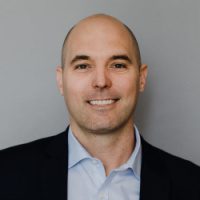
John Rattay serves as a Chief Commercial Officer for Redwood Logistics, one of the fastest-growing supply chain and logistics companies in North America. Prior to joining Redwood, Rattay served as Vice President of project44 where he played an instrumental role in accelerating the company’s strategy, revenue and team growth. Throughout his tenure, Rattay’s leadership covered all commercial teams including Sales, Account Management and Network Partnership Collaboration. He also has extensive expertise with international market expansion including Europe, Asia, and Latin America, where he’s been instrumental in a wide range of successful integration projects. Connect with John on LinkedIn.
